

©Jejak tabi Exchange 2018-2021

Yogyakarta (also spelled Jogjakarta or shortened Jogja) is the capital city of the Special Region of Yogyakarta in Indonesia, on the island of Java. As the only Indonesian royal city still ruled by a monarchy – a status earned after the Independence war for supporting the nationalists. Yogyakarta is regarded as an important centre for classical Javanese fine arts and culture such as dance, batik textiles, drama, literature, music, poetry, silversmithing, visual arts and wayang puppetry. Renowned as a centre of Indonesian education, Yogyakarta is home to a large student population from all over the archipelago, thanks to its dozens of schools and universities, including Gadjah Mada University, the country’s largest institute of higher education.
The city’s population was 422,732 inhabitants at the 2017 census. Its built-up (greater) area was home to 4,010,436 inhabitants, which includes the nearby city of Magelang and 65 districts across Sleman, Klaten, Bantul, Kulon Progo, and Magelang regencies. Yogyakarta is named after the Indian city of Ayodhya, the birthplace of the eponymous hero Rama from the Ramayana epic. Yogya means “suitable; fit; proper”, and karta means “prosperous; flourishing”. Thus, Yogyakarta means “[a city that is] fit to prosper”.
Yogyakarta is now known as one of the centres for contemporary arts in Indonesia, in relation to other centres such as the capital Jakarta, Bandung and for performing arts, its neighbouring Surakarta (Solo). It was here that the first artist-run space in Indonesia was opened in 1988, i.e. Cemeti Gallery (now Cemeti: Institute for the Arts and Society). It was founded by visual artists Nindyito Adipurnomo and Mella Jaarsma.
Now, Yogyakarta is home to countless artists – mostly working independently – ,and a smattering of artists collectives and several self-run arts and cultural think-thanks. The city exudes a laid back atmosphere, and is relatively affordable in comparison to the other main cities in the country, this helps artists navigate their practices by developing new ways to create and network.
Official Aftermovie
10am – 12pm ; 2pm – 5 pm; 4pm open to public Masterclasses

English
The first part of the day will be a led class that will prepare the body to connect action to space with a large focus on alignment and initiation. This material which I like to propose as ‘ anti-technique’, doesn’t impose aesthetic, rather tries to create intelligence and derives from my own decades of experience training dancers. For the later half, I will try to recreate the duets from Varnam using gestural material that is proposed by the participants. I use this format to introduce ideas of tension, time and dynamics, leading into a sharing of my compositional methodology. * We will need some chairs for the masterclass. Also maybe the participants with certain traditional dance background can prepare by choosing 2 or 3 narrative lines from their repertory. (Participants with other bodily practice than dance are welcome, e.g. theatre or martial-arts).
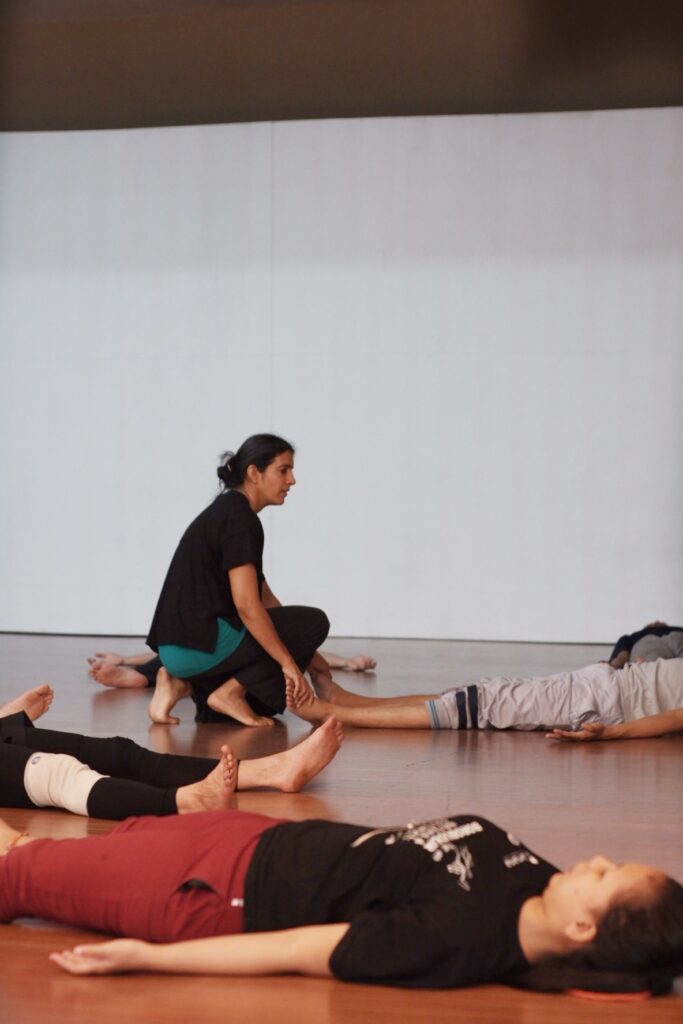
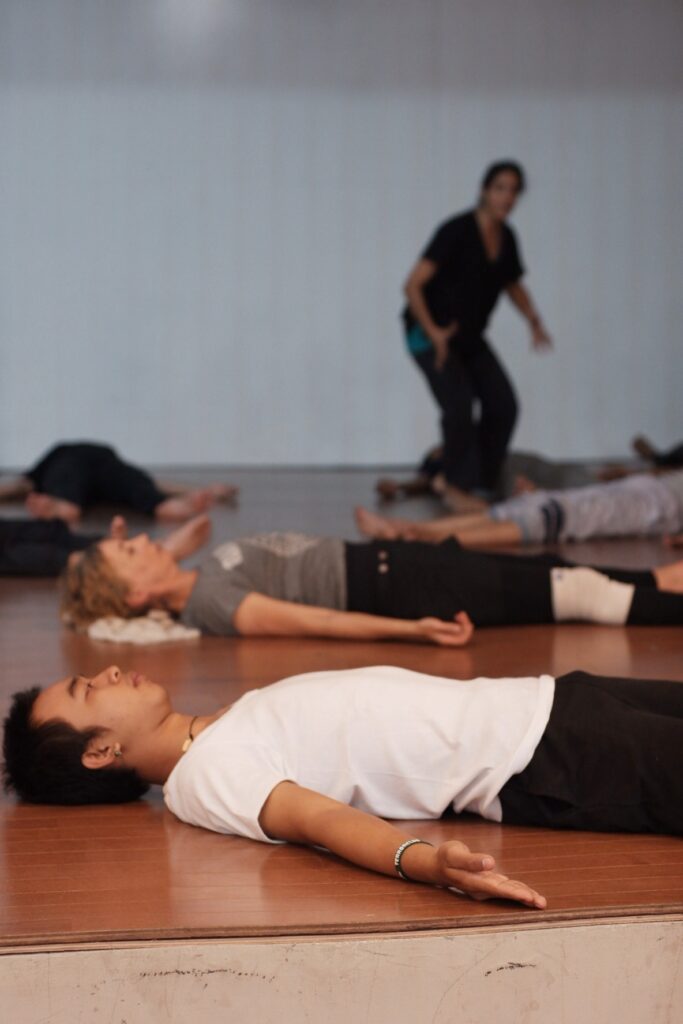
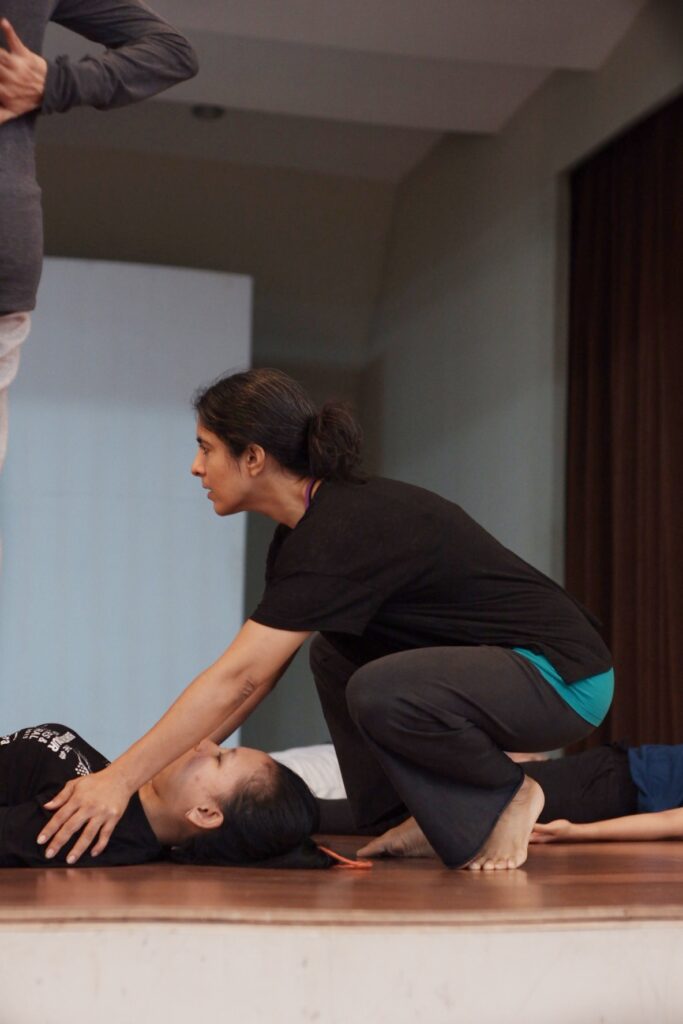
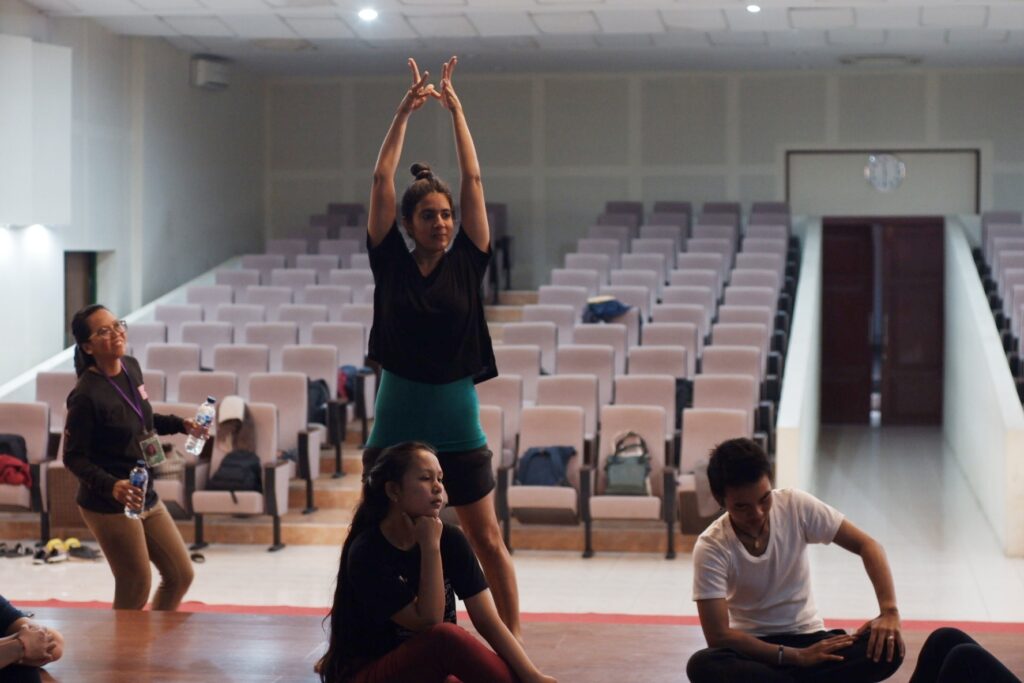
13 (Fri) – 27 (Fri) July 2018 Exhibition
Venue:Ace House Collective
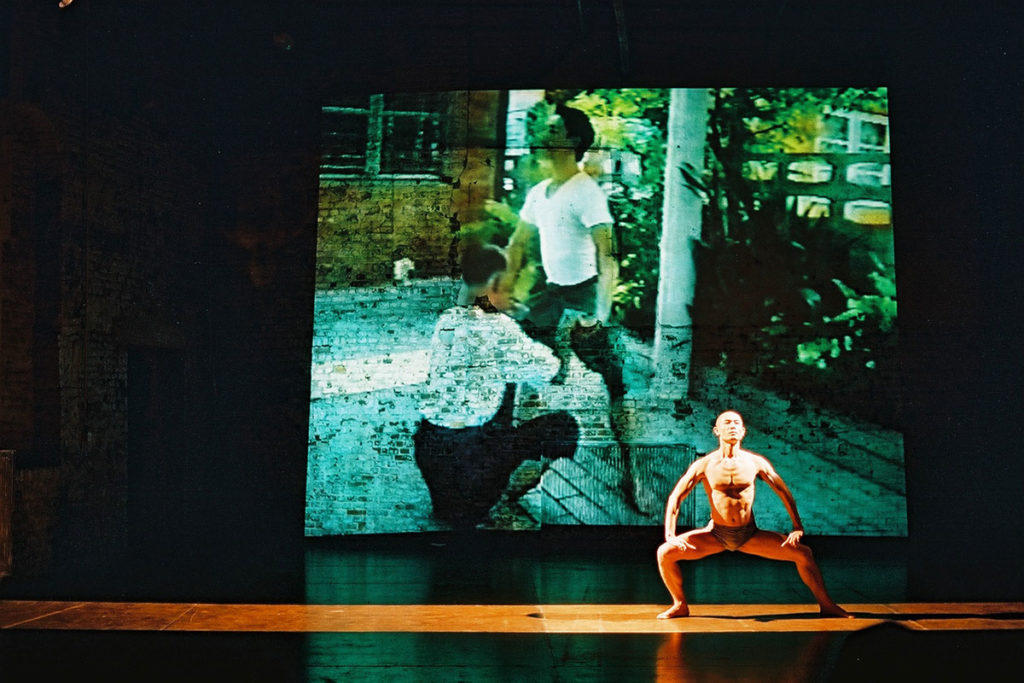
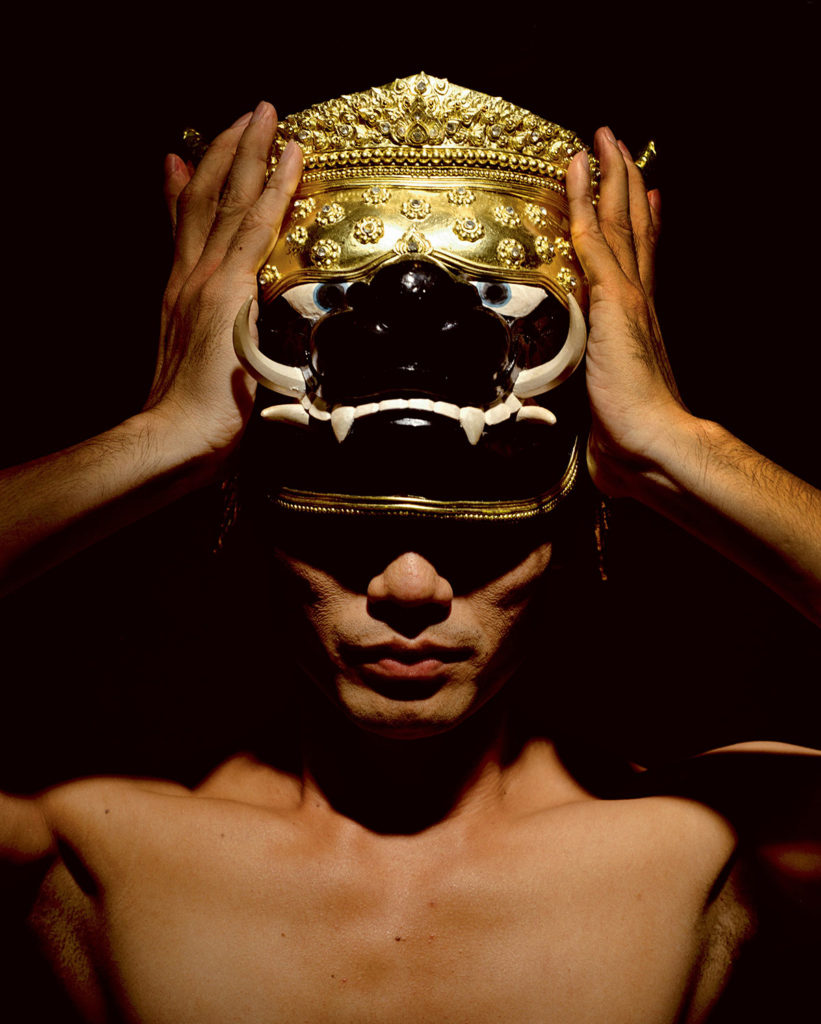
“Theppanom refers to a systematic guide to body aesthetics that is rudimentary to classical Thai dance. It comprises of a set of bodily postures, positions and gestures which the classical Thai dance student must master before s/he graduates to performing the choreographies of the classical works. It emphasises certain pivot or fulcrum points all over the body that assist in movements or angles of movement. For instance, the wrist, the knee, the pelvic bone are all important pivot points that can be used to influence different qualities and directions of movements.
Pichet Klunchun uses these guiding principles to create a contemporary system of movement and choreography. By applying contemporary choreographic principles of weight shifts, energy transformation and varying speeds, Klunchun devises an entirely new way of moving that is very much rooted in Thai classical aesthetics. The traditional theppanom poses, positions and gestures constitute building blocks of classical performance that are often fixed and rigid in their choreography and composition.
On the other hand Klunchun’s revision of the theppanom imbues the contemporary dancer with flexibility and continuous creativity. The contemporary dancer can now manipulate movements, gestures and positions that vary in speed and tone based on the traditional theppanom but there is the advantage of improvisation and control by the dancer. This ‘contemporary theppanom’ signals a development and evolution of a classical body aesthetic system that is unreservedly Thai in identity and yet constantly fluid in its multitude of physical expression.
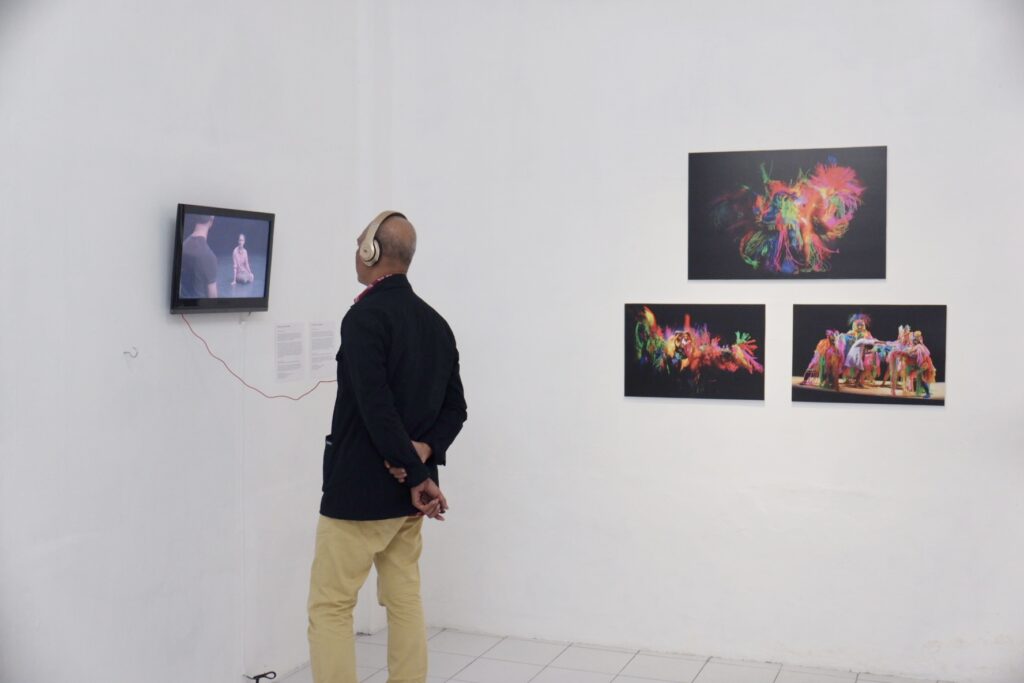
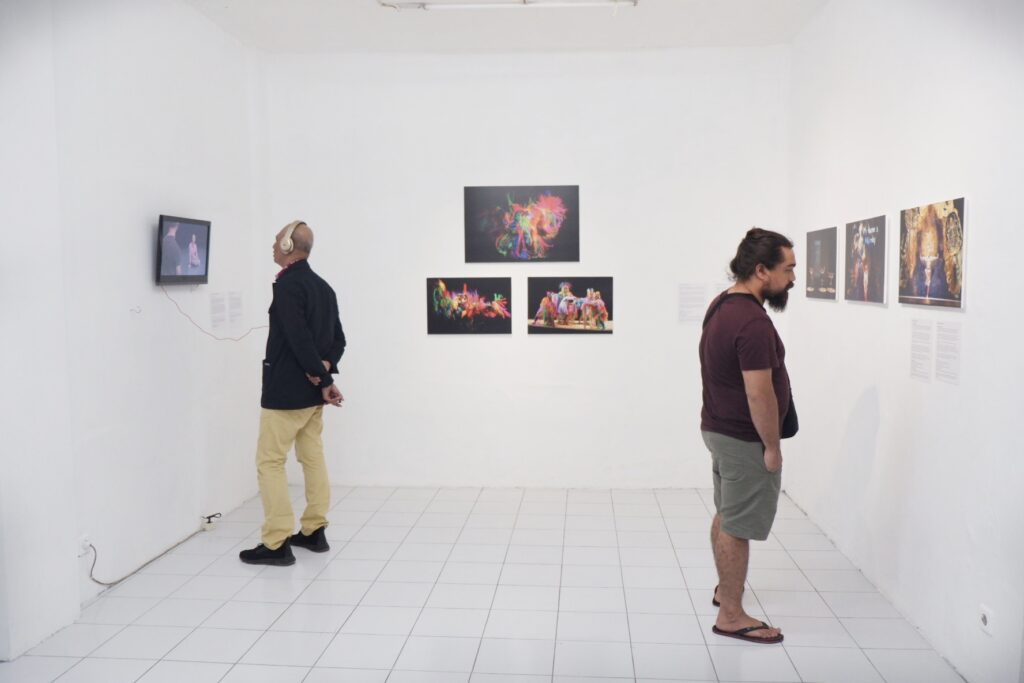
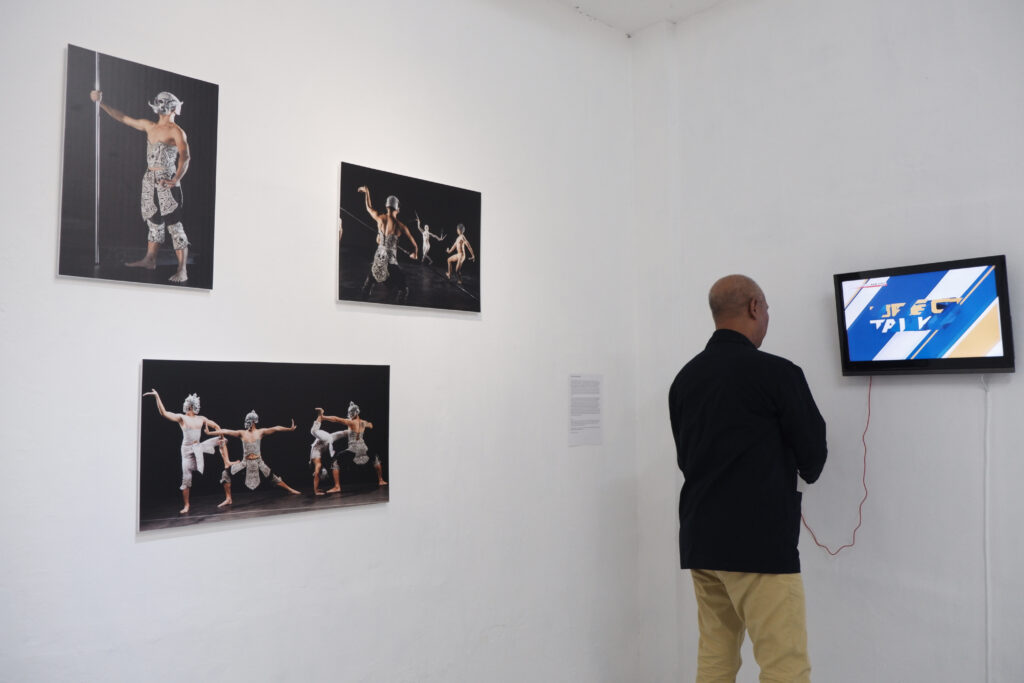
13 (Fri)-27 (Fri) July 2018 Exhibition
Venue:MESS56
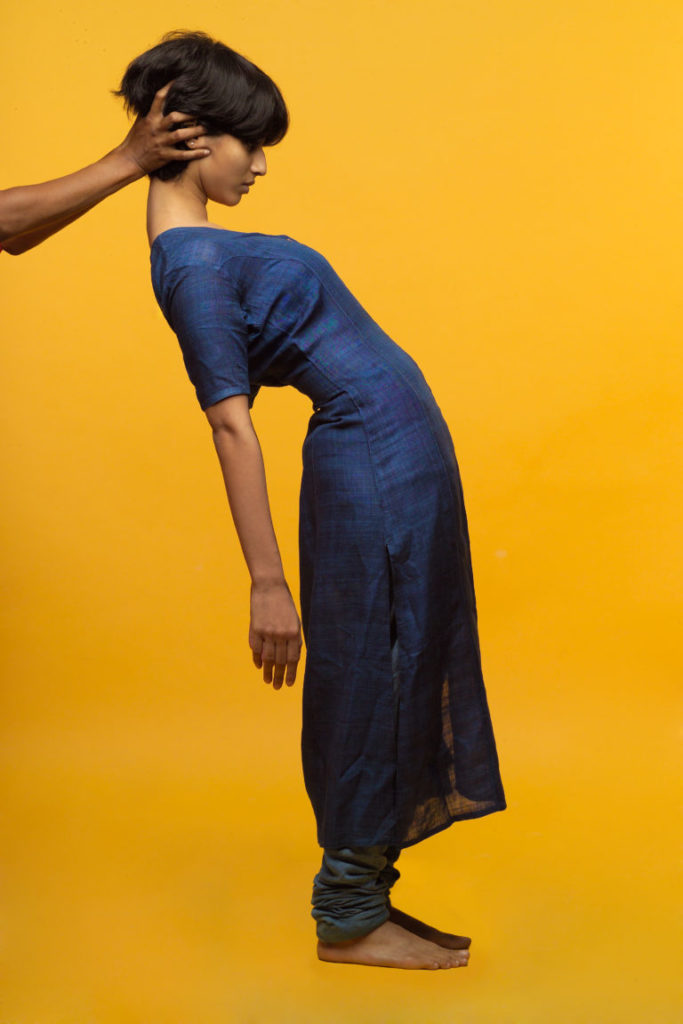
“The body is the only archive of the physical memories of dance”, states Padmini Chettur in one of her writings. In this exhibition, various archives are displayed, not to replace the experience of watching Padmini’s performances live, but to serve in tracing the trajectory of a choreographic body over two decades. It is a trajectory that places the body at the centre, sometimes putting an emphasis on its relations to time; at other times it ventures to carve out a distinct spatial configuration that highlights the body’s centrality. At its core, the question once asked by Chandralekha – for whom Padmini danced for ten years – becomes the constant guiding light: where does the body begin, and where does it end?
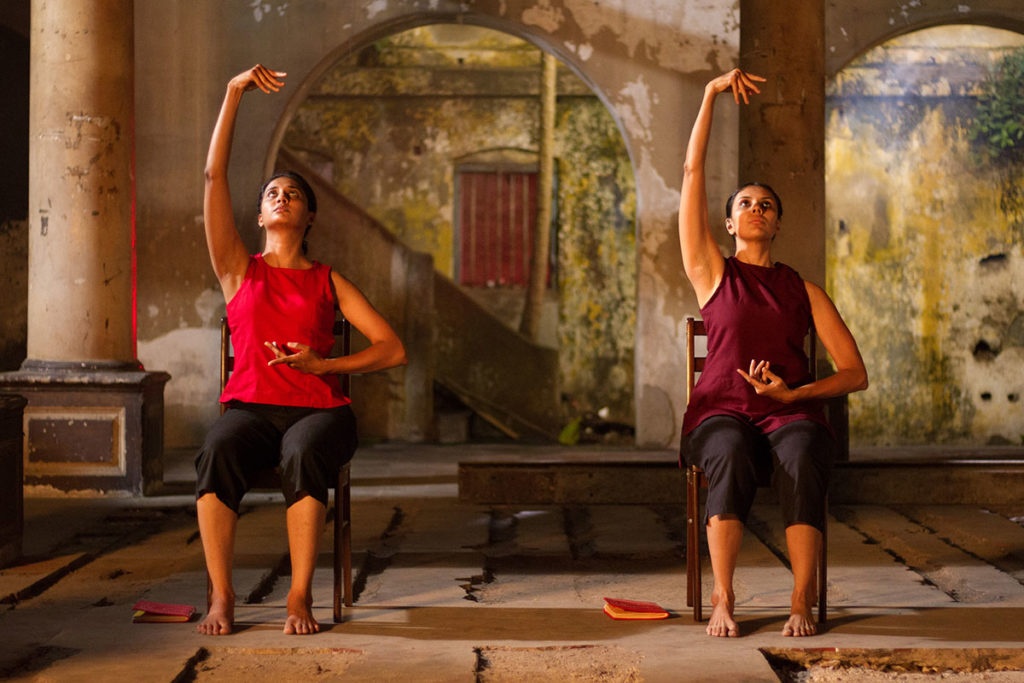
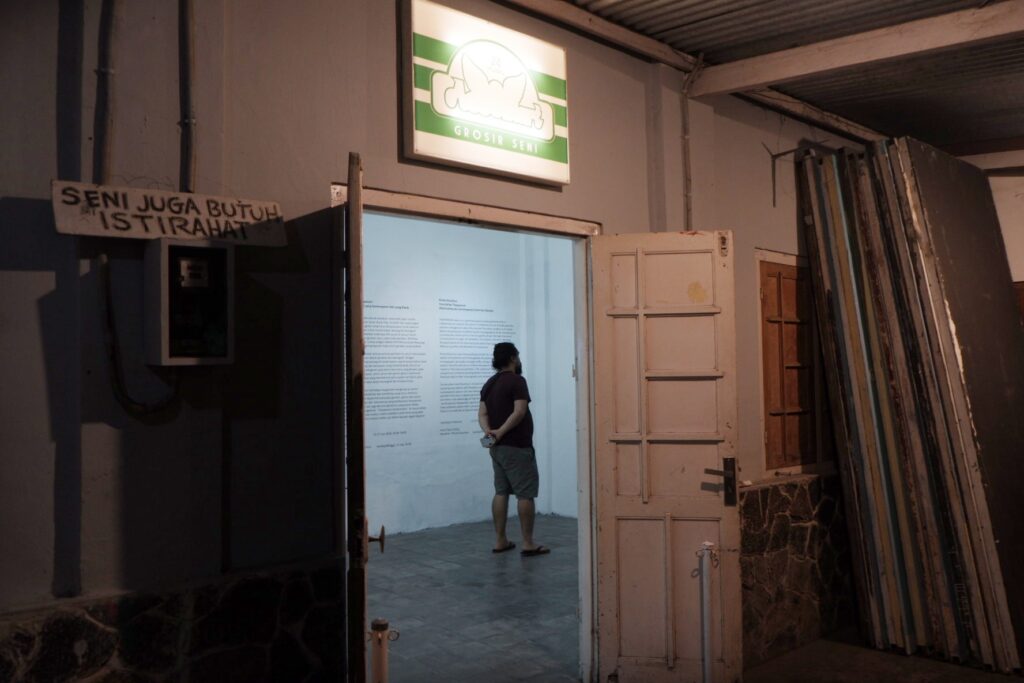
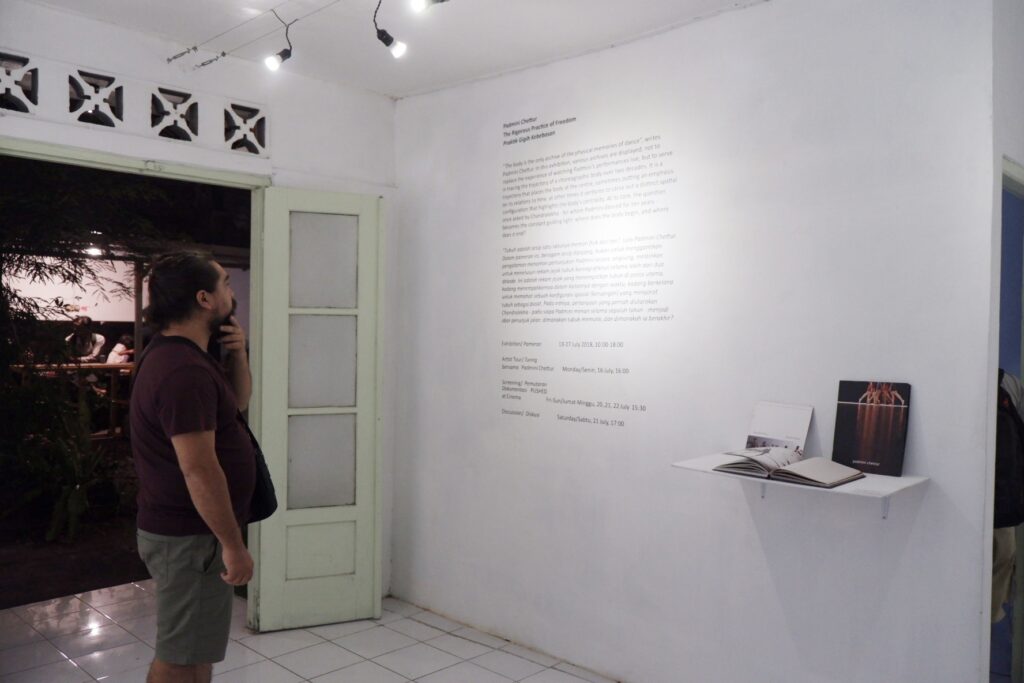
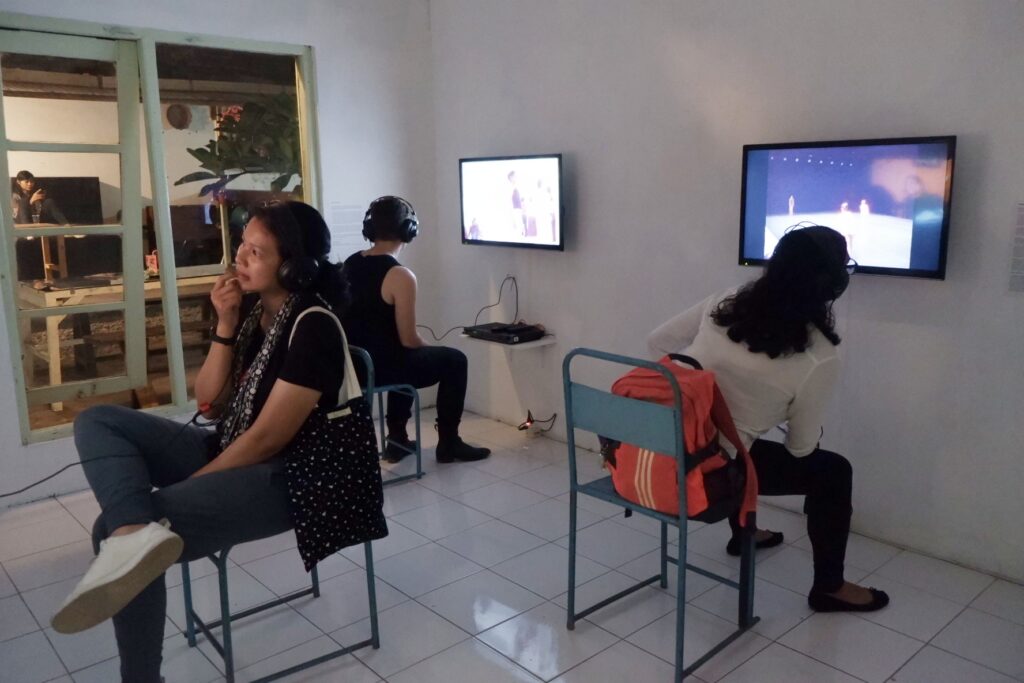

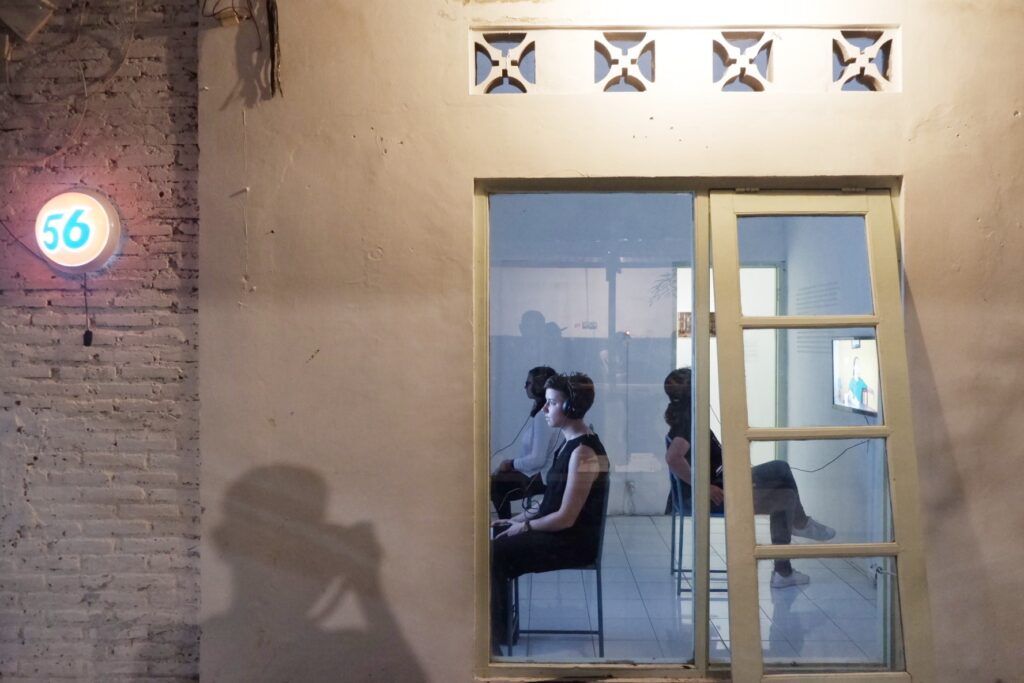
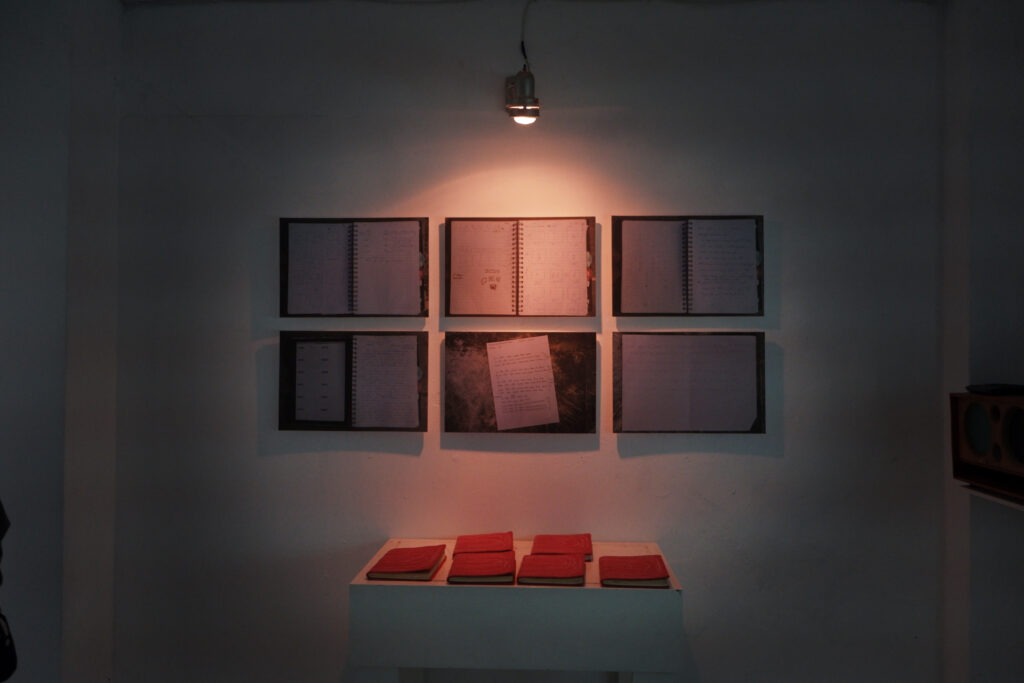
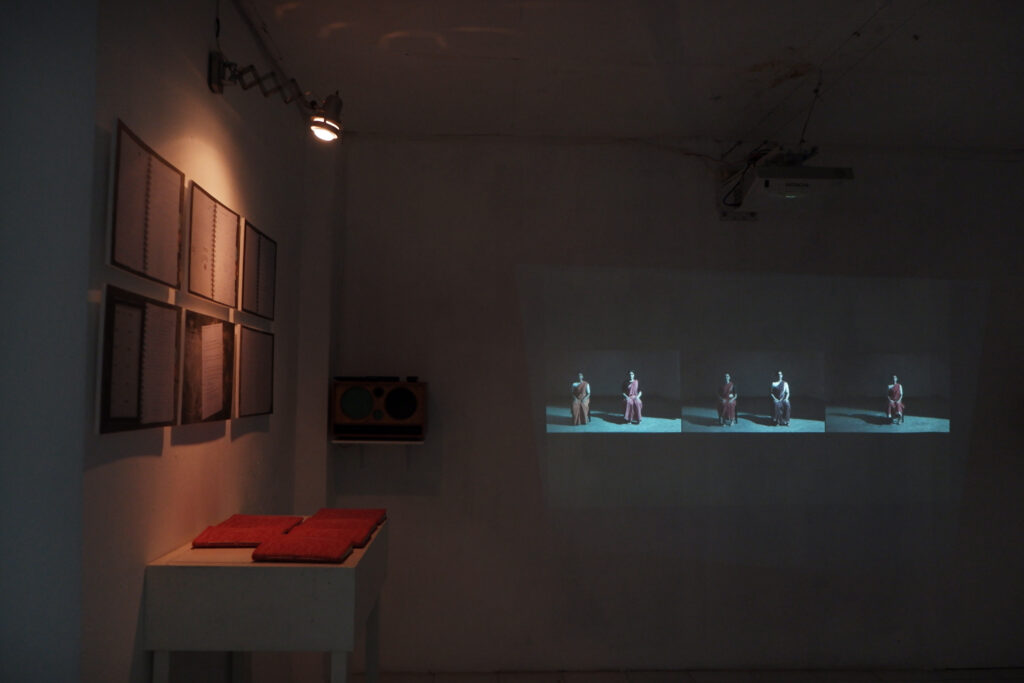
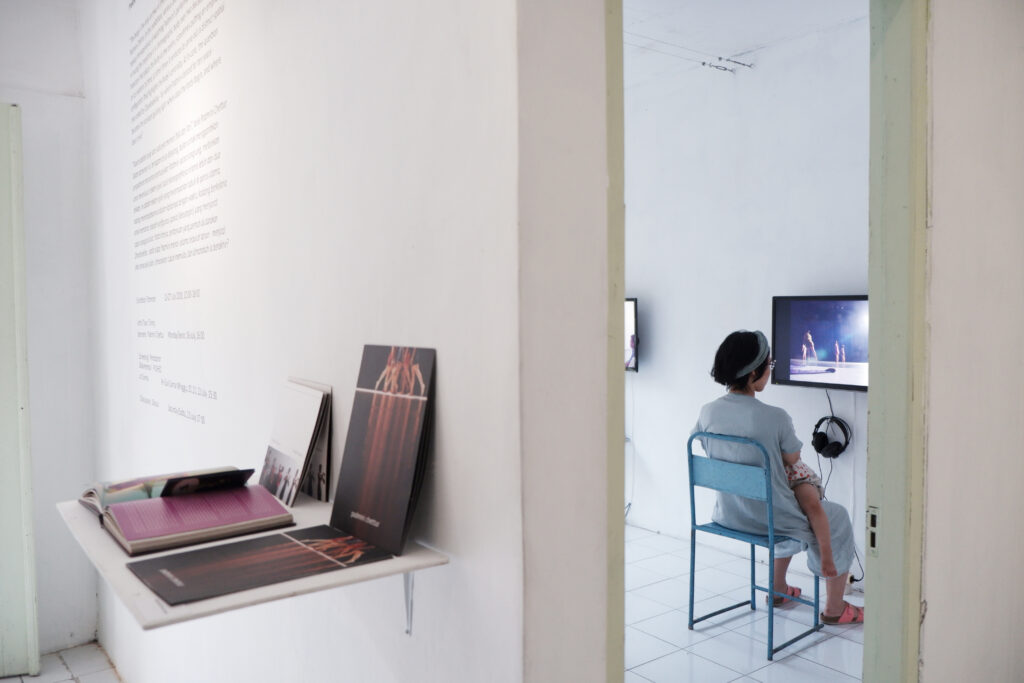
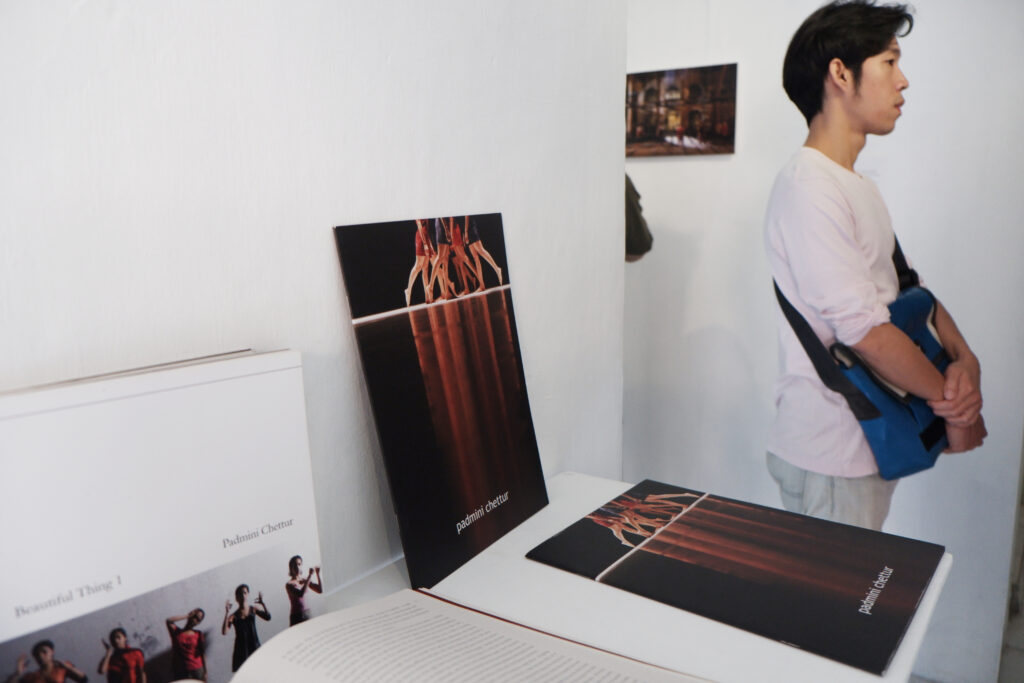
13 July – 11 August Exhibition
Venue:Cemeti – Institute for Art and Society
Cemeti Institute for Art and Society in collaboration with Muhammad AB (researcher)
Muhammad AB
This exhibition unearths the archives of two historical choreographers from Yogyakarta, Bagong Kussudiardjo and Wisnu Wardhana through their artistic activities between 1950s and 1960s. Both Bagong and Wishu were the first Indonesian dance artists who traveled to the US for a two-month residency, including a two week stint in the studio of Martha Graham, funded by Rockefeller Foundation. Tracing their journey and how the trip influenced their work as well as their way of building community and infrastructure, researcher Linda Mayasari and Muhammad AB also connect these with a larger political landscape of Indonesia. Particularly, the attempts of building an Indonesian national identity through international cultural missions designed by Indonesia’s charismatic President Soekarno. The exhibition asks how did all these tensions, power relationa and contestations at play unfold; and how did this process shape today’s dance practice and context?
Muhammad AB was born in Pati, Central Java. He earned a BA in History, Faculty of Cultural Studies, and a MA in Performing Art Studies and Visual Arts – both from University of Gajah Mada, Yogyakarta. H works as actor, writer and researcher.
14 (Sat) July, 19:30 Performance
Venue:Kedai Kebun Forum 2F
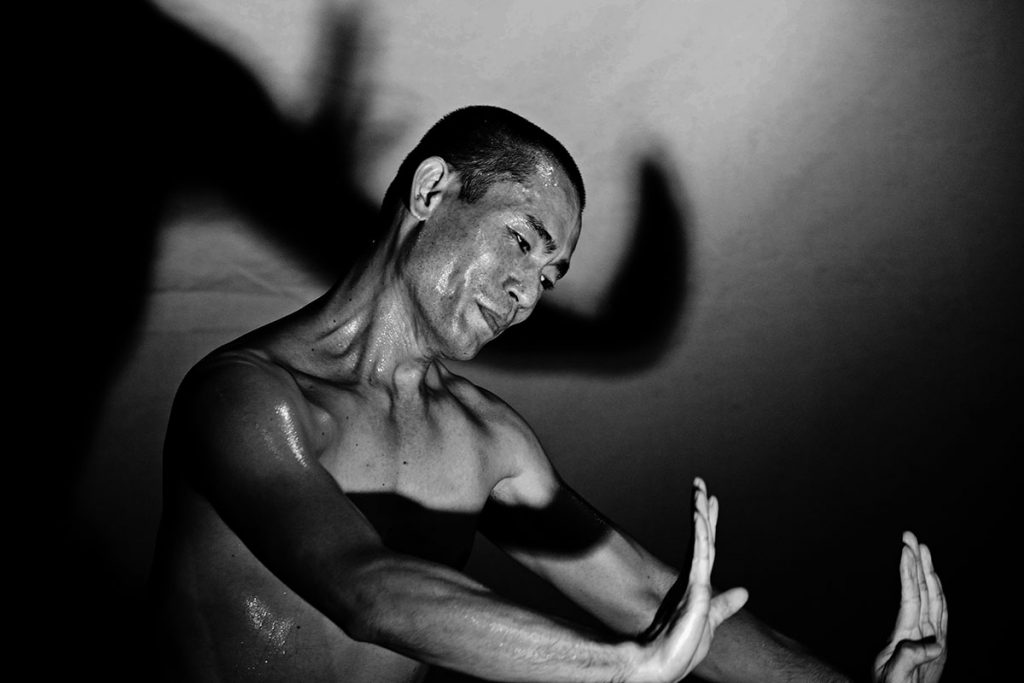
I Am Demon was created to commemorate the death of Pichet’s beloved master, Master ChaiyotKhummanee. It explores different facets and searches for the wisdom that is hidden behind the structures and movements of the “Demon” characters in Khon dance and highlights its essences for modern audiences. It presents the commanding styles as well as applying scientific theories to show the vitality of what lies behind each portrayal in order to take the audience to the core of the movements and convey their actual meanings. It is a story about the passing the Khon Dance art from from one generation to the next. Beyond the teaching and learning process, it is about the relationship between master and student in real life.
Dancer/Choreographer: Pichet Klunchun
Video editor: Puttpong Wongsawang
Translator: Associate Professor Pornrat Damrhung
Original interview video clip: TheatreWorks Singapore

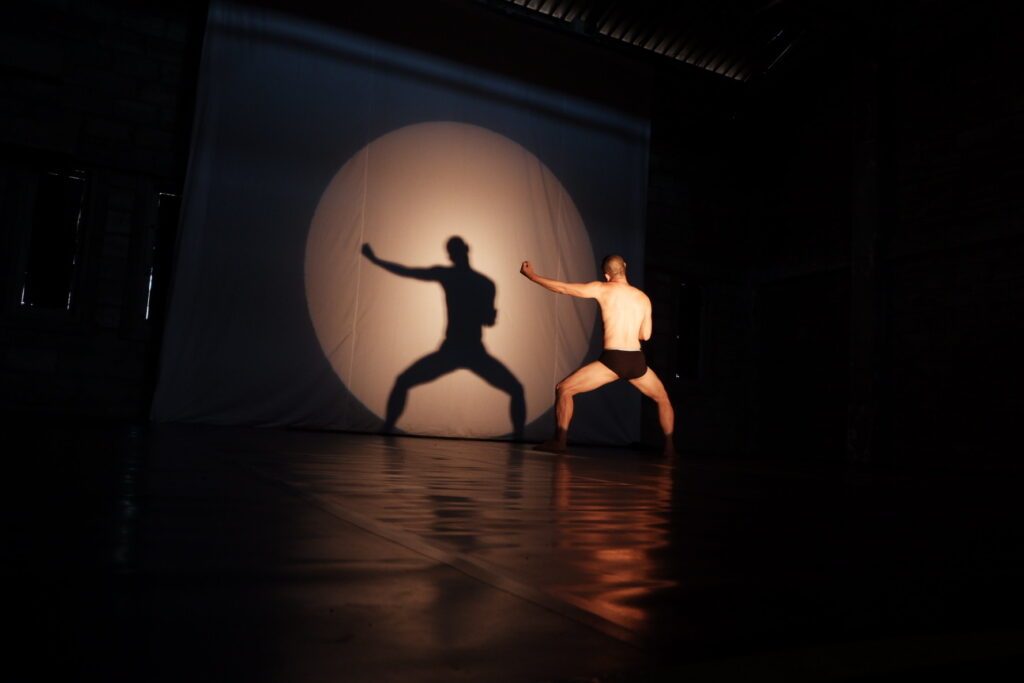
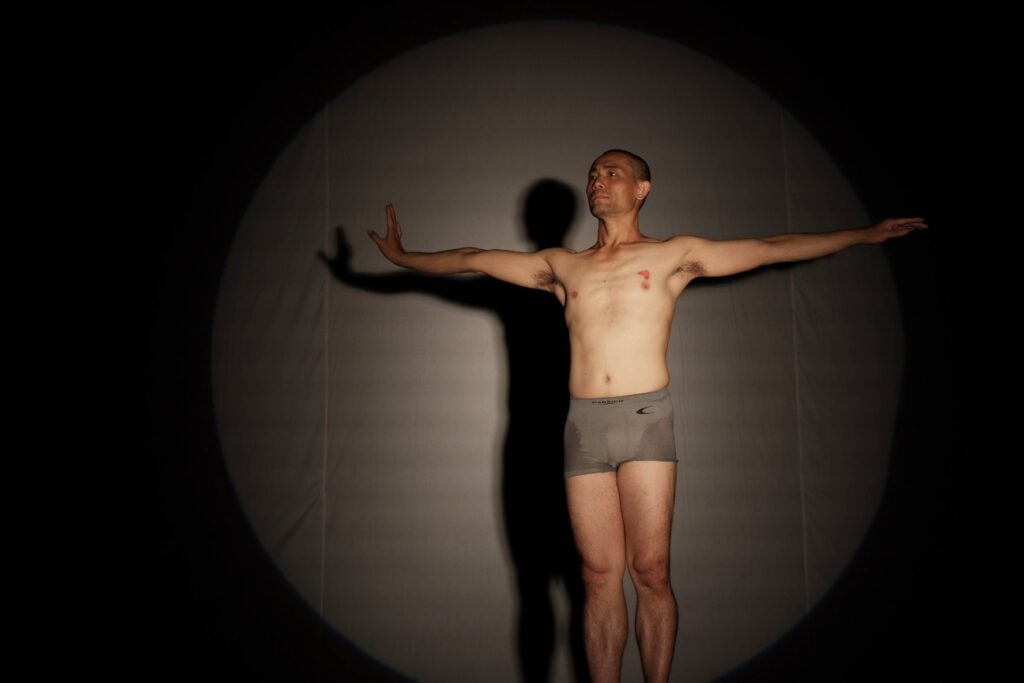
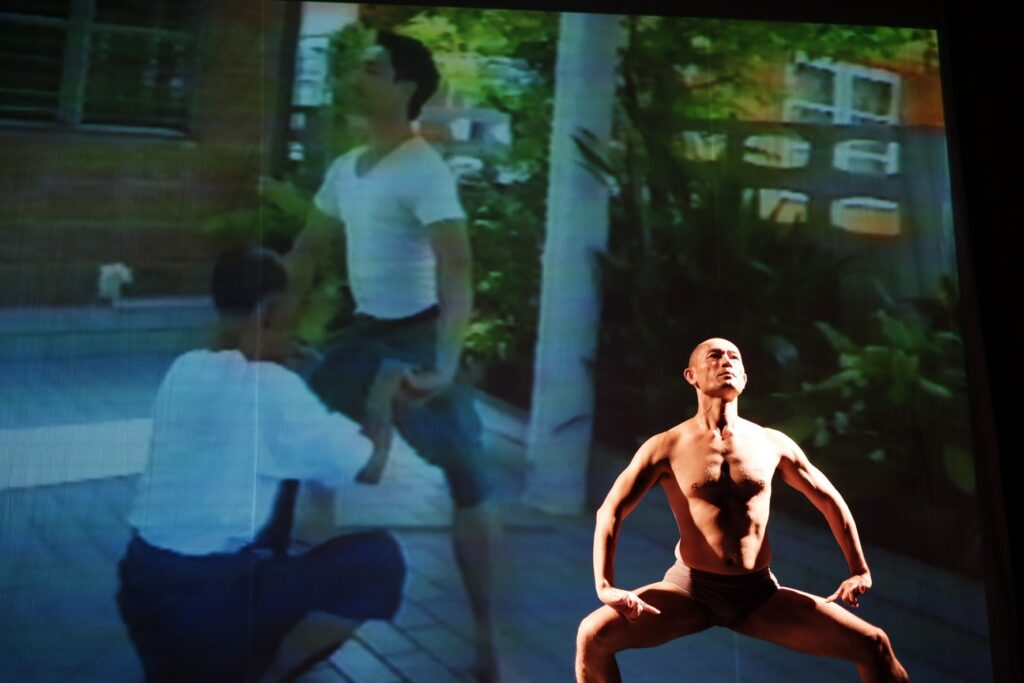
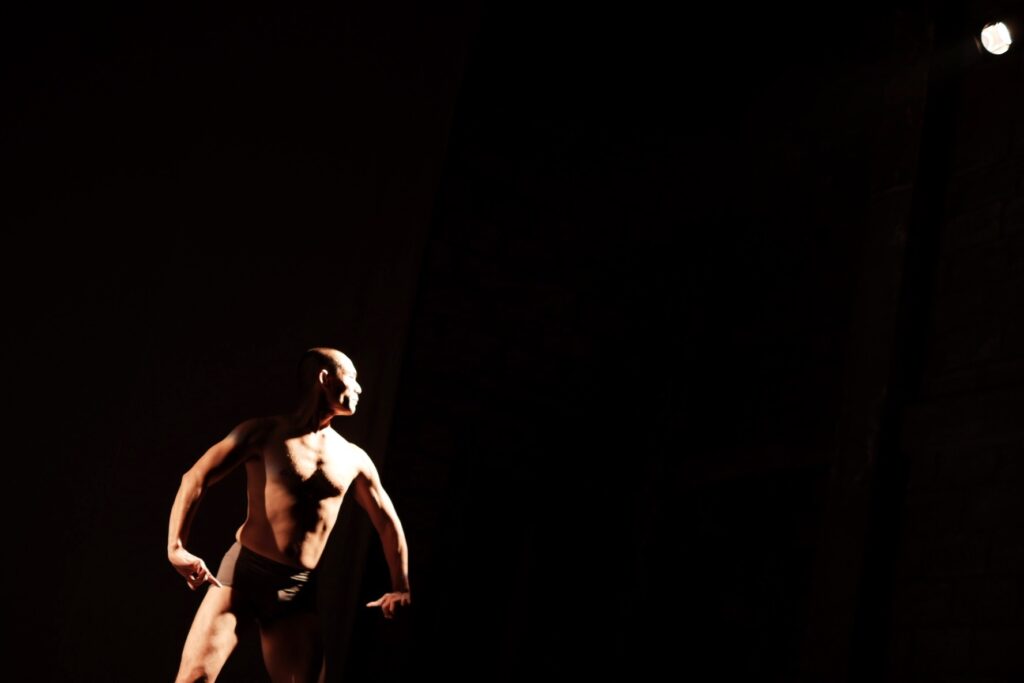
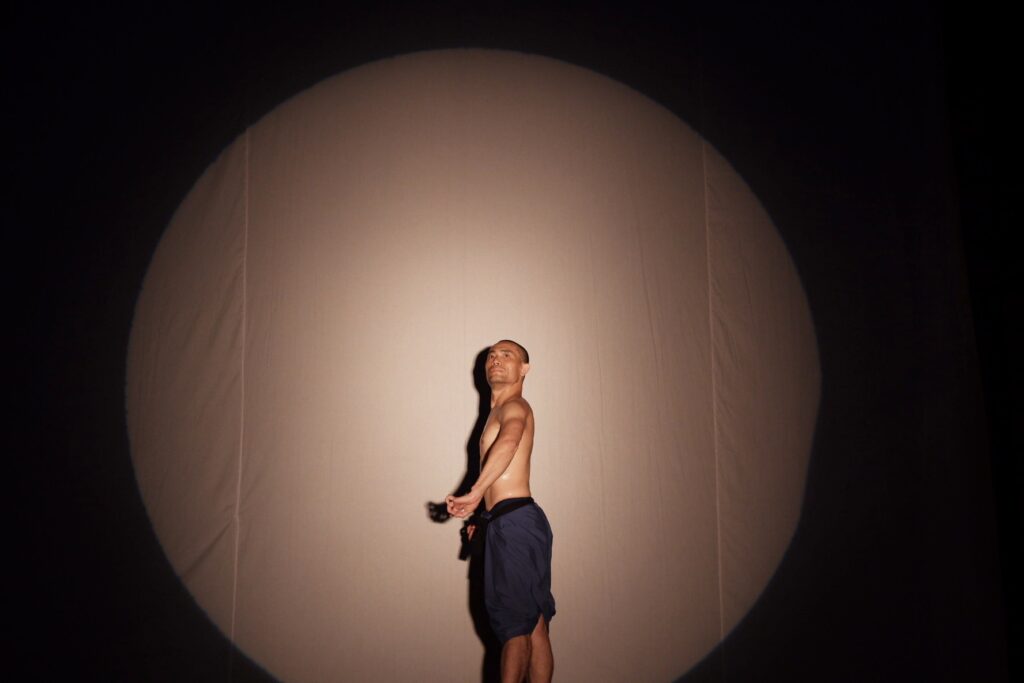
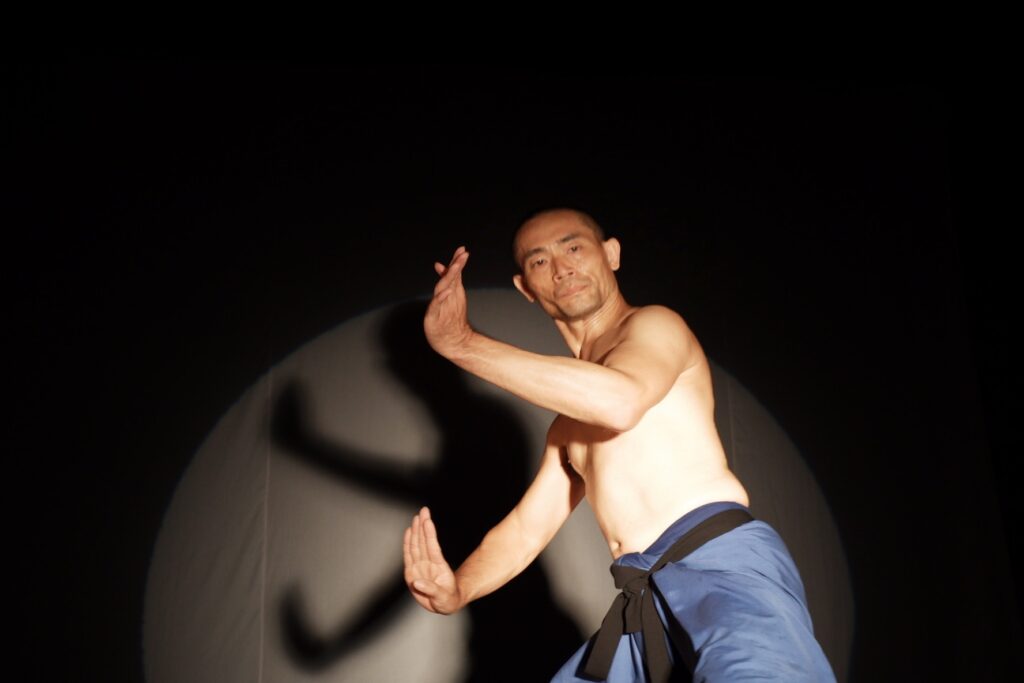
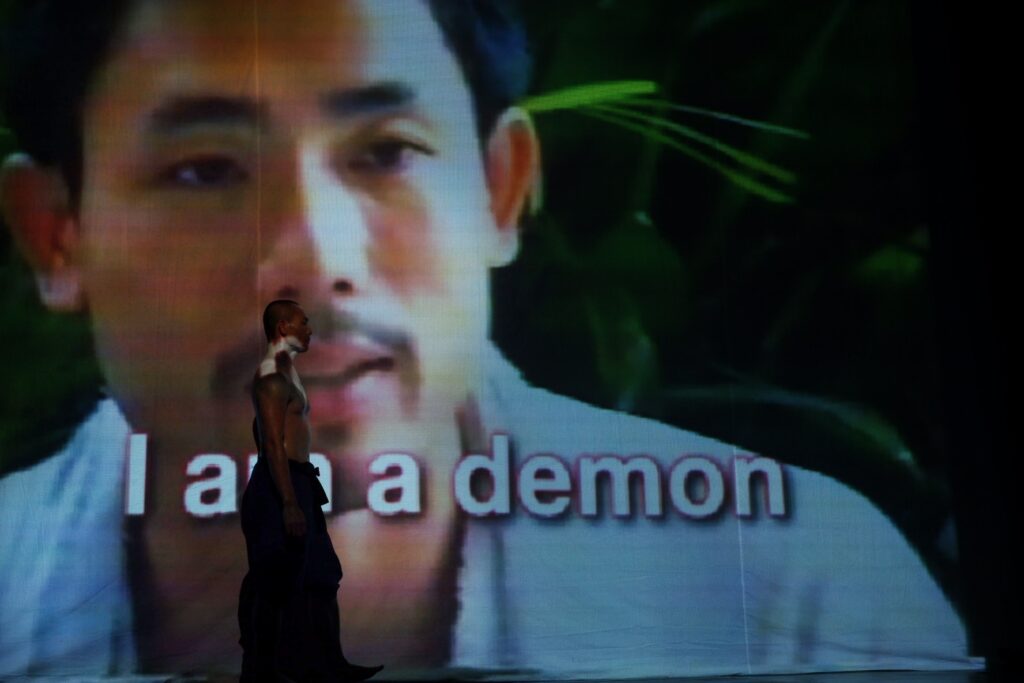

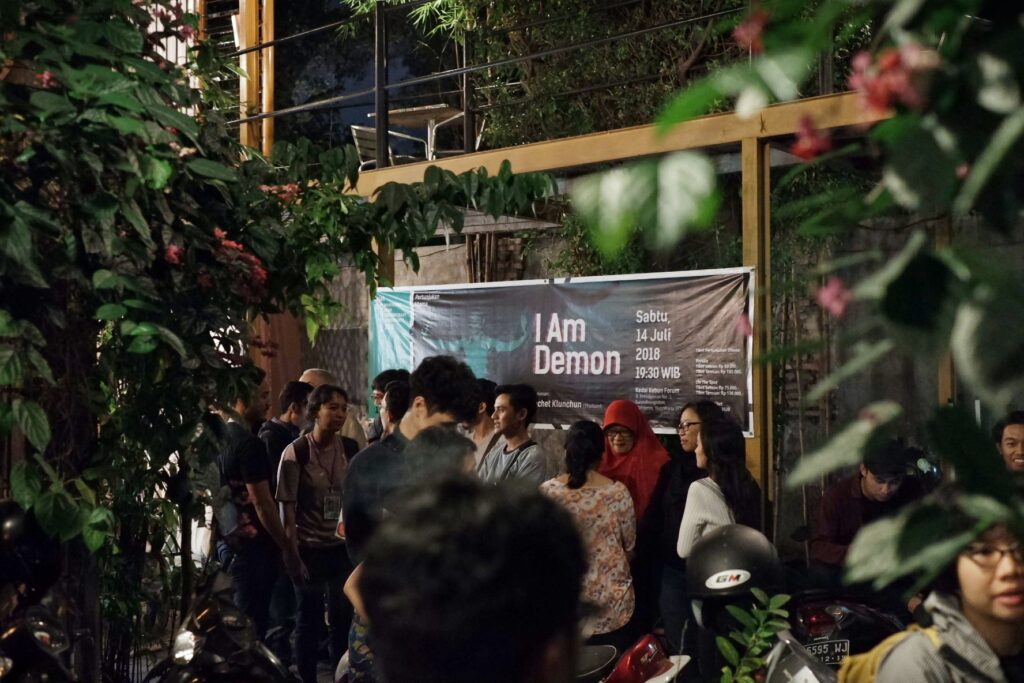
15 (Sun) July, 19:30 starts Performance
Venue:Langggeng Art Foundation (LAF) Basement
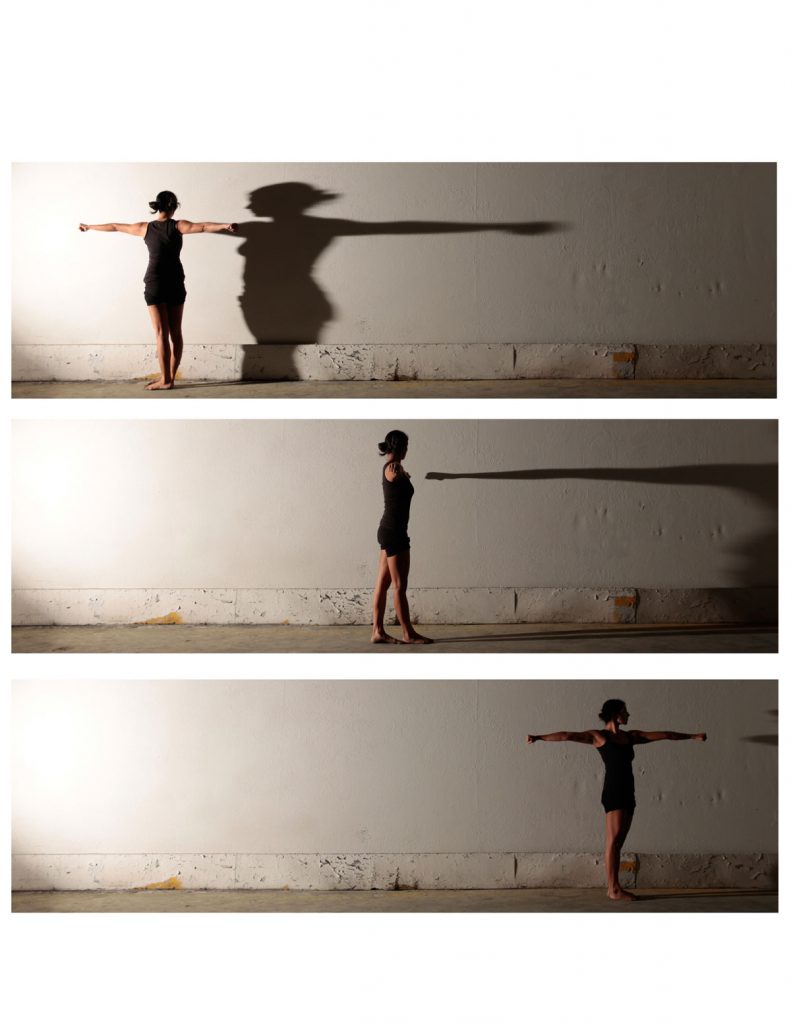
Beautiful Thing 2 positions the body almost as an architectural object in an empty stage. Using time as a powerful strategy in the dramaturgy of presence. The performance prescribes nine ‘lines’ in space. The physicality of the body becomes abstracted over time, till the spaces it holds and moves become more present. The performance remains constantly on the edge of ‘performing’ and not. At some moments playing with the body’s potential to grow in space, at others for it to dissolve into space. It meticulously deconstructs and presents study of movement mechanics until we are forced to ask the question ‘what is dance?’.
Choreographer’s Notes:
It has always been the potential of dance to place the body at the centre of its discourse, that has fueled my research and processes. The famous statement of my teacher and mentor Chandralekha – ‘where does the body begin and where does it end?’ – is perhaps today more relevant than ever. We cannot anymore reduce the body to being the vehicle for choreographic intention. With Beautiful Thing 2, it is my wish to centralize and essentialize the body, stripping it of unnecessary narrative and embellishment until we see it once again as the most important site of our being.
Choreographer/dancer: Padmini Chettur, Music: Maarten Visser
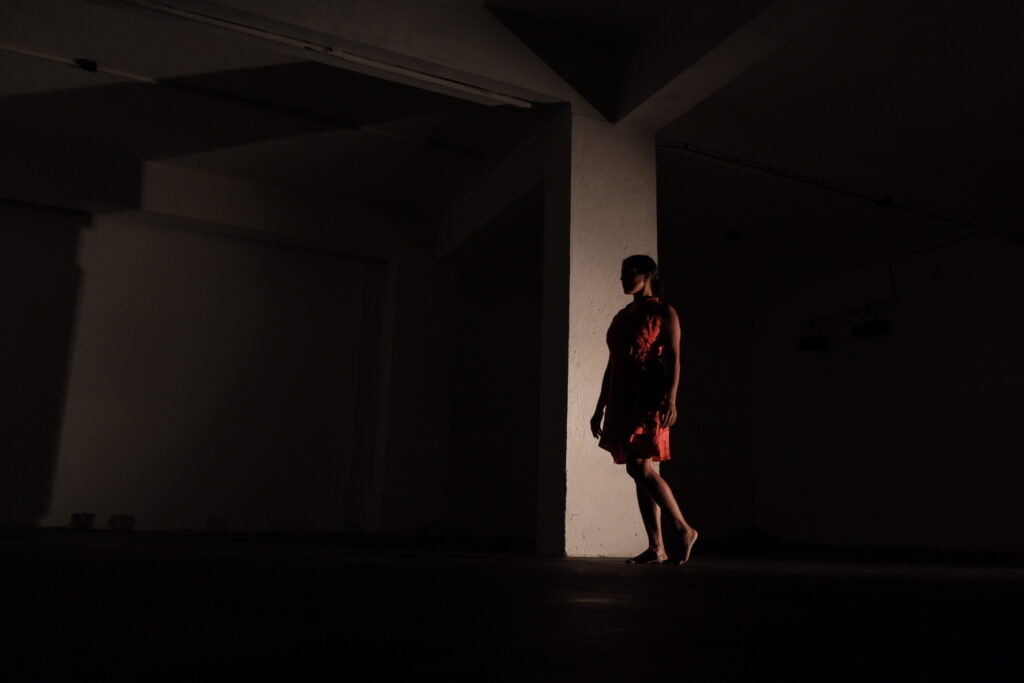
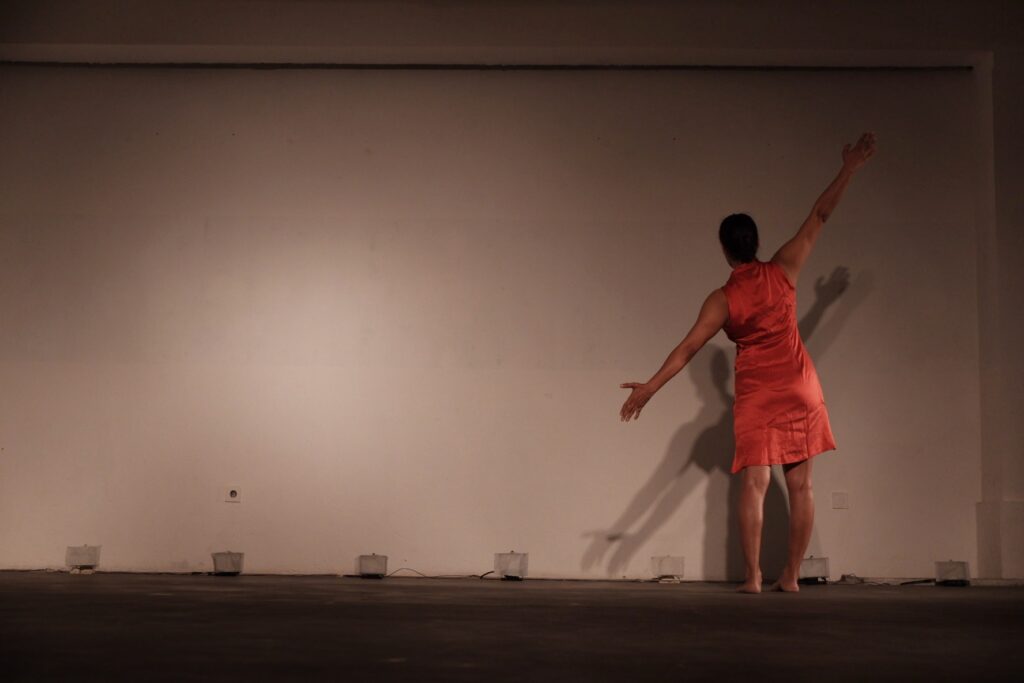
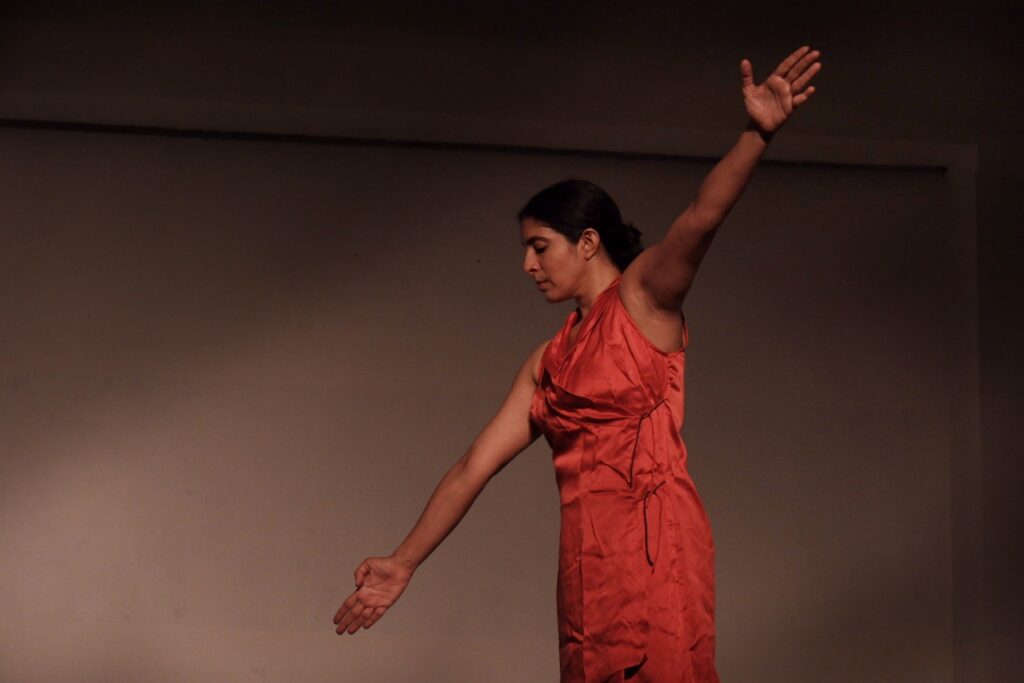
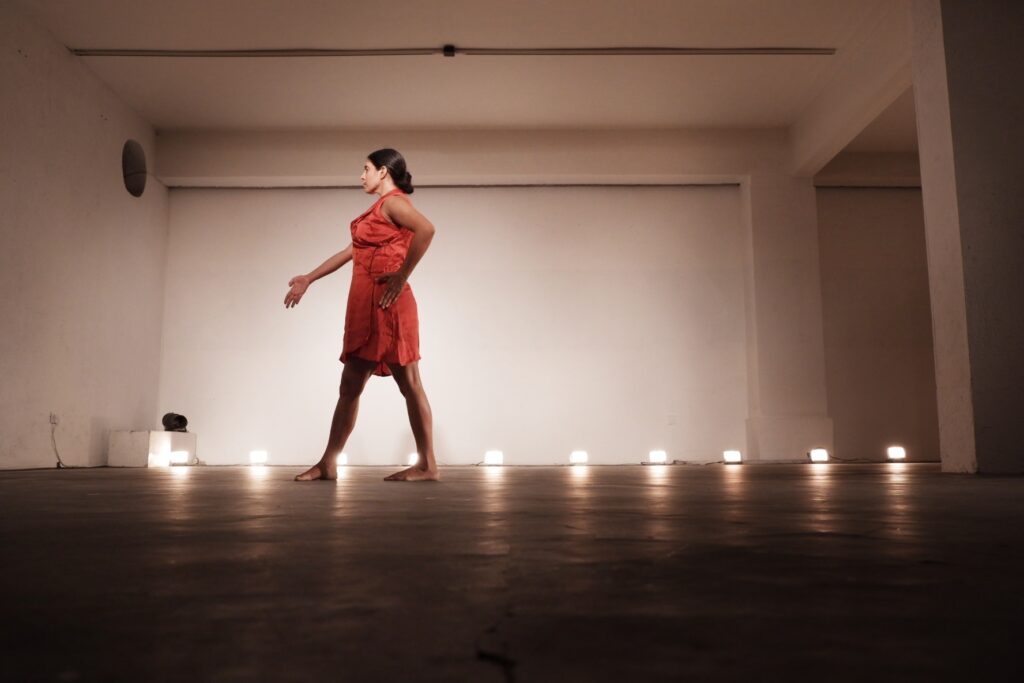
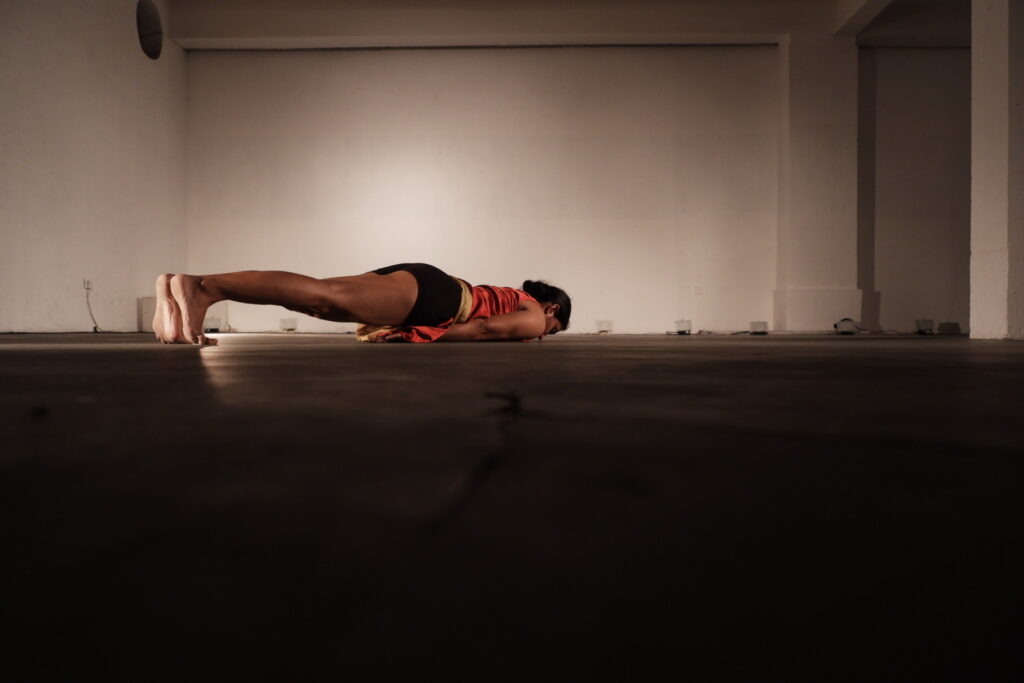
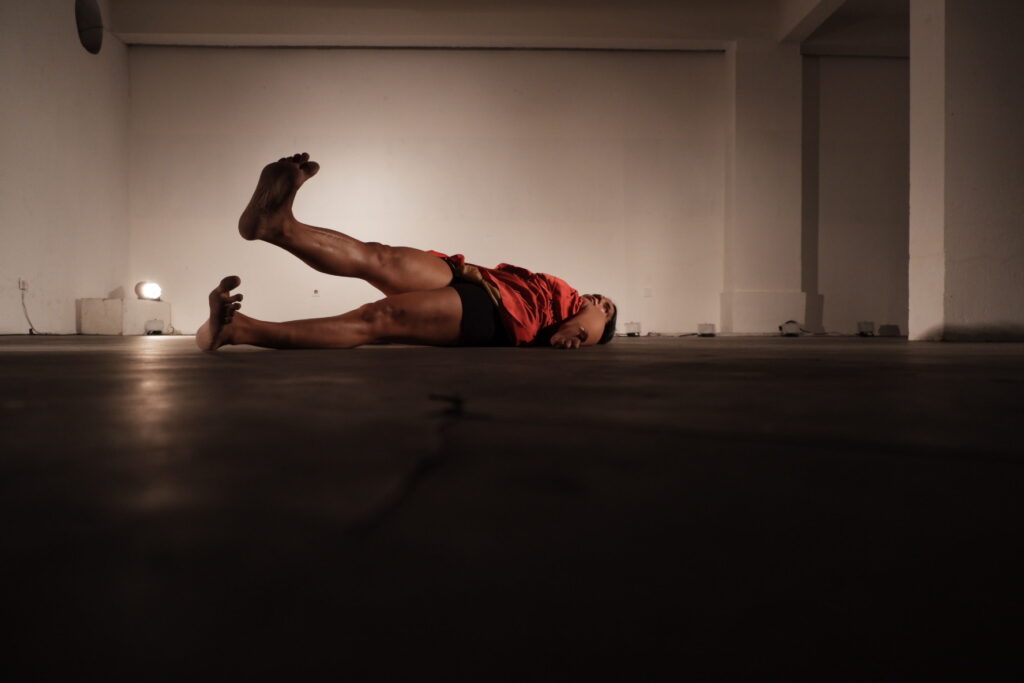
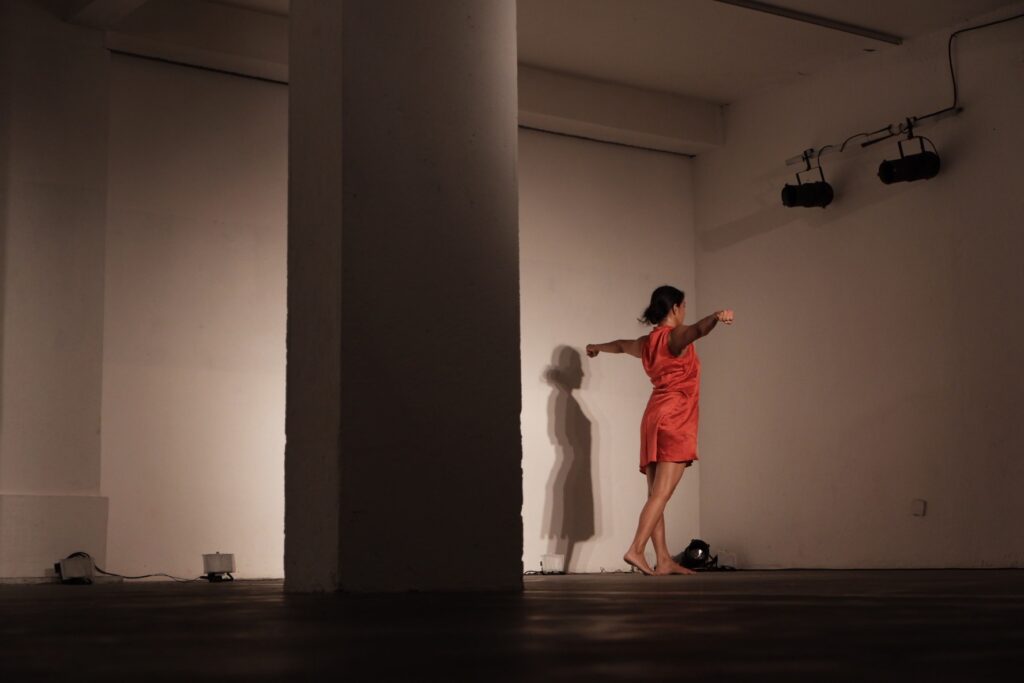
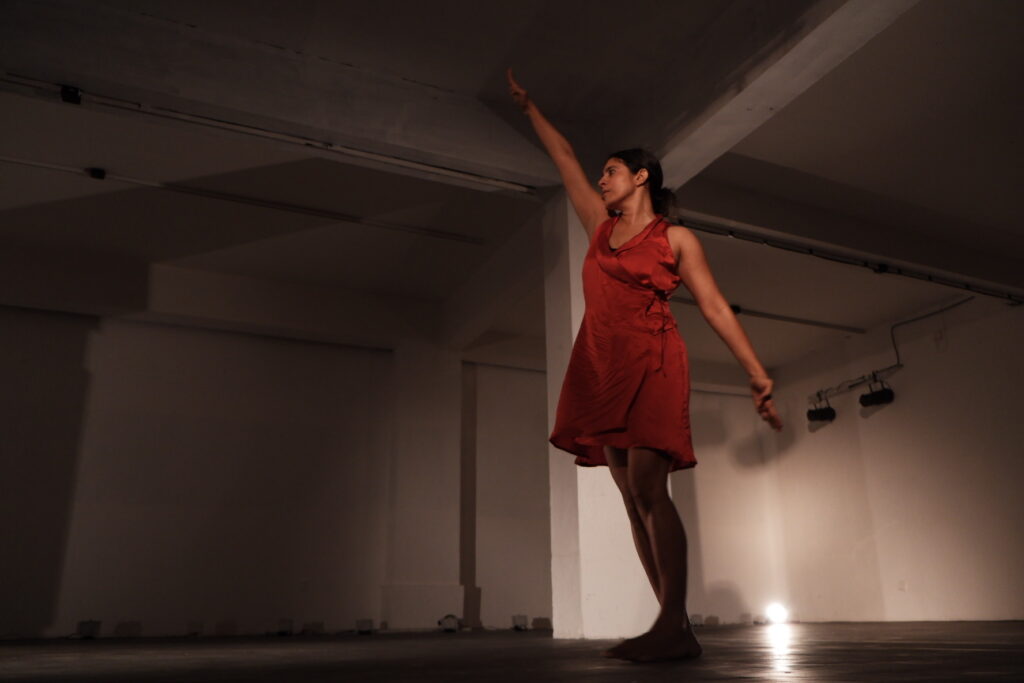
16th July 10am – 12pm ; 2pm – 5 pm; 4pm open to public Masterclasses
Venue:Concert Hall, Pasca Sarjana, ISI (Postgraduate Studies, Indonesian Arts Institute)
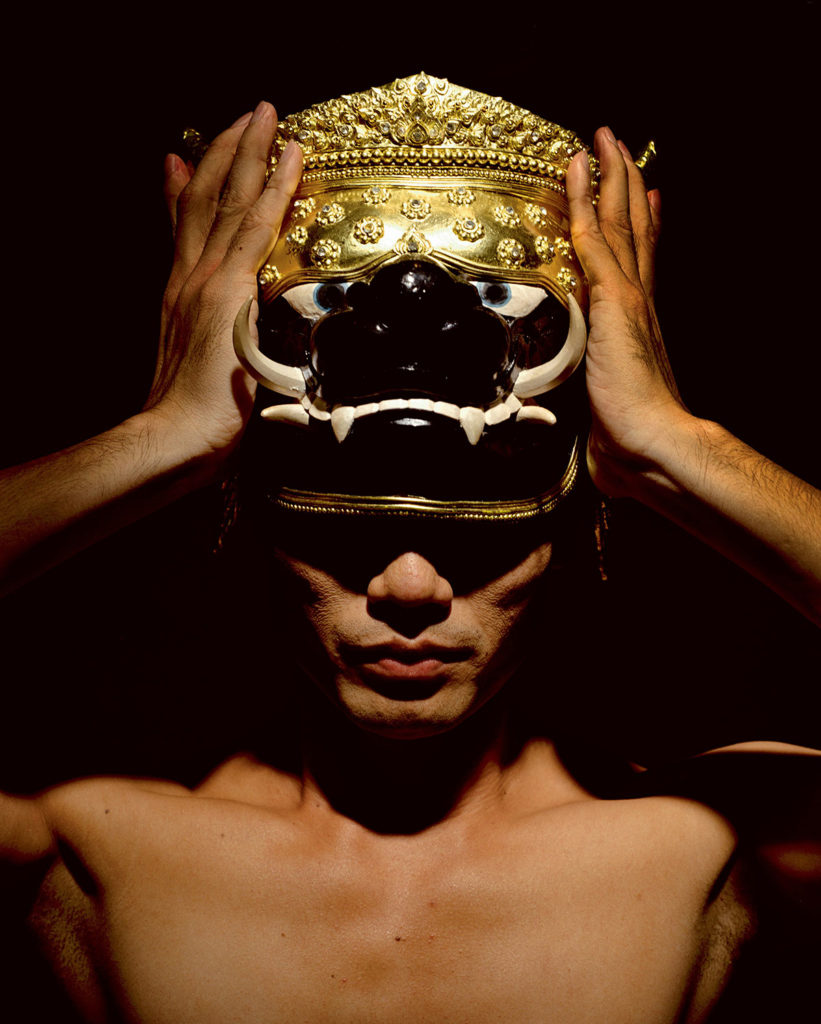
“In this workshop, Pichet will introduce his new dance techniques developed from the traditional Thai dance that leads to the contemporary movements called “”Circle with Millions of Exits””. Participants will learn to divide “”body, mindset, and sense of feeling”” away from each other in order to enable them to see the “”traditional techniques”” and deconstruct the traditional form bridging them to the “”contemporary way””.
This workshop is suited for dancers, choreographers and advanced dance students who are working on bridging traditional and contemporary dance in their practice.
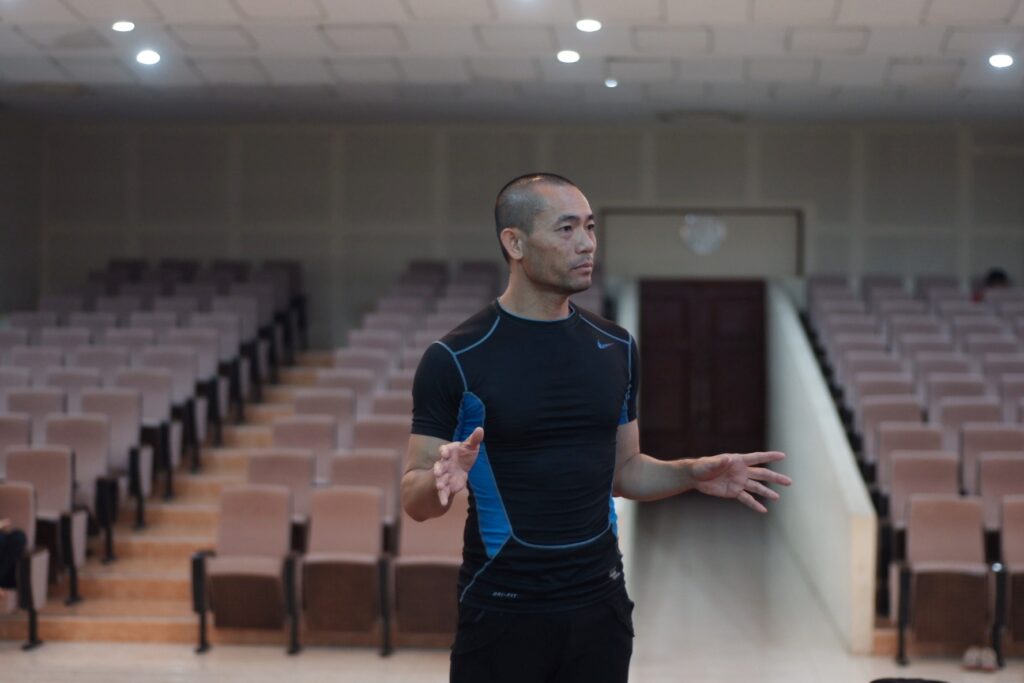
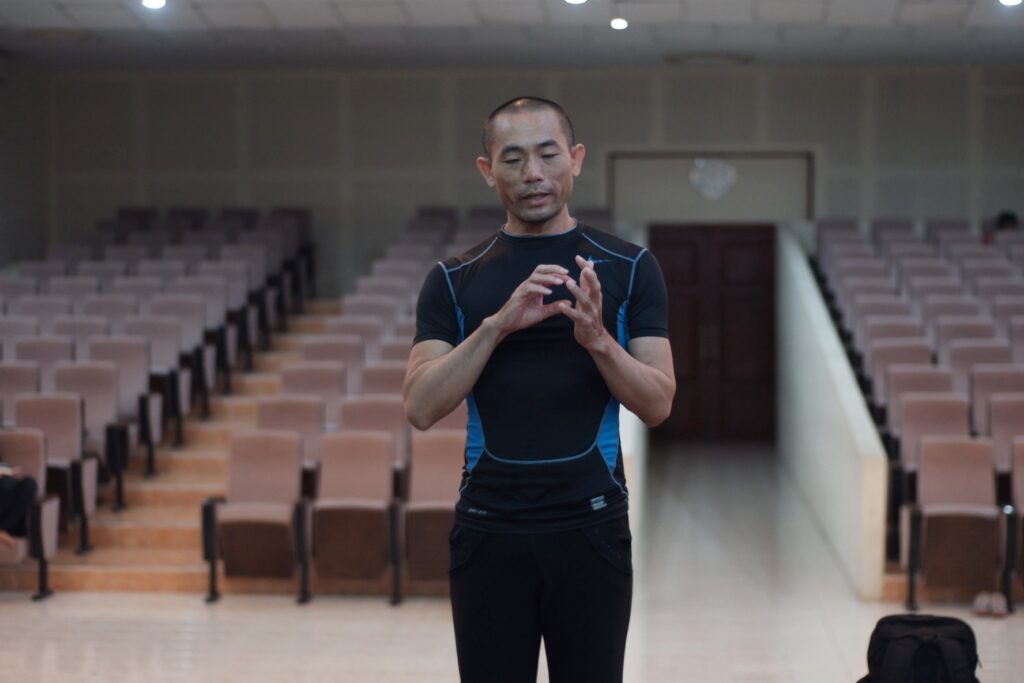
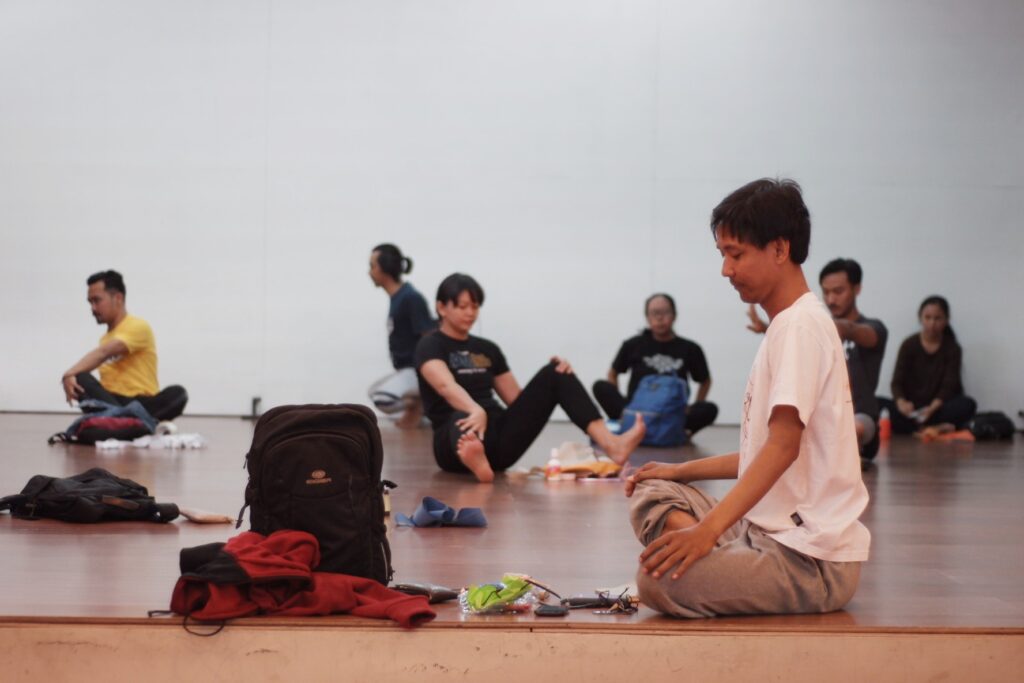
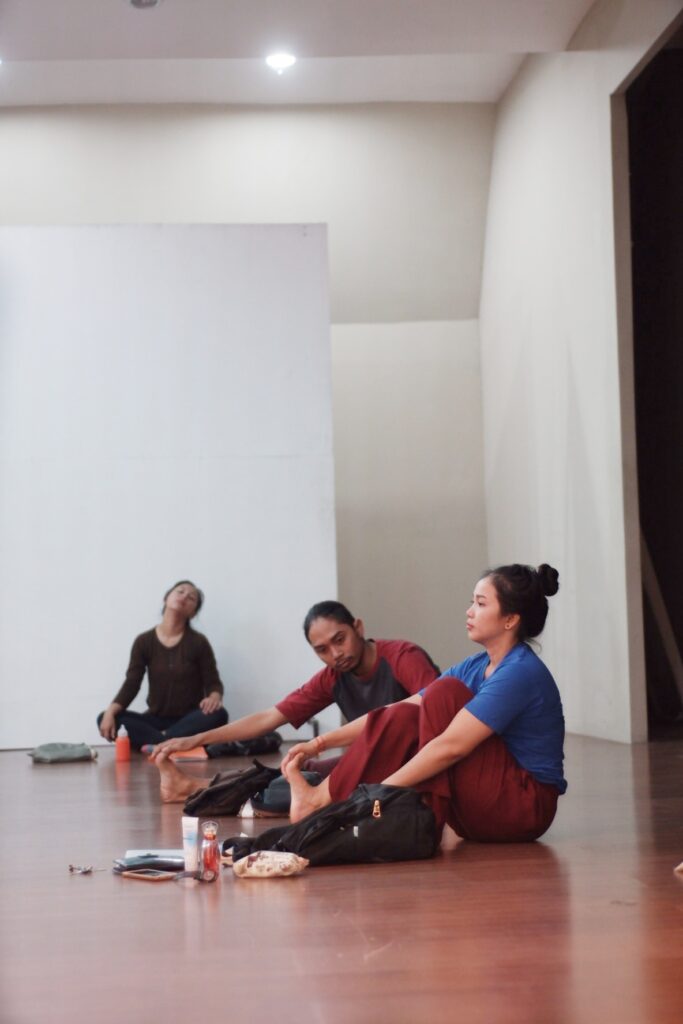
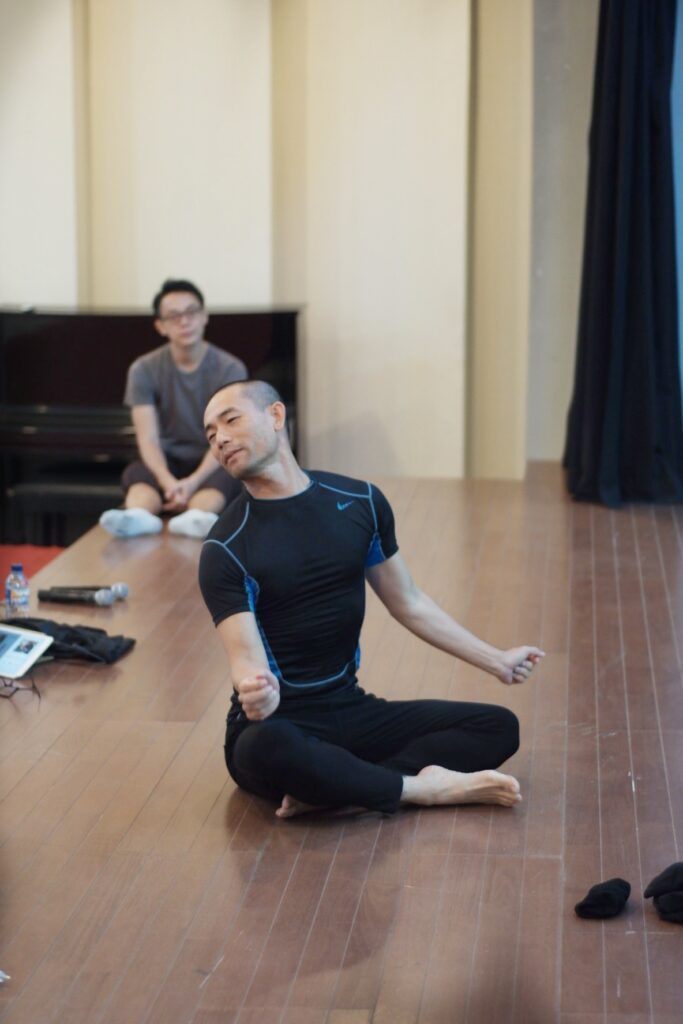
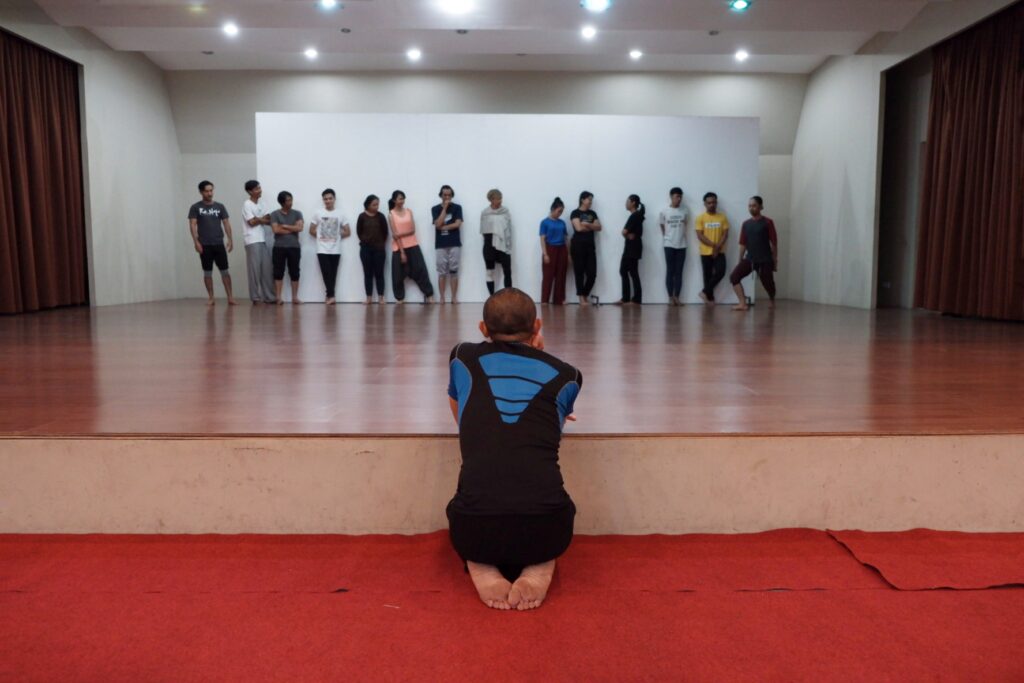
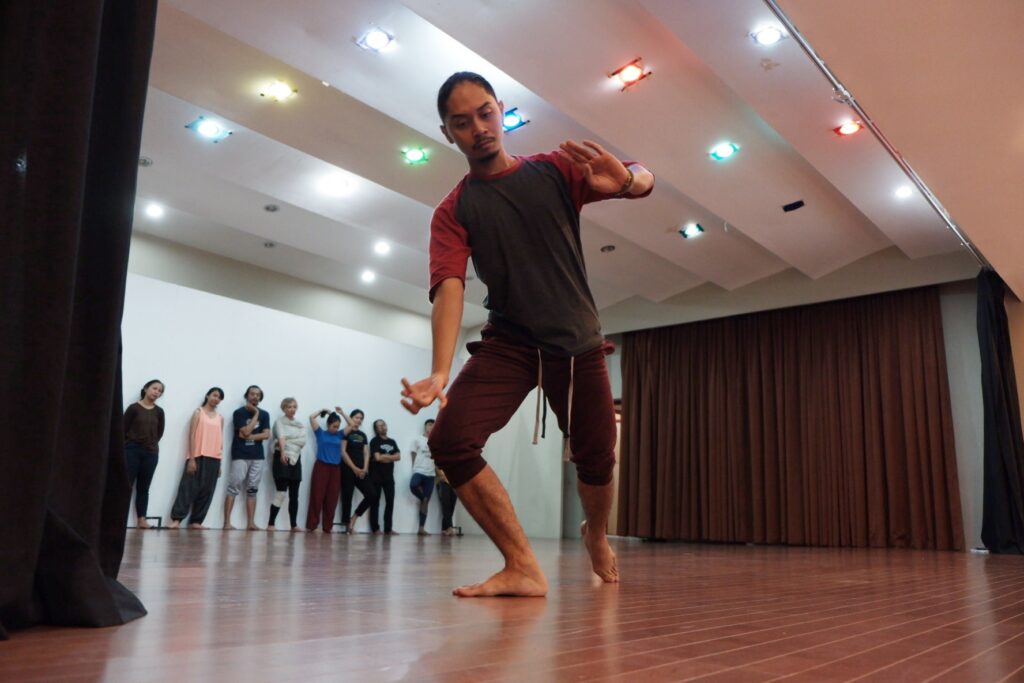
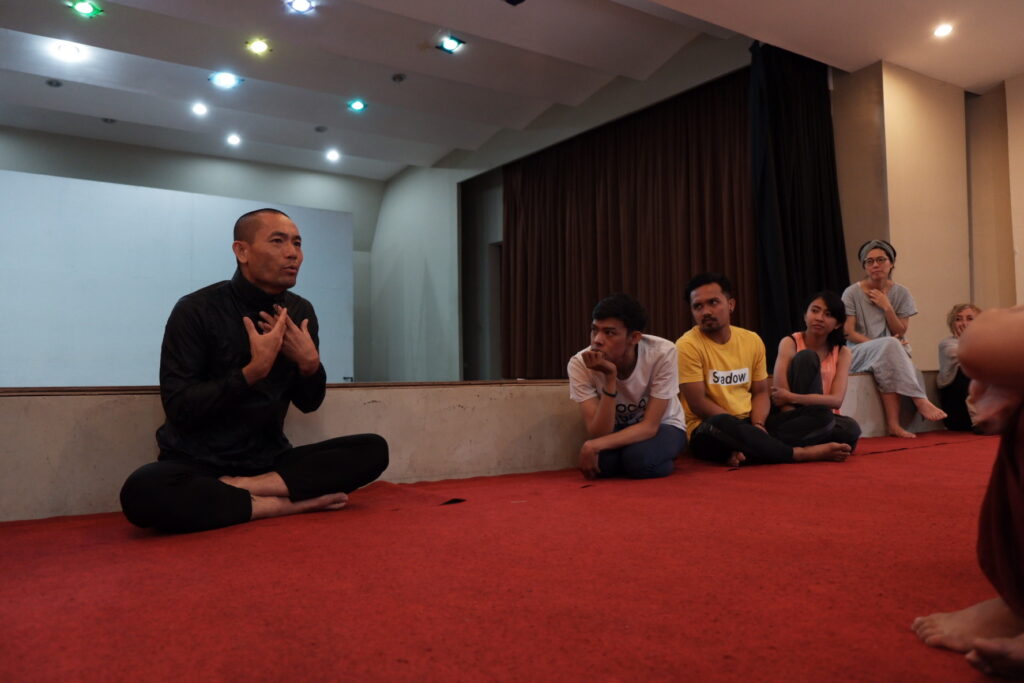
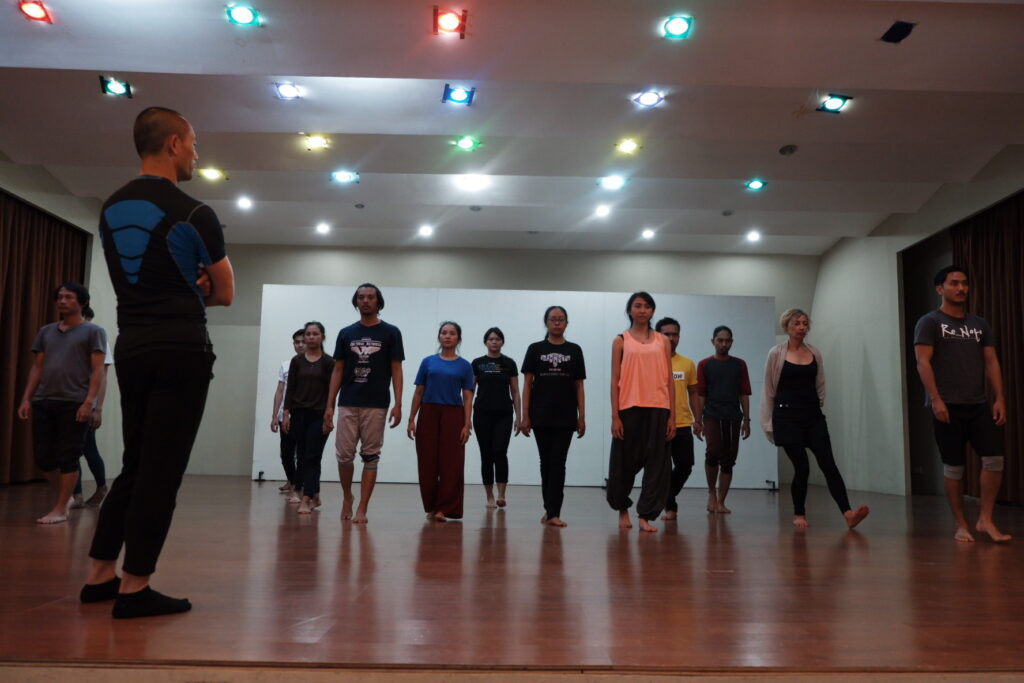
17-19 July, Open: 10:00-18:00; Performance 18-19 July, 16:30-17:30 Open Studio and Showcase
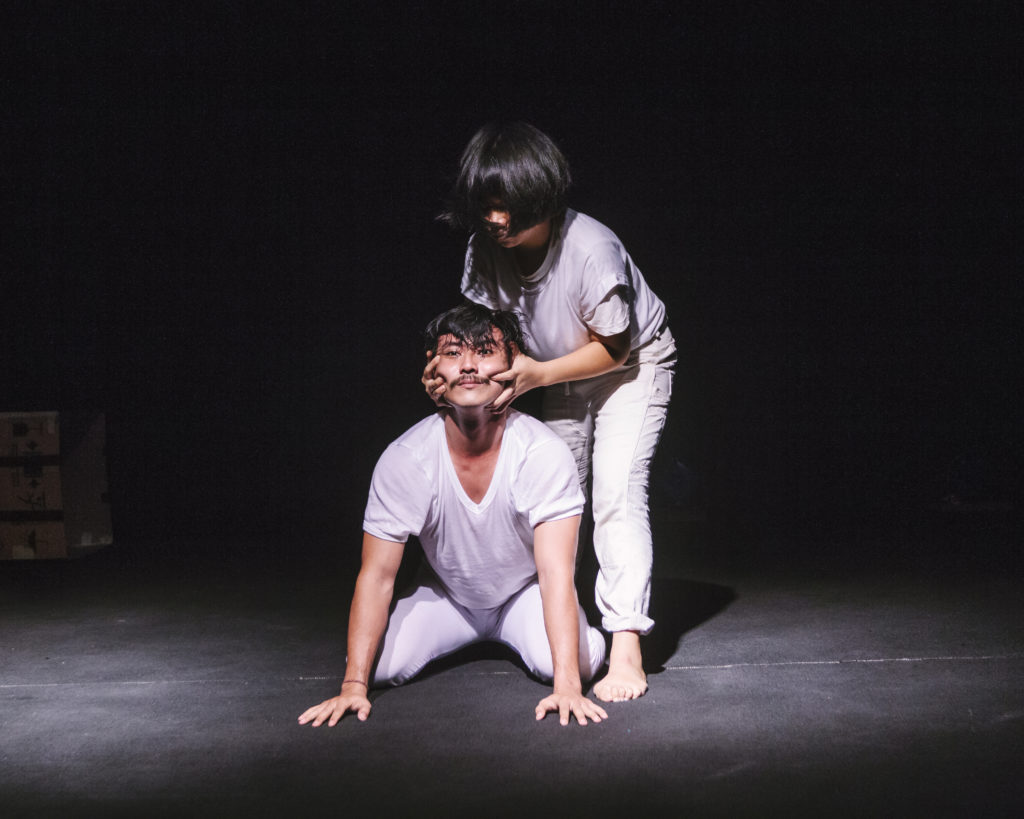
I Putu Bagus Bang Sada or Gusbang (choreographer, Bali–Yogyakarta) and Natasha Gabriella Tontey (visual artist, Jakarta-Yogyakarta)
(1) The starting point of this collaborative work is Gusbang dan Tontey’s shared thematic affinity that both of them have explored in each previous works before that centres on fear and death. Both explore the narratives related to fear and death but this time they don’t rush into transcendental or spiritual frameworks or themes, nor relate these topics to certain myths of horror as they did before. Instead, they choose to visit funeral homes in Yogyakarta and talks to forensic experts in several cities to excavate stories on death, modes of dealing with it, rituals involving the family and closest comunity of the deceased. From this research, they learn how the living often imbue power on the dead behind the solemnity of burial ritual.
(2) In addition to purification rituals, decorating thebody with fragrances and giving the deceased the best final abode possible, the living insist on arranging physical gestures and postures of the deceased to fit certain ideas of physical perfection. Identity informed by normative religion and gender conformity are insisted on the dead. This is all done in the hope that the dead will not leave any unnatural impression and horror for the living. At the end, these could be read as abnormality accepted as the normal as a means to ‘neutralise’ the fear of death for the living.
I Putu Bagus Bang Sada (Gusbang)
I Putu Bagus Bang Sada or Gusbang (b. 1993) is a choreographer from Bali who graduated from Indonesia’s Arts Institute (ISI), Yogyakarta, with a BA and MA degree in dance. Through artistic work, he investigates the Balinese tradition in relation to his identity as an individual who was born and grew up in Balinese religious – and yet cosmopolitan – society. He also notices there are various new interpretations and negotiations that the Balinese society applies to their own traditional practices within the dynamic context of modernity. Gusbang has performed in various festivals, among them Rota Do Oriente Lisbon, Portugal (2013), World Dance Day Solo (2014), Solo International Performing Arts (2014), Asia Tri Japan (2015), Turkish Folk Dance Festival (2015), World Culture Forum (2016), International Art Festival (2016), Indonesian Cultural Festival in Taiwan (2016) and Art Jog 10 (2017). Last year, Gusbang joined a residency programme Monsoon Platform, part of Europalia Indonesia in Leuven, Belgium.
Natasha Gabriella Tontey
Born in 1989, Tontey is an artist and graphic designer, interested in exploring the theme of fear, horror and terror. She questions the idea of how fear could be manifested and created in order to control public opinion and she is also concerned with the concept of fiction and reality and some offbeat thought. She tries to bring this idea by developing a mixture between fiction, dream, and memory with interdisciplinary approach. She obtained a BA from Visual Communication Design In University of Pelita Harapan (2011). Some recent programmes that she was involved in are Youth of Today at Ruang MES56 (Yogyakarta, Indonesia) LIMINAL at Cemeti Art House (Yogyakarta, Indonesia), Koganecho Bazaar 2015 (Yokohama, Japan), Next Wave Festival 2016 (Melbourne, AU), and UNKNOWN ASIA 2016 (Osaka, Japan).
17 July (Tue), 19:30-21:30 Panel Discussion
Venue:Langgeng Art Foundation (LAF)
English with Indonesian translation
Thanapol Virulhakul (Democrazy Theatre, Bangkok)
Satoko Ichihara (playwright, director, Tokyo)
Sekar Putri Handayani (Dance Producer, Surakarta)
Joned Suryatmoko (moderator)
In this talk, three young artists and/or art workers from three different Asian cities will share their entries to the art practice, their concerns and how they translate those into artistic thinking into actions.
Thanapol is a choreographer and theatre director based in Bangkok. After graduating from Thammasat University with a degree in Film and Photography, he began to pursue his passion for Dance and the Performing Arts. Throughout his extensive study of dance he deepened his curiosity in the function and form of Dance Art in our contemporary society. Thanapol has continually created subversive dance performances to investigate his questions and interests about the presentation of a body in space. Thanapol was selected to as representative artist from Thailand to participate in Korean-Asean fellowship program in Seoul (2005), Modern Dance Programme organised by The John F. Kennedy Center of Performing Arts (2010) and Internationales Forum (2015), Theatertraffen in Berlin. In 2013, his conceptual dance performance, TRANSACTION dealing with global economic system, won the award for best direction in a performance and in 2014 his contemporary dance performance “Hipster The King”, won three awards from IACT (International Association of Critics Thailand). In 2016 this piece has toured internationally to the Offene Welt festival in Ludwigshafen, Festival Theaterformen in Germany and the STORE HOUSE Collection in Japan. Thanapol’s most recent work, Happy Hunting Ground, created in collaboration with Badisches Staatstheater Karlsruhe, was performed in Thailand, Germany and Switzerland.
—
Satoko Ichihara is a playwright, director and novelist. Born in 1988, she studied theatre at J.F. Oberlin University. Starting Q in 2011, she narrates the absurdity of life and the vitality of humans who shine in the rankling world from the perspective of female, delivered mainly in monologues. While setting the great value on the bodies of performers, she also puts an emphasis on the expression of texts and their rhythms. Her works are carefully built as if from the eyes to observe the human’s and animal’s behaviour, would soak the audience in the vibrancy and the bounding pulse of life. In 2011, Satoko received the Aichi Arts Foundation Drama Award with the play Insects. In 2017, her play Favonia’s Fruitless Fable was nominated as one of the finalists for Kishida Prize for Drama; and it was invited to Seoul Marginal Theater Festival. In 2018, she has been selected as the Saison Foundation Junior fellow Artist.
—
Sekar Putri Handayani started working in performing arts field since 2007 as freelance production manager, working with some senior artists from abroad and Indonesia. Since 2014, she has been working as an independent producer, especially on dance. In 2017 she co-founded Rumah Banjarsari, a public/art space where she also serves as general manager. As dance producer, she has been working intensively with Otniel Tasman, a young choreographer from Banyumas, Java, developing research-based work and combining script material with exploration-improvisation. In Rumah Banjarsari, she is exploring ways of working with various communities and artists. She taps into a wider opportunity to work in performing arts, often engaged discussion focusing on artistic element in support of making artistic decisions. In running the space, she applies curative materials as the guideline for the programs.
—
Joned Suryatmoko is a theatre-maker, performer as well as playwright. He is founding director of Yogyakarta-based Gardanalla Theatre and Festival Director for Indonesia Dramatic Reading Festival (IDRF). He presented his play in Asia Playwright Meeting in Tokyo, Japan (2009) and Melbourne (2011), Virgin LabFest Manila (2006), PEN World Voices New York (2015), The Global Voices Portland, USA (2016/ 2017), and Asian Drama Conference London/ UK (2018). Currently Joned is interested in the border between theatre and performance, between linearity and simultaneity, character and autobiography, as well as acting and authenticity. Taking this border as starting point, he has continued expanding his interest by investigating how these performative means (such as theatre and performance) have been used by citizens to articulate their political aspiration.

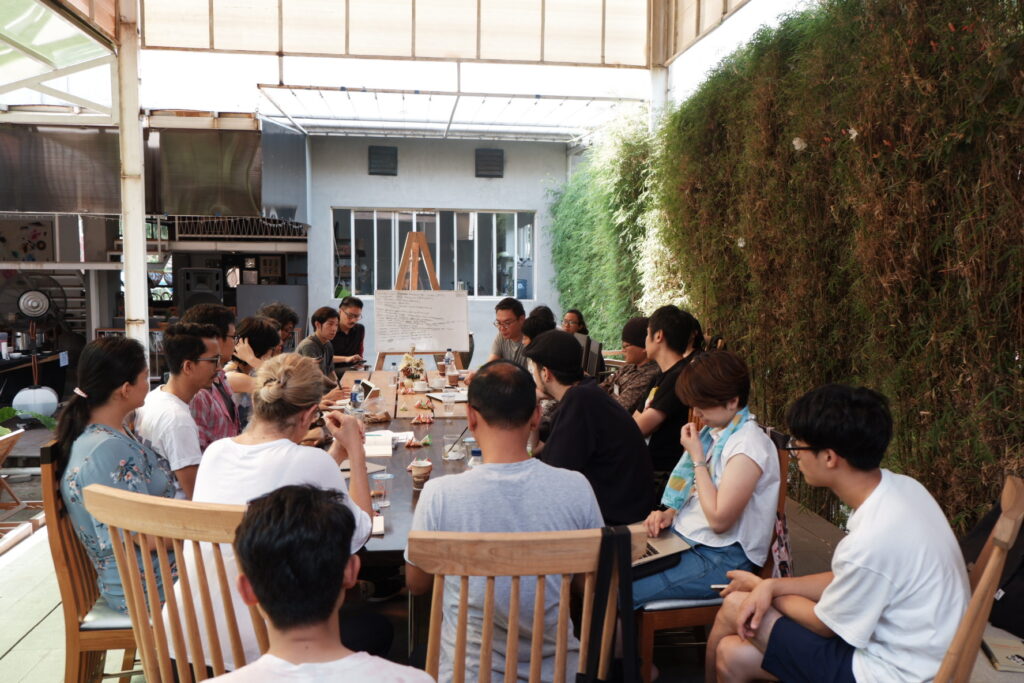
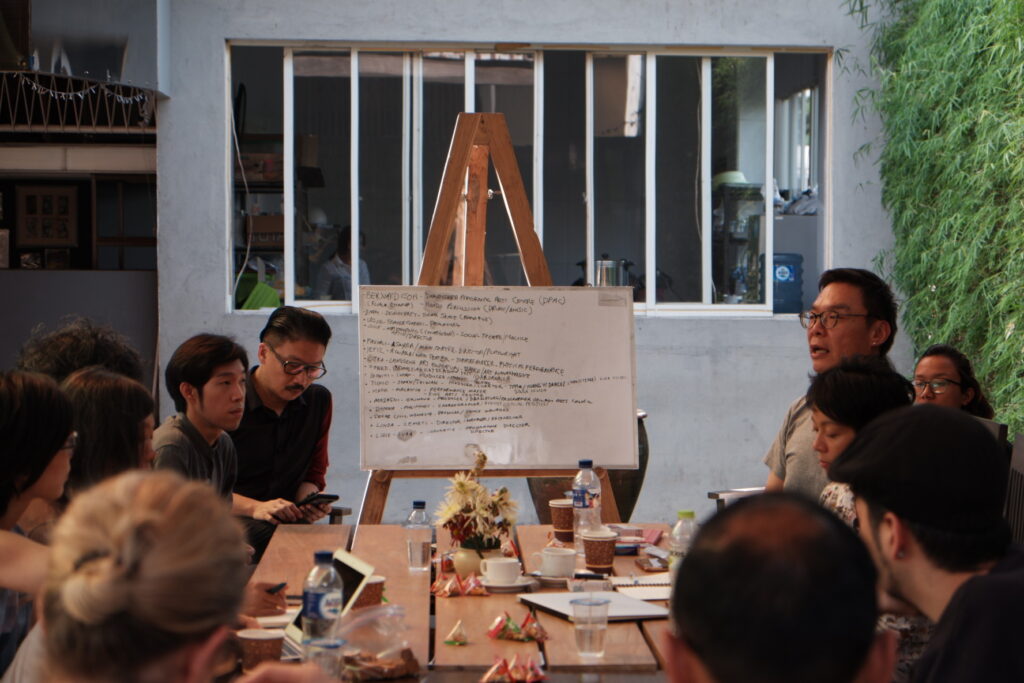
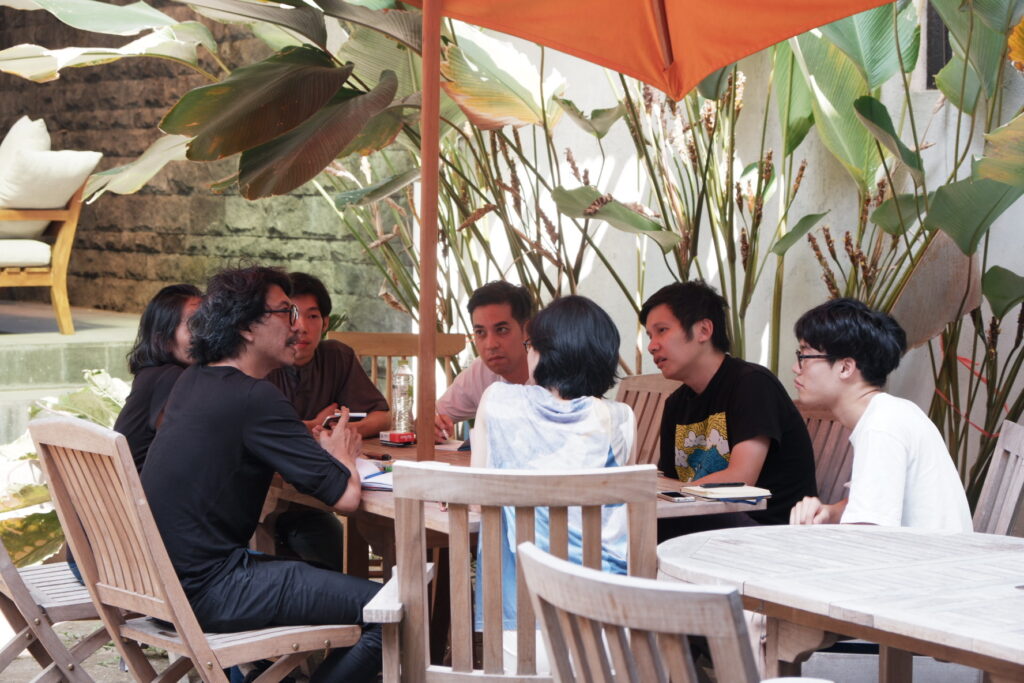
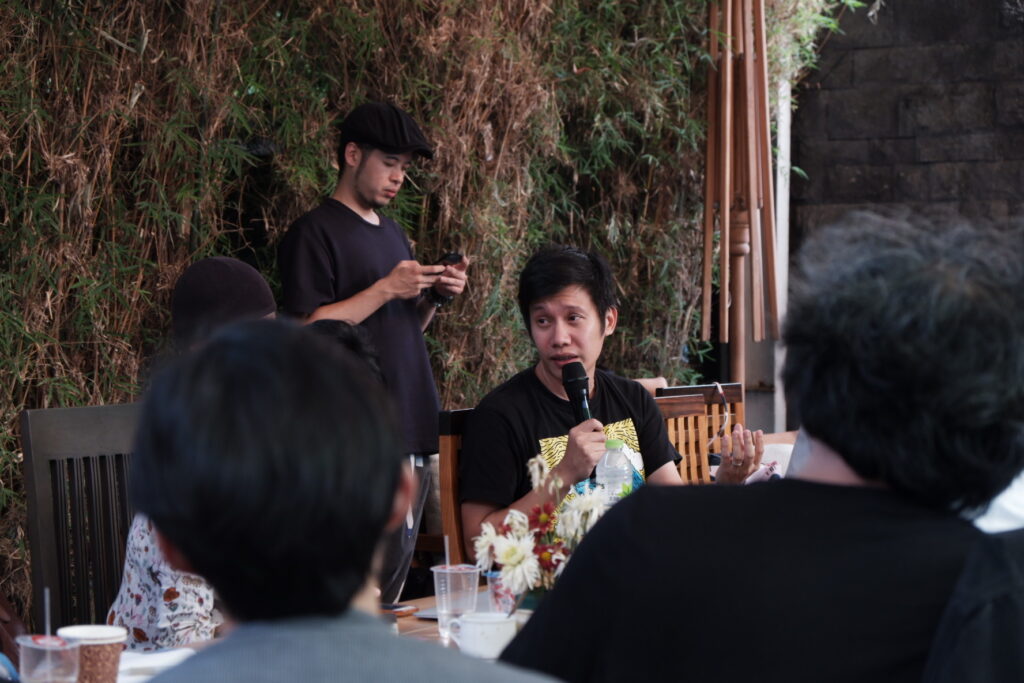
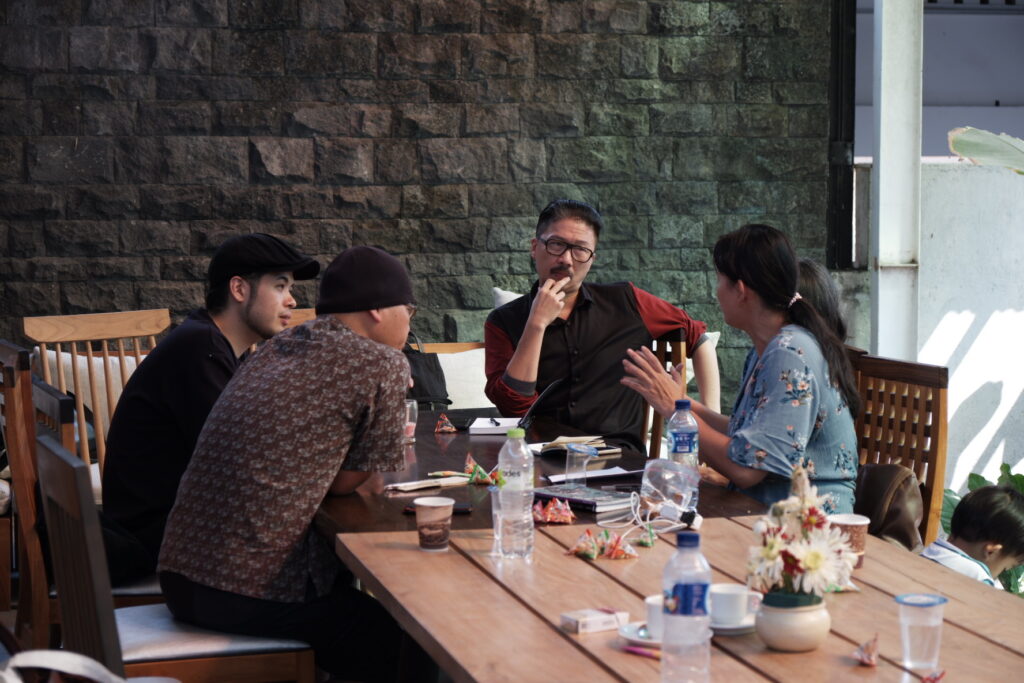
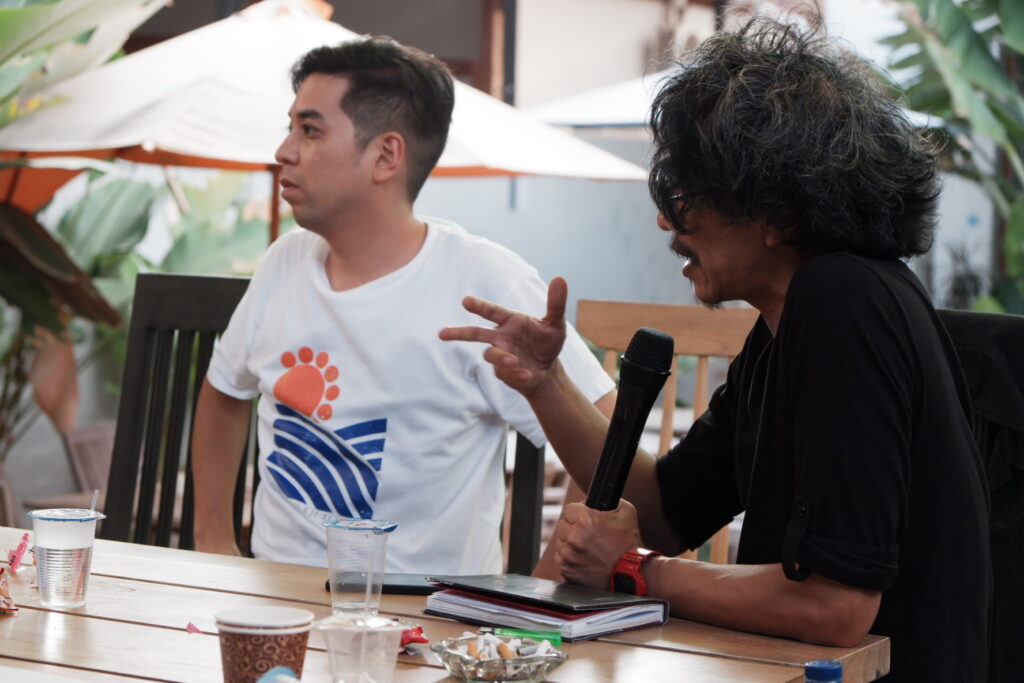
18 July (Wed), 19:00-21:30
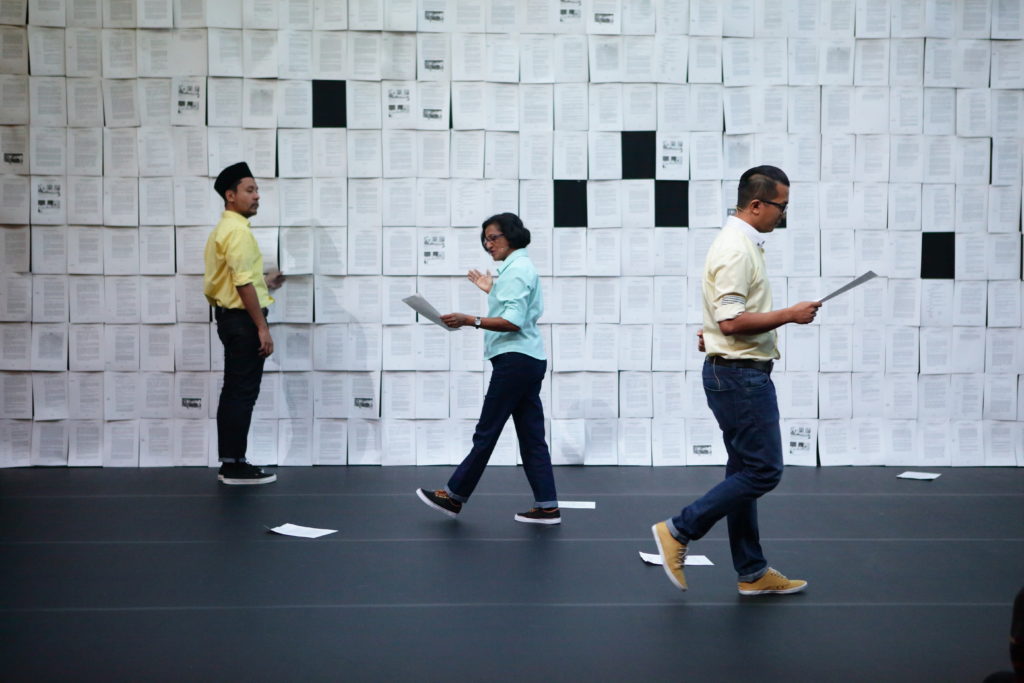
A Double Bill Presentation By Mark Teh (Kuala Lumpur) And Yudai Kamisato (Tokyo/Kawasaki)
(1) Performance-makers Mark Teh (Malaysia) and Yudai Kamisato (Japan) will present their artistic journeys that are intimately intertwined with their personal research into identity at home and abroad. Teh’s interest in interpreting and imagining a nation in the making of Malaysia leads him to create performances that dwell in historical documents and the documentary format with what he calls “frictioning official texts with personal experiences/memories, parallel historical texts, and further research by performers”. Emphasising collaboration, Teh’s strategies of staging histories also mean working with other artists and researchers from different fields. In recent works, such as his The Complete Future of Malaysia series, Teh advocates generative, open-ended research processes “taking form in multiple chapters of installations, exhibition, participatory projects, performances, lectures, etc”.
(2)Through his travels, Kamisato has been fascinated by collective stories of communities in foregn lands that are then historicised. For Kamisato, he presents a lecture on his ideas of what it means to “report”. He suggests three concepts on reporting. The first is the duty of the “alien/stranger” in excavating the deep realities of the local community. In his own words: “the stranger is a stimulus that brings outside perspectives and is a place where locals can get rid of their stresses, and is a device that makes problems visible. I believe that the community needs strangers for keeping itself healthy”. Reporting for Kamisato is also about stories brought about by impressions and memories that cannot be precise. He sees this as “creative reporting”. Lastly, Kamisato brings us to the meaning of reporting that involves the “imagination of the other life,” how life would be in a place not of his belonging.
Mark Teh
Mark Teh is a researcher and performance maker based in Kuala Lumpur. His diverse, collaborative projects are particularly engaged with the issues of history, memory and the urban context, often taking on documentary and speculative forms. His practice is situated primarily in performance, but also operates via exhibitions, participatory projects, writing, curating, and education. Mark graduated with an MA in Art and Politics from Goldsmiths, University of London, and is a member of Five Arts Centre, a collective of interdisciplinary artists, producers and activists in Malaysia.
Yudai Kamisato
Born in Peru in 1982, director and playwright Yudai Kamisato is the head of Okazaki Art Theatre. In 2006, he won the first prize in the TOGA Directors Competition for his staging of Desire Caught by the Tail, a script by Pablo Picasso, and won the prize for the Kishida Kunio Drama Award in 2018 with The Story of Descending the Long Slopes of Valparaíso. More recently, he has been creating works that derive from heightened interest in his own identity and reflect deep insights into problems confronting immigrants and workers, the relationship between the individual and national identity, and communication with contemporary others. He is currently based in Tokyo and Kawasaki.
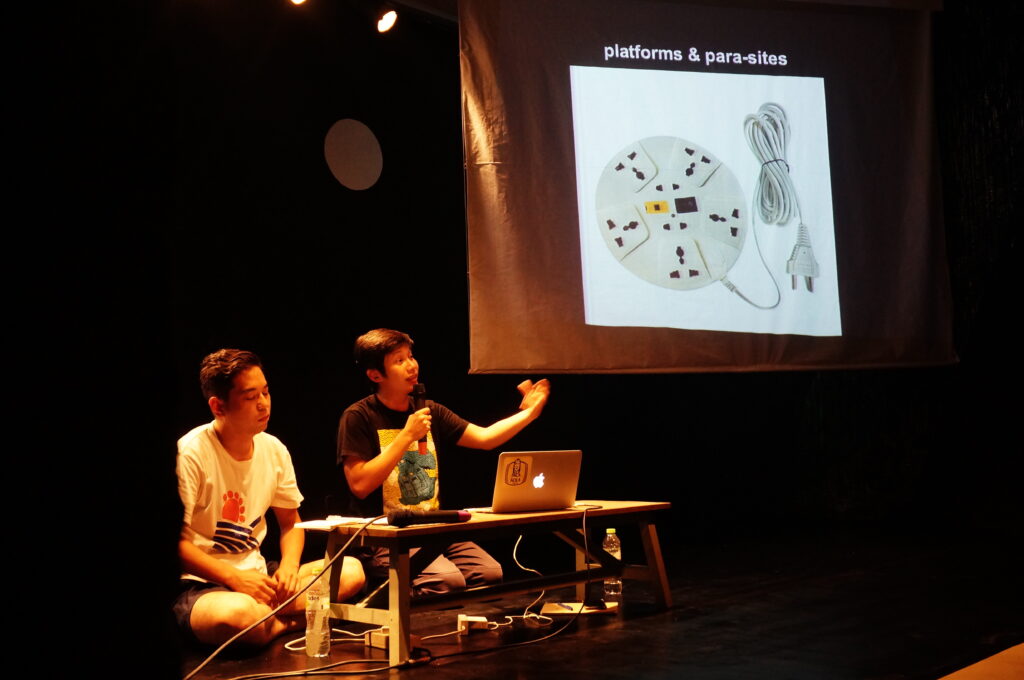
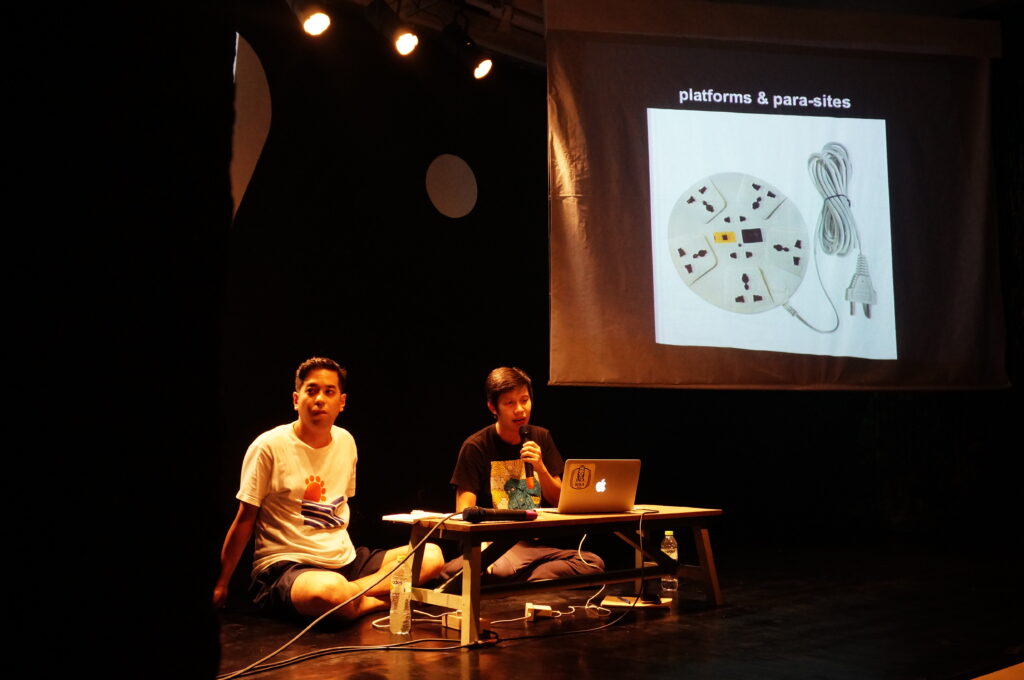
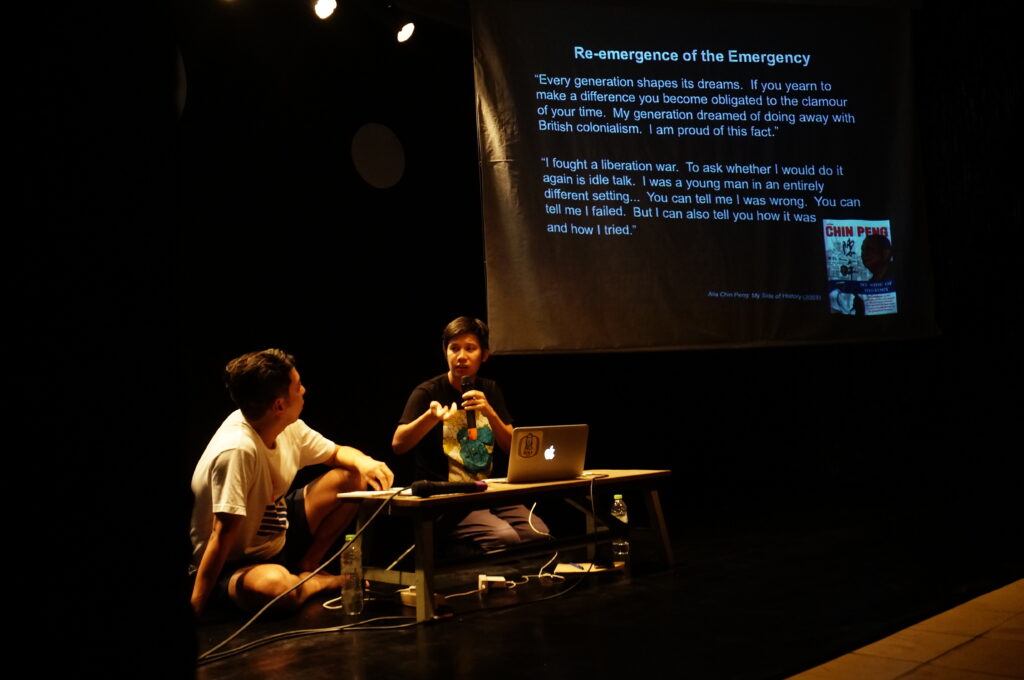
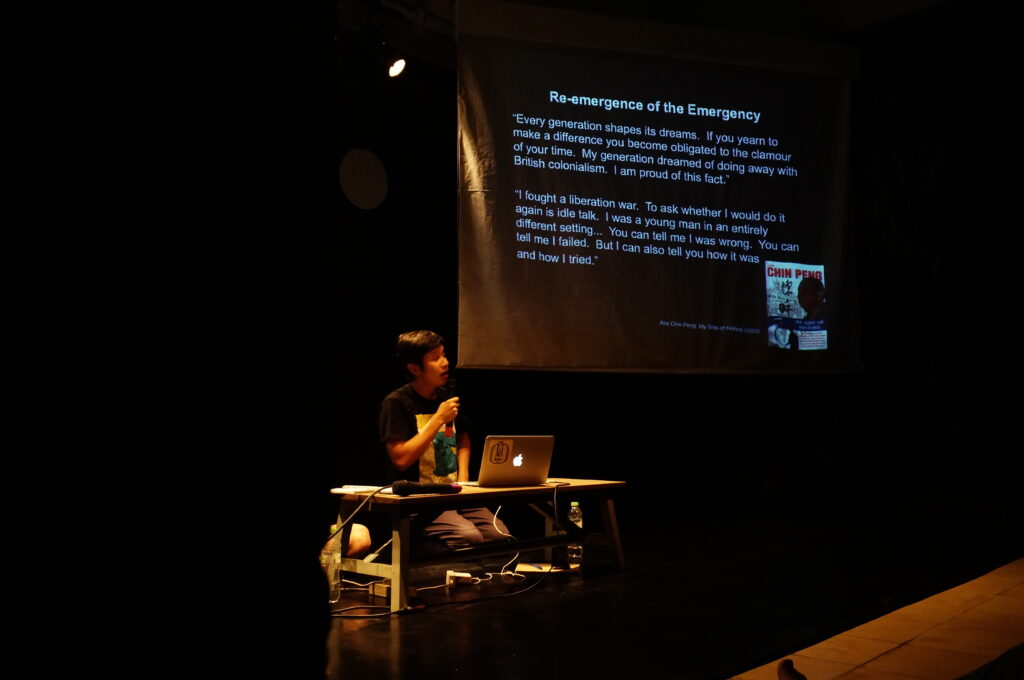
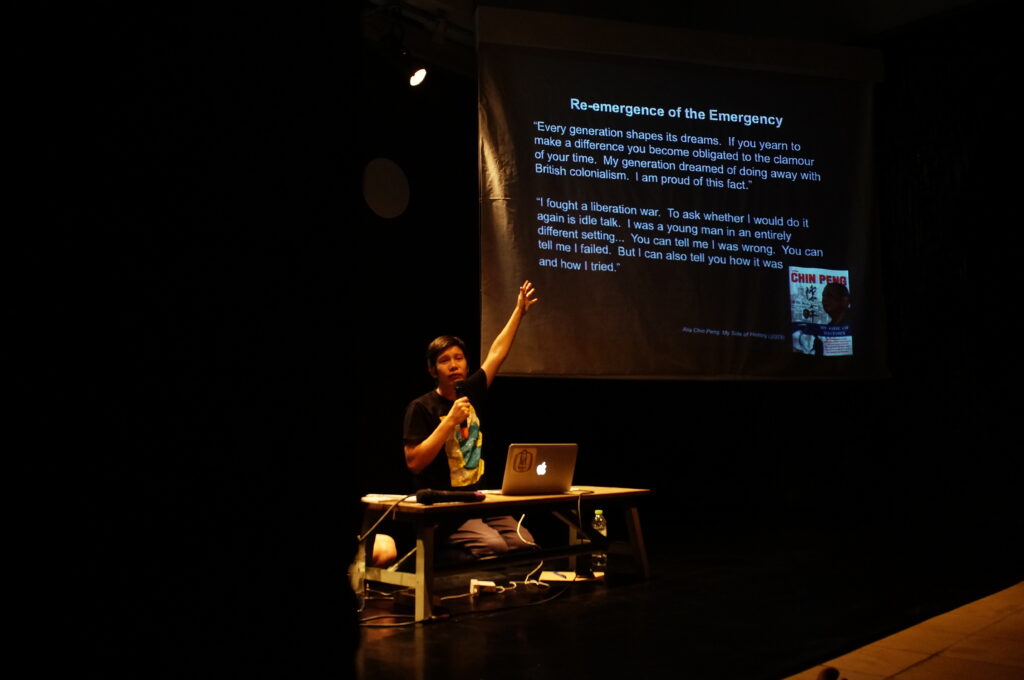
19 July (Thu) 19:00- Research / Work in Progress (Series of Performances)
Venue:Cemeti Art House
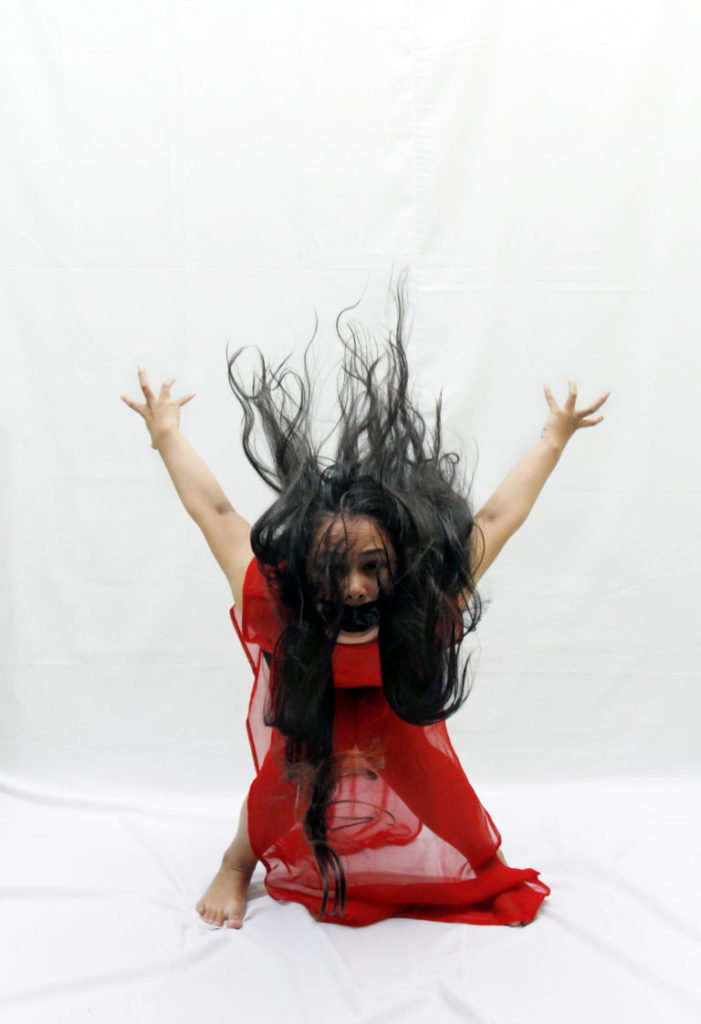
Starting from a question of how dangdut – Indonesian popular music that combines the beats of Malay-Indian pop music and Arabic tunes – influences the dangdut movement. Ayu initiates her research by archiving joged (dance movement) performed by dangdut audience in the Gabusan local craft market, Yogyakarta. The archiving is conducted by firstly embodying the so-called joged dangdut as performed by the audience. Ayu observes how this embodiment process takes place in her own body trained in traditional and contemporary dance technique, a very different sensibility from joged dangdut. The aim is to familiarise with the modes and vocabulary of joged dangdut movement, as well as to observe the bodily reaction towards joged dangdut, for instance the relaxing effect, pleasure, etc. Some questions arising from this research deal with the audience’s perspective and society-at-large towards the dangdut singer – usually a sensual, sexy-clad young lady – up to the societal development intertwined with those of the dangdut itself. However, for this presentation, Ayu focuses on sharing her experience of archiving the joged dangdut through embodiment.
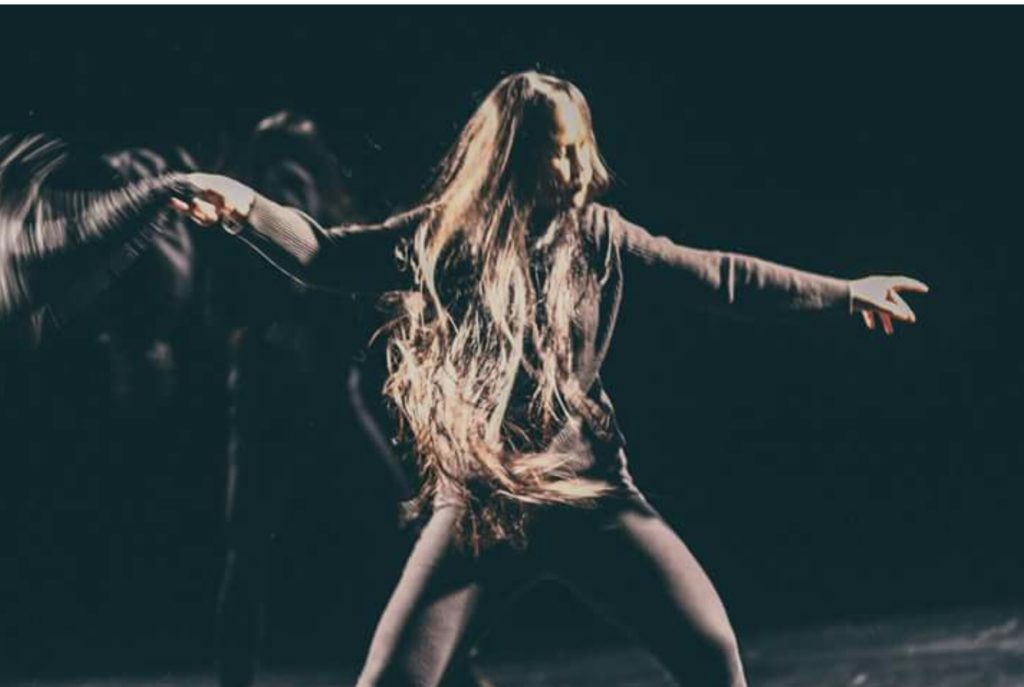
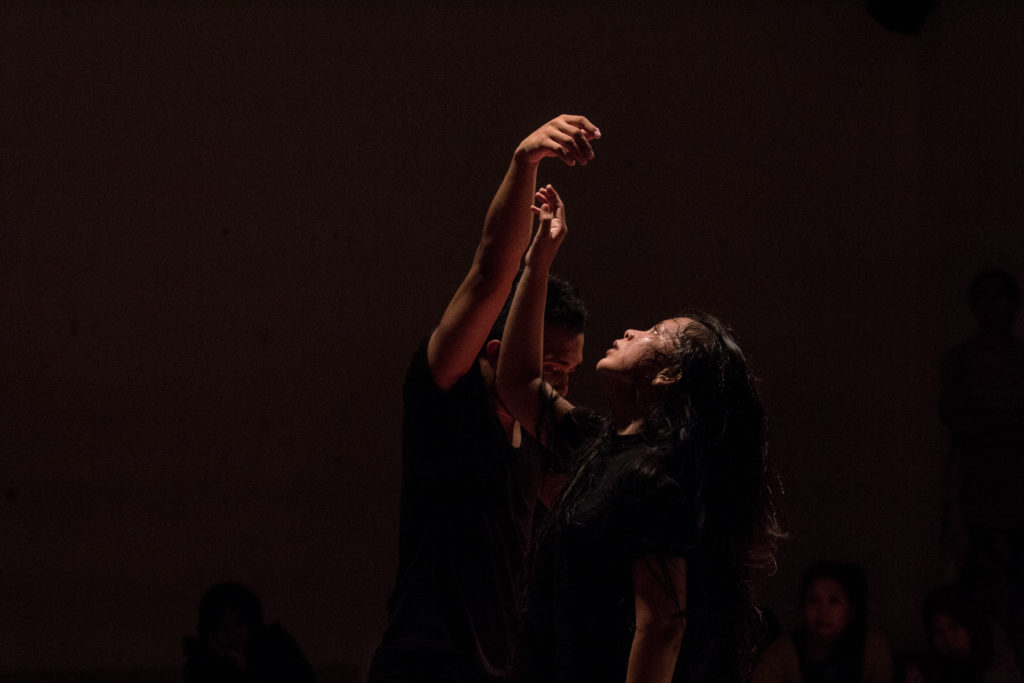
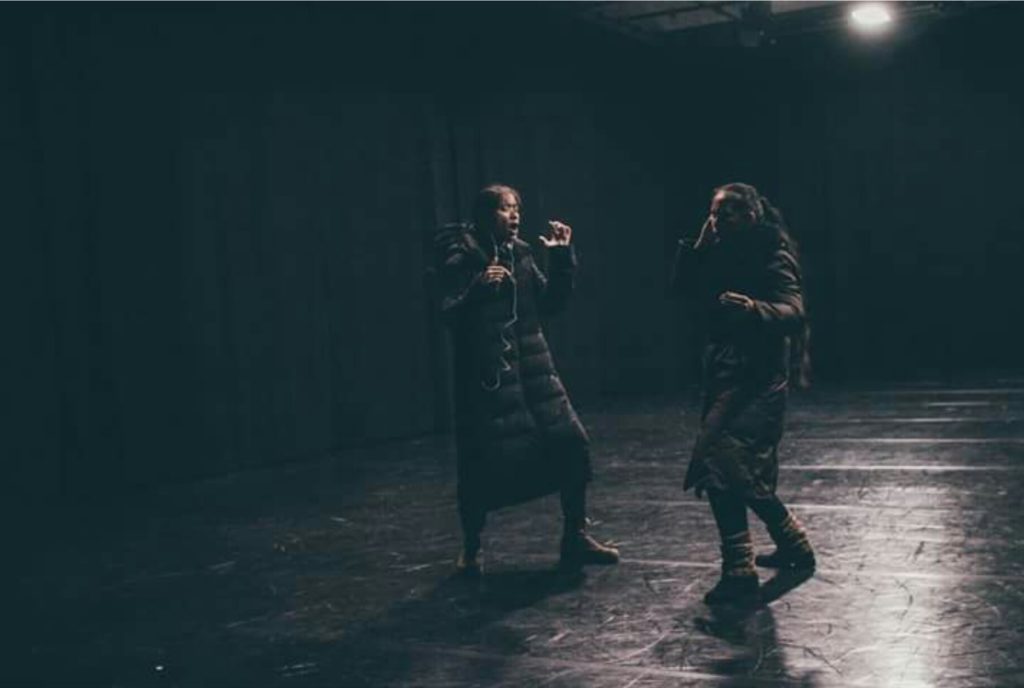
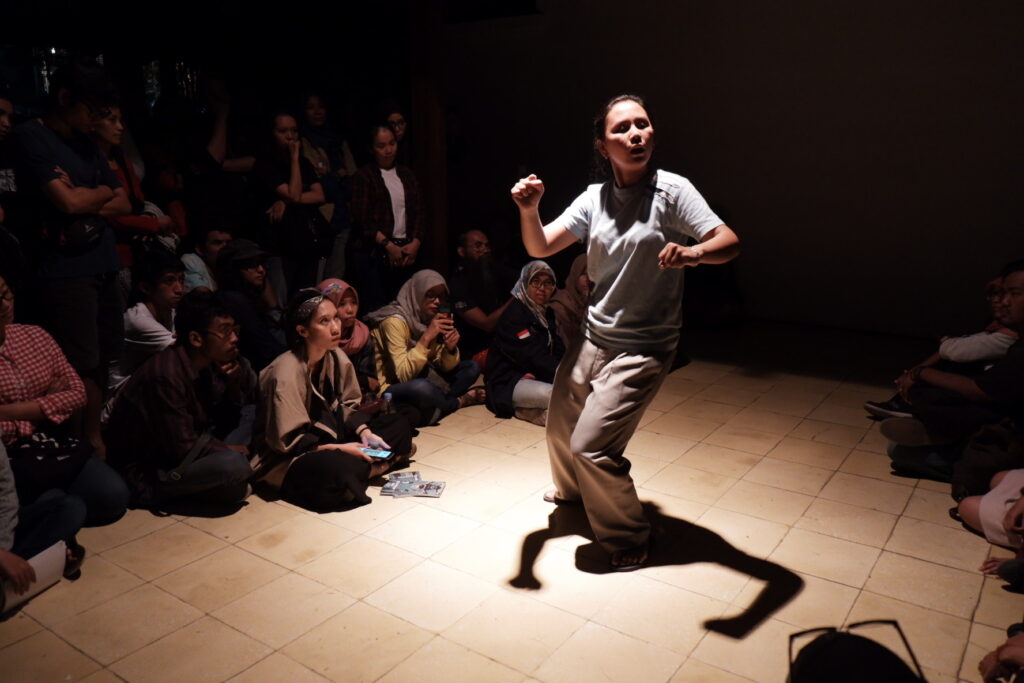
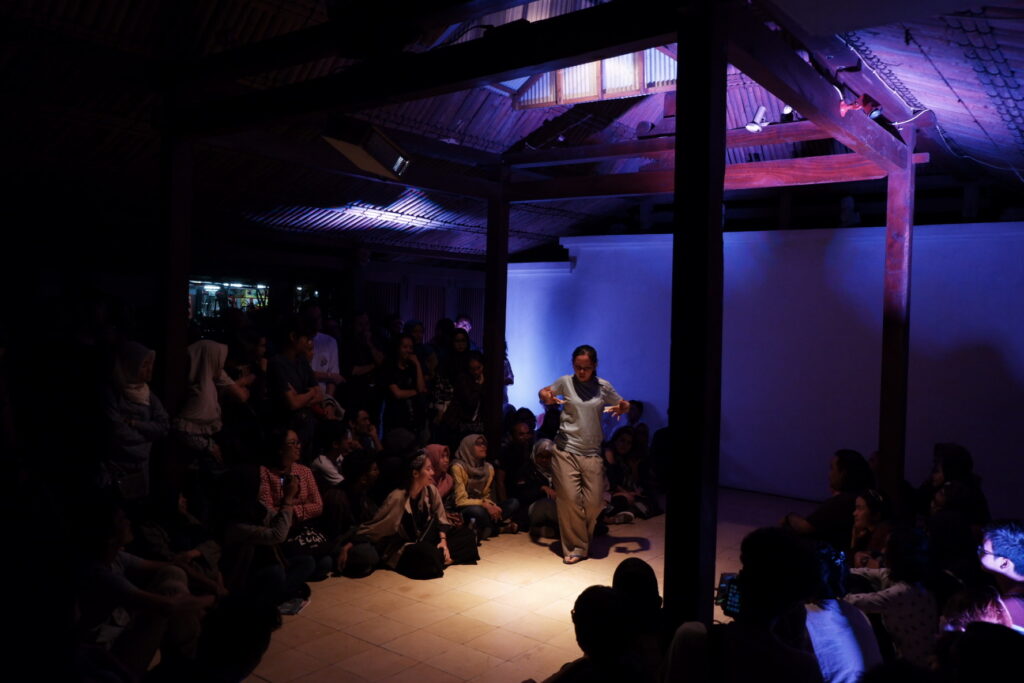
19 July (Thu), 19:00-22:30 Research / Work in Progress (Series of Performances)
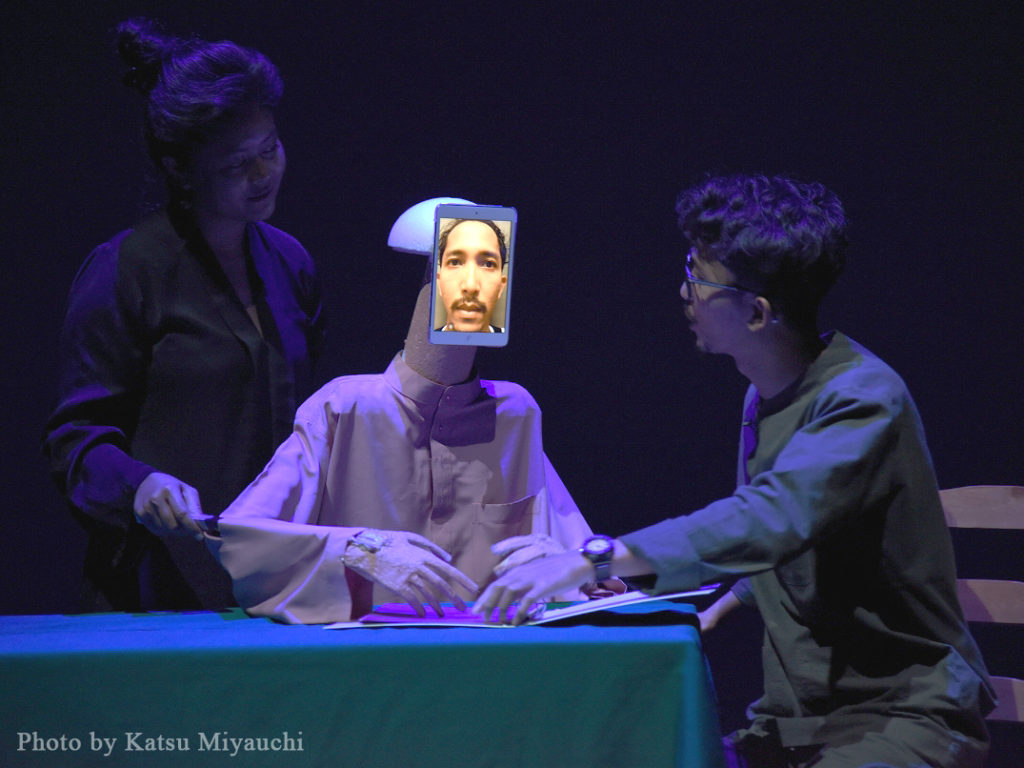
Samar-samar is a work in progress based on two different plays by Fasyali and Iefiz which were performed separately but shared the same theme of unspoken love. Ingatan (Remembrance) which was first performed in 2017 and Baba (Father) in 2014 talk about the complex relationship between father and son. Samar-samar will continue to explore this unspoken love bond, which exists but cannot be seen. The complexity in this patriarchal society and system will be explored in a 20-minute theatrical presentation.
Fasyali Fadzly is an educator, director, playwright and writer. After dropping out from computer science, he then chose theatre and pursued his dream to commit and develop Malaysian theatre from the grassroots. An MFA graduate from University of Calgary, Canada, he often tackles his work in satirical manner. He believes, comedy allows many convention and innovation not just in playwriting but also in finding new form. He wrote and directed his own play – Teater Juta-Juta (Theatre of Millions) which won for Best Director, Best Original Script and Best Ensemble Performance in the Boh Cameronian Arts Award 2014, Berani Mati (Suicide Game), Kotak Hitam (Idiot Box), Kawan-kawan Yang Kita Suka (Friends that We Love) and directed several plays from other playwrights such as Oedipus, ‘Art’ and Jebat. In 2017, he was invited to involve in One Table Two Chairs Meeting in Tokyo and staged a 20-minute show titled Ingatan at Za-Koenji Public Theatre, Tokyo. He also writes theatre-related articles and reviews and was published in local and international web portal. He occasionally acts for feature films, short films, commercial and TV programmes. One of his short films that he wrote and acted, Skodeng: Kebenaran Yang Nakal won Best Film, Best Script and Best Director for KL 48 Hours Film Project and represented Malaysia for International 48 hours Film Project in Miami 2010. Recipient of ASWARA Academic Scholarship Award, he is now serves as lecturer at The National Academy of Arts, Culture and Heritage of Malaysia (ASWARA).
—
Iefiz Alaudin was introduced to the performing Arts when he joined Tunas Budaya at a young age. He had the opportunity to work with renowned directors like Rahim Razali, Hatta Azad Khan, Ahmad Yatim, Rosminah Tahir, Kee Thuan Chye, Namron, Adlin Aman Ramli, Rohani Yousof, Marlia Musa etc. In 2009 he graduated as best theatre student of ASWARA and went on to further his studies at Middlesex University in the UK. After that, with the aid of a scholarship from ASWARA, he obtained an MA in Movement Studies at the Royal Central School of Speech & Drama in London. His works in theatre includes involvement in Swordfish + Concubine, Langkau, Ribut, Baba, Family Business, Jenin, Tujuh Hari Juhari, Jerebu etc. He is now a lecturer in theatre at National Academy of Arts, Culture and Heritage. In 2018, after years of working together, Iefiz co-founded Main Theatre with Fasyali Fadzly and Nawfal Zamri that aims to produce collaborative, contemporary and cutting-edge works.
—
Starting from a question of how dangdut – Indonesian popular music that combines the beats of Malay-Indian pop music and Arabic tunes – influences the dangdut movement. Ayu initiates her research by archiving joged (dance movement) performed by dangdut audience in the Gabusan local craft market, Yogyakarta. The archiving is conducted by firstly embodying the so-called joged dangdut as performed by the audience. Ayu observes how this embodiment process takes place in her own body trained in traditional and contemporary dance technique, a very different sensibility from joged dangdut. The aim is to familiarise with the modes and vocabulary of joged dangdut movement, as well as to observe the bodily reaction towards joged dangdut, for instance the relaxing effect, pleasure, etc. Some questions arising from this research deal with the audience’s perspective and society-at-large towards the dangdut singer – usually a sensual, sexy-clad young lady – up to the societal development intertwined with those of the dangdut itself. However, for this presentation, Ayu focuses on sharing her experience of archiving the joged dangdut through embodiment.
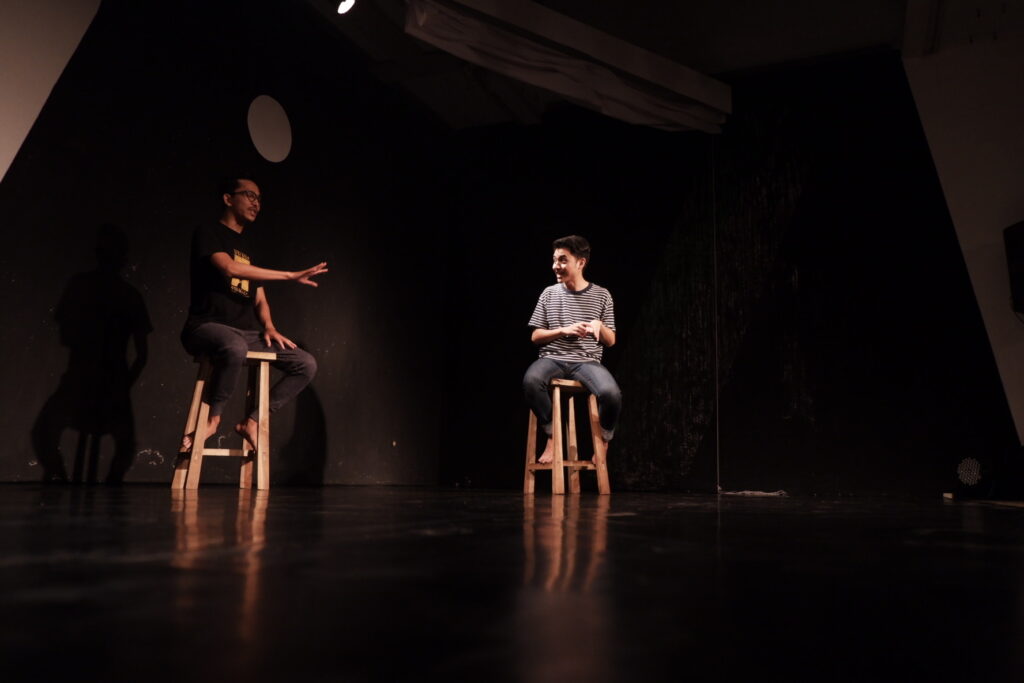
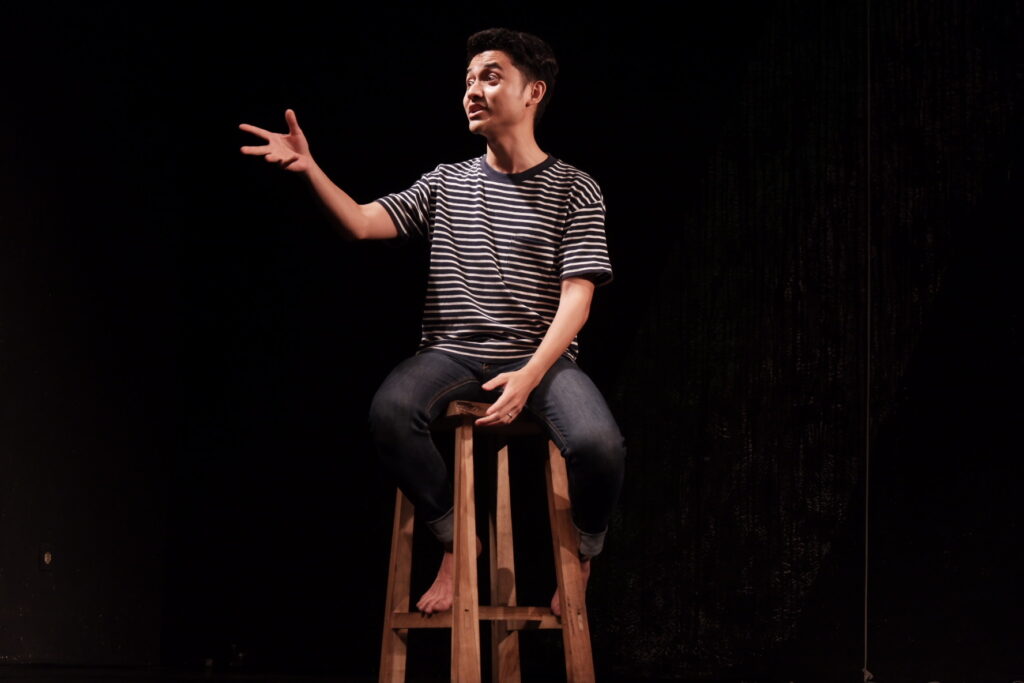

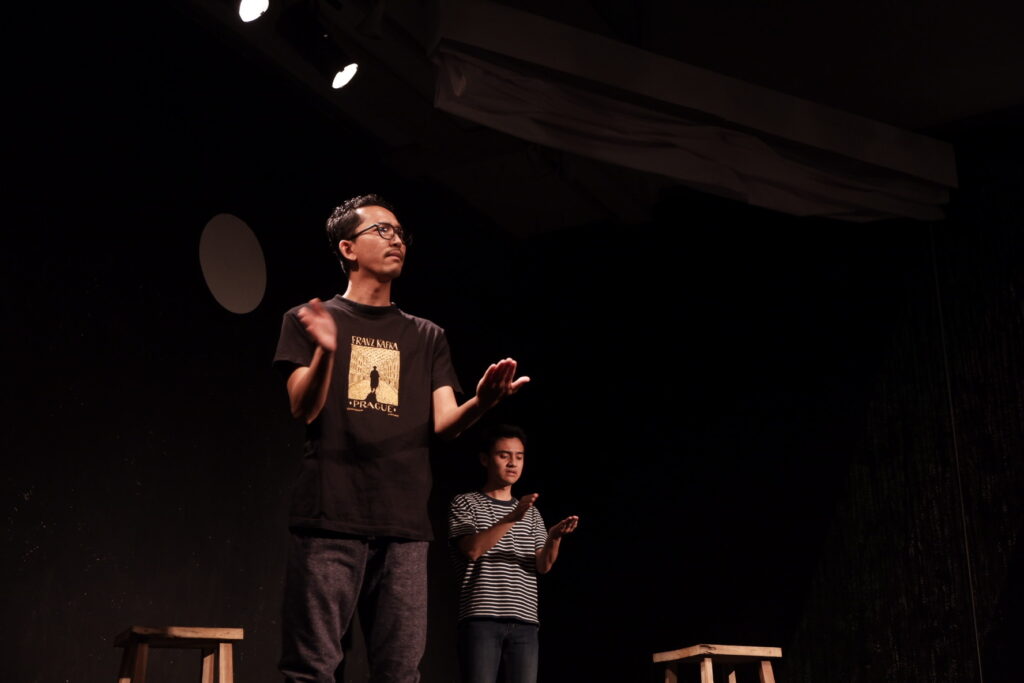
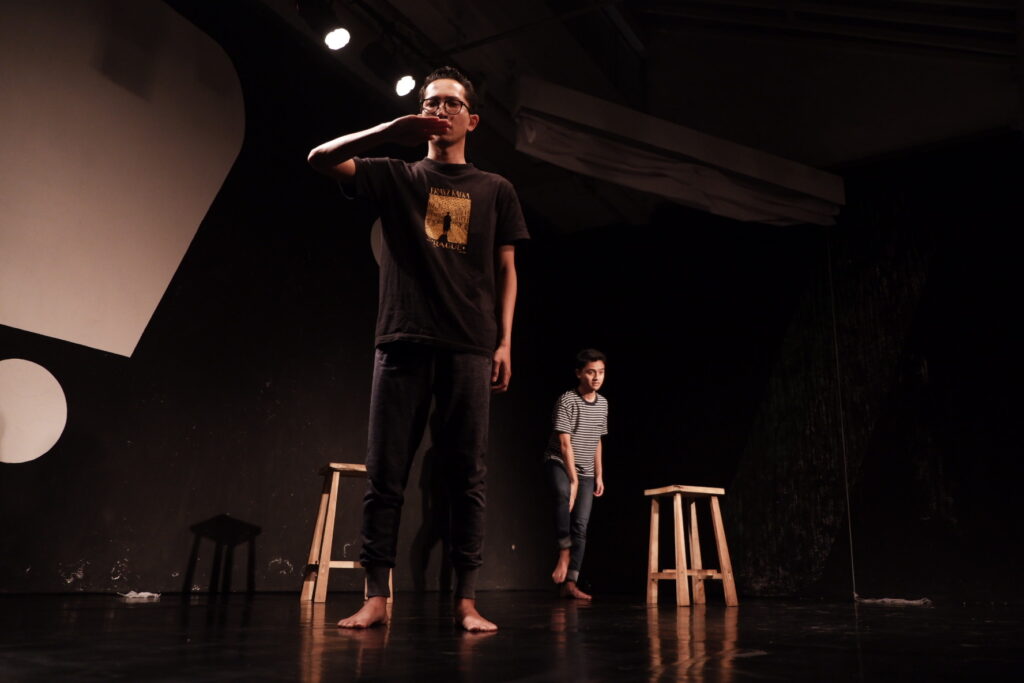
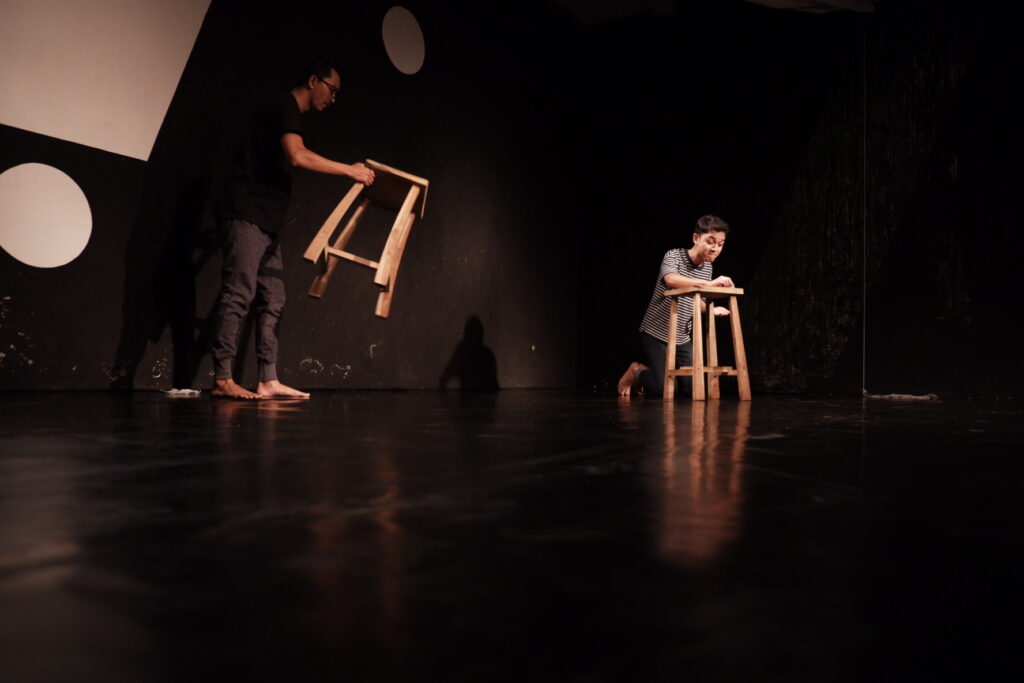
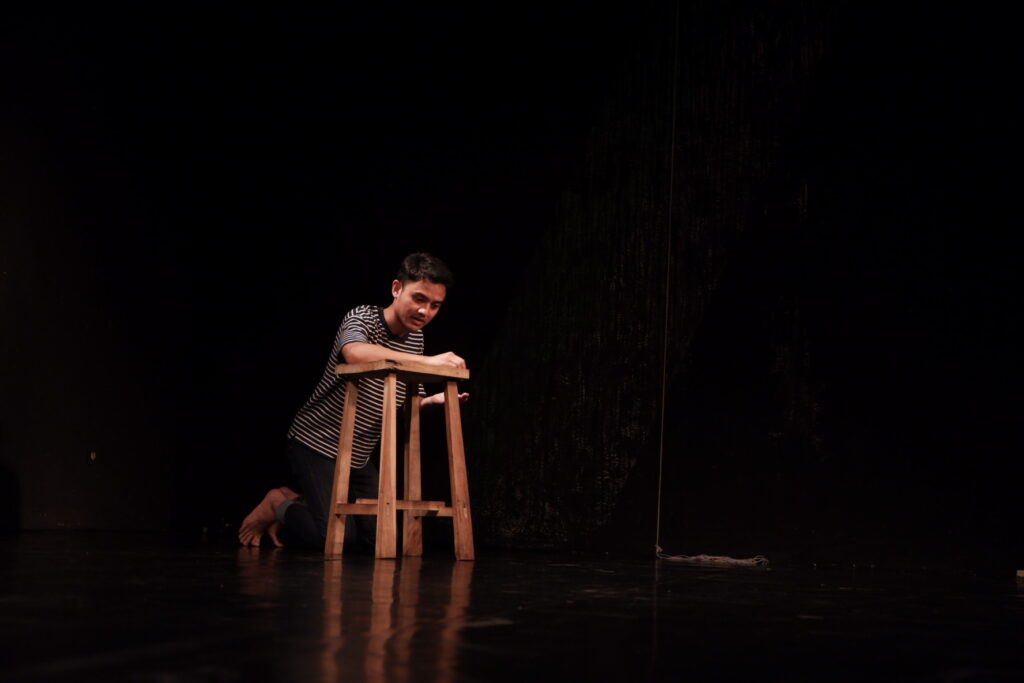
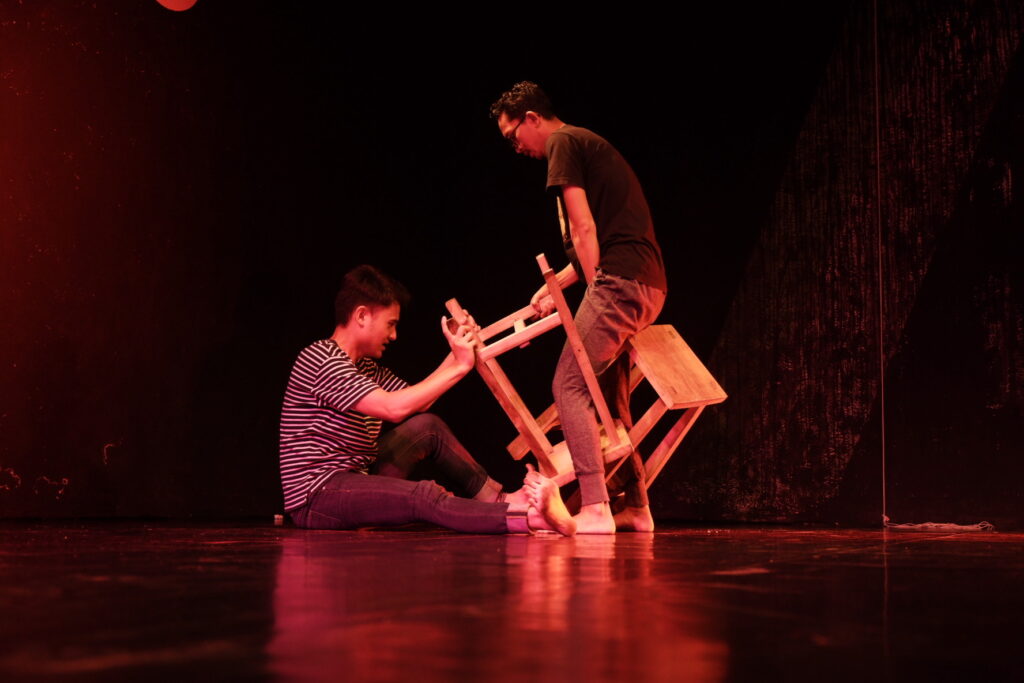
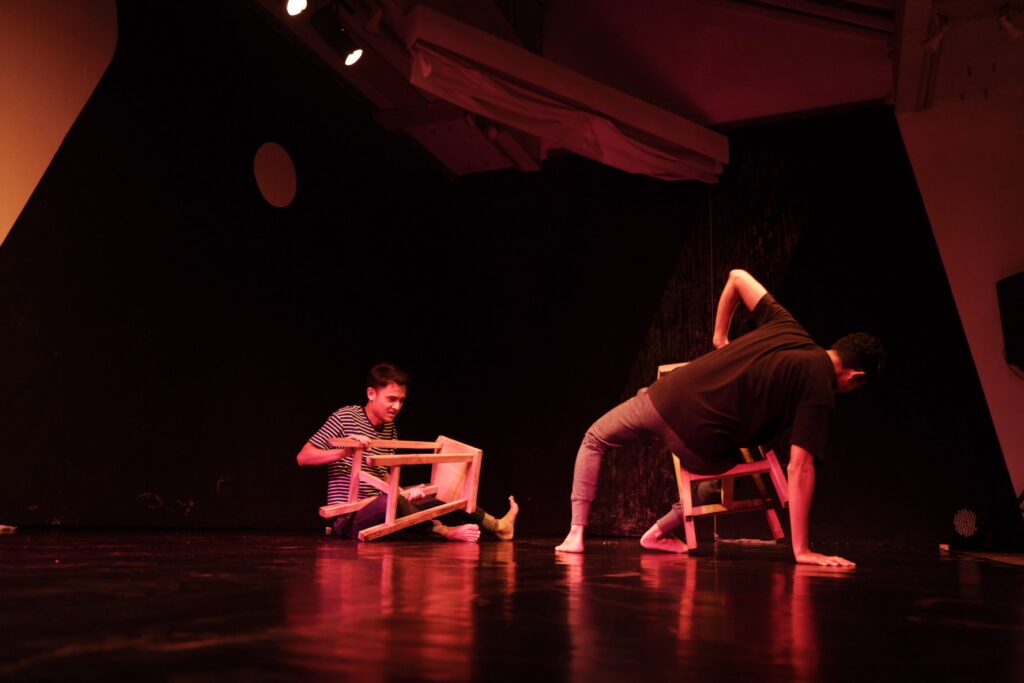
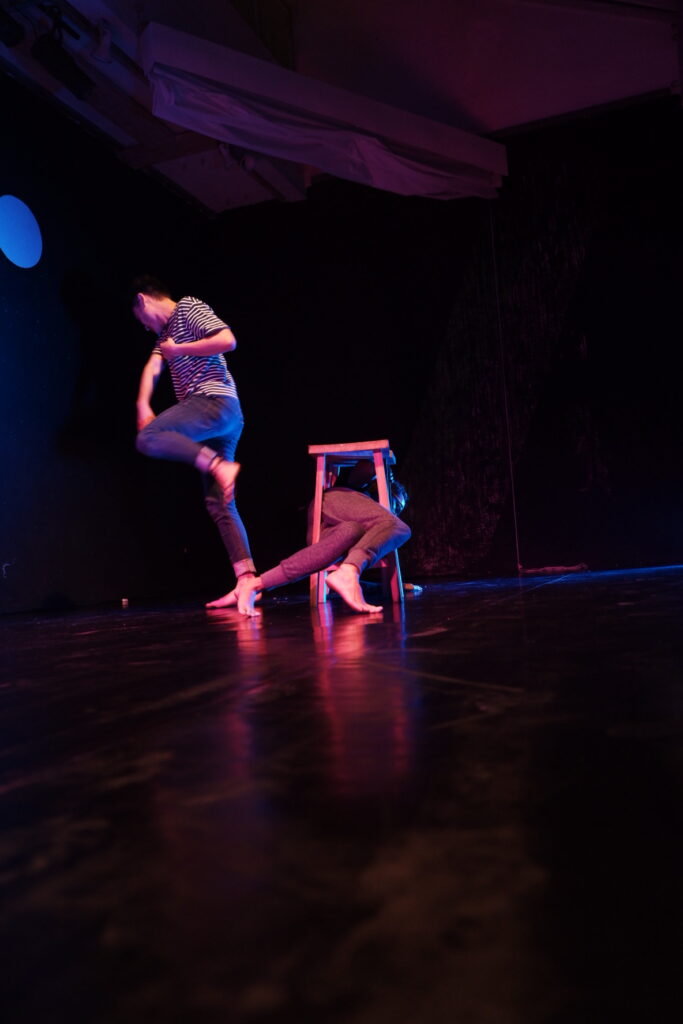
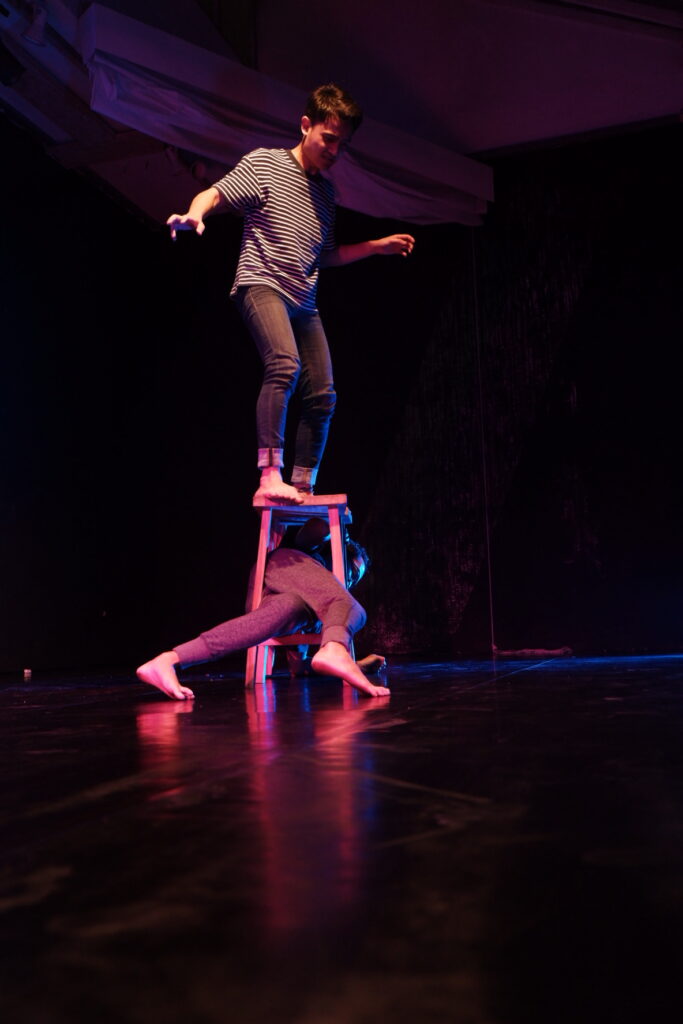

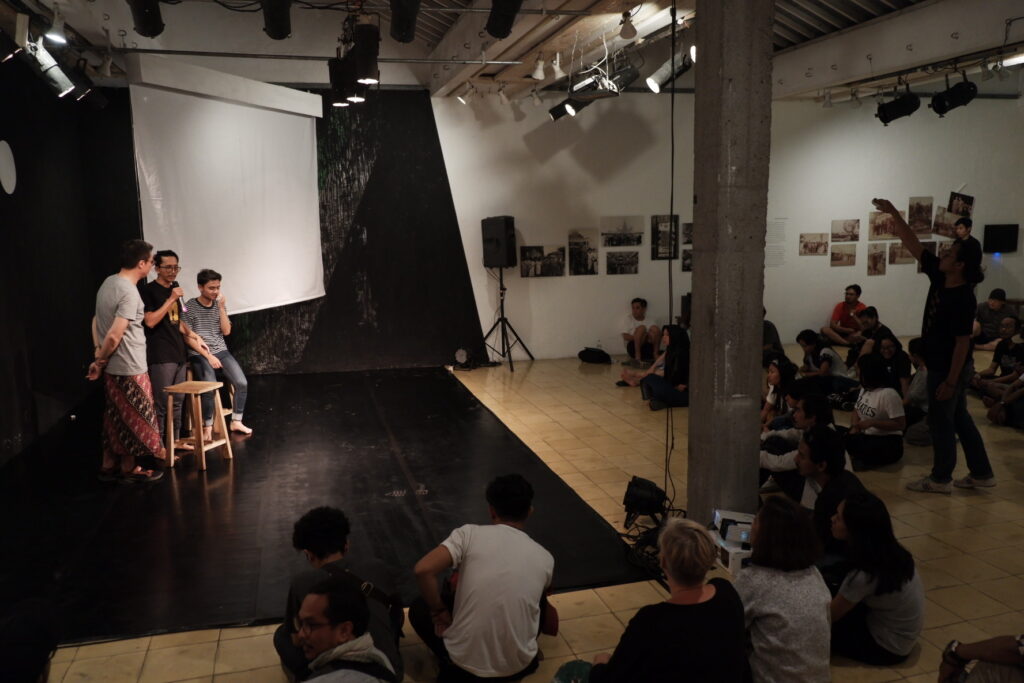
19 July (Thu) 20:30- Research / Work in Progress (Series of Performances)
Venue:Cemeti Art House
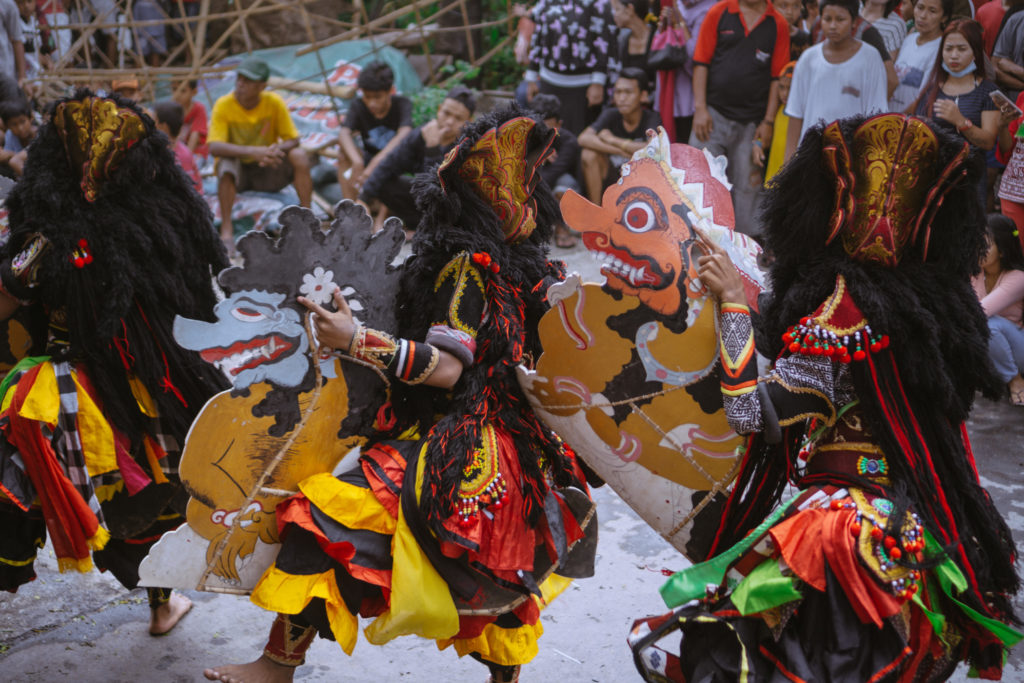
This piece attempts to bring the idea of the war narrative as an act of resistance of the defeated people inspired by “Jaranan Buto”, a folk dance from Banyuwangi, on the eastern tip of Java. Using music as the main medium to interpret the narrative, Image of the Giant is informed by the history of “Jaranan Buto” that refers back to the 18th century cultural feud between the Mataram Sultanate and the peoples of Banyuwangi. This project started from the experimentation of two composers who work on opposite genre, i.e. a contemporary digital music vis-a-vis traditional tunes. Exploration includes working with a “Jaranan” troupe – a folk dance form that forms the base of Jaranan Buto – in several places in Java, resulting in performance/documentation as way of collecting “Jaranan” oral history and its social context. The output of this project is to juxtapose music, visual exhibition, performance and video art. The performance is held in front of a silent movie, and some excerpts of the movie will be looped as part of the exhibition.
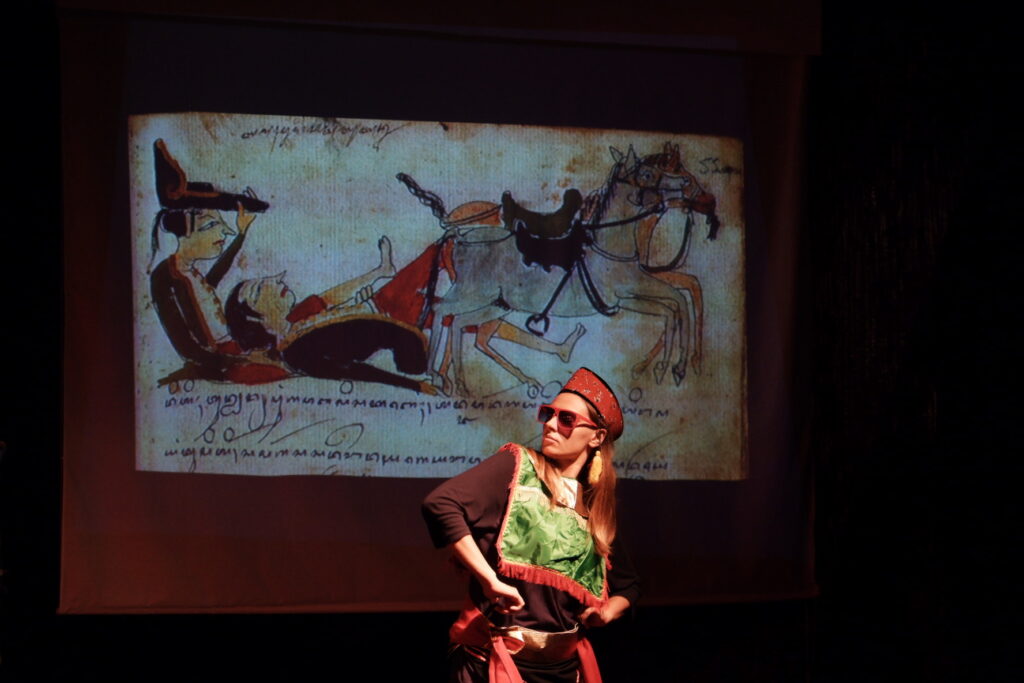
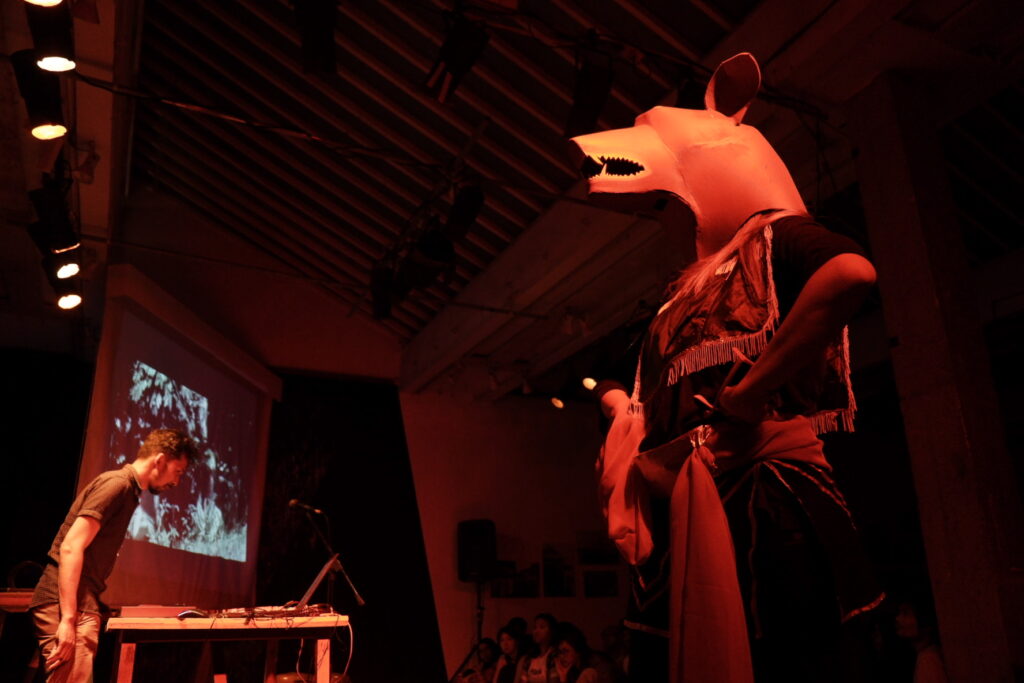
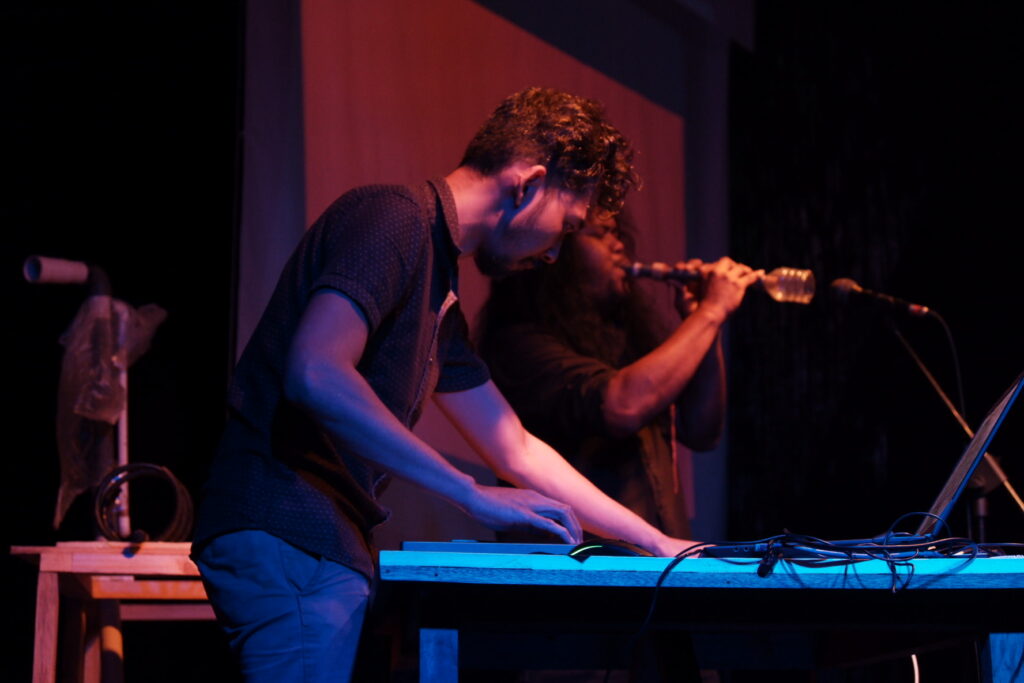
16 July, 19:30-21:30 Panel Discussion
Venue:Langgeng Art Foundation (LAF)
English with Indonesian translation
Pichet Klunchun (Bangkok)
Padmini Chettur (Chennai)
Yudi Ahmad Tajudin (Jakarta/Yogyakarta)
Donna Miranda (Manila)
In this talk, choreographers Pichet Klunchun and Padmini Chettur will engage in a conversation with peformance-maker Yudi Ahmad Tajudin of Teater Garasi/Garasi Performance Institute and choreographer-dancer Donna Miranda (Manila) on their respective take on the notion of “tradition” (the classical, the historical source, or even just the past) and how it has informed their artistic journeys such as in formulating each own’s contemporaneity. Moderated by co-curator How Ngean, this talk hopes to investigate the four artists’ point of departure, process vis-a-vis practice and eventually their theoretical provocation that feeds back into their sources of artistic training.
Pichet Klunchun bridges traditional Thai classical dance language with contemporary sensibility, while keeping the heart and wisdom of the convention. He trained in Thai classical mask dance, Khon, from age 16 with Chaiyot Khummanee, one of the best Khon masters in Thailand.
After receiving his Bachelor degree in Fine and Applied Arts at Chulalongkorn University in Bangkok, he pursued theatre both as dancer and choreographer. He has participated in several intercultural performing arts programmes in North America, Asia and Europe. Pichet has earned many honourable world-class awards namely “Routes ECF Princess Margriet Award for Cultural Diversity (2008)”, Chevalier of the French Arts and Literature Order (2012) and the John D. Rockefeller 3rd Award (2014).
—
Padmini began her contemporary dancer’s career in 1990 as a member of the troupe of Chandralekha—the radical Bharatanatyam modernist choreographer, whose own opus dealt primarily with deconstructing the form of Bharatanatyam. Breaking away from Chandralekha’s work in 2001, Padmini formed a practice that shifted the choreographic tradition to a minimalistic language and visually translated philosophical concepts of time and space as they relate to contemporary experience. Deriving vocabularies from phenomenology, cultural studies, insect movements, astronomy, physiotherapy and sports, she created a taut visual language that exit the narrow bounds of the stage. During her choreographer’s career ranging over almost two decades, she collaborated with sculptors, light-artists, filmmakers, and sound-artists to realise her choreographic works.
—
Padmini embarks on the research and development of each new work with a set of precisely articulated choreographic concerns. Her approach to movement research is almost scientific in rigueur. From Wings and Masks (1993) till date, throughout her oeuvre there is a deliberate concern with constantly refining form. The development of this concern yields a stark yet rich aesthetic in her work that is far removed from any obvious Indian classical dance context—a path that had its seed in her exposure during working with Chandralekha. As both choreographer and performer, Padmini has forged an overarching creative approach that pulls focus to the form and movement of the body. Early on, in her journey as a dance-maker, she took a very conscious decision not to train formally abroad—a decision which points to her well-formed politics. Her work—highly abstract in nature—is rooted in the cultural fabric of the uniquely engaged dance community of Chennai.
—
Yudi is a founding member and director of Teater Garasi/Garasi Performance Institute, a multidisciplinary artist collective based in Yogyakarta, Indonesia. In 2013, Teater Garasi was named a Prince Claus Laureate for, among others, “their adventurous spirit and groundbreaking work in stimulating performing arts in South East Asia.” His portfolio includes interdisciplinary projects with other prominent artists and his critically acclaimed works range from contemporary opera, dance theater, classical drama, performance art and interpretation of Javanese traditional performing arts. Known as a cutting edge director who has brought Indonesia’s theater scene to the next aesthetic level, Yudi was granted an ‘Art Award 2014’ from Ministry of Culture, Indonesia, and received Asian Cultural Council fellowship to study New York theatre scene in 2011-2012.
—
Donna Miranda is a choreographer living and working in the Philippines. Miranda relocates choreography from the site of the individual body to that of collective political actions that aspire to social justice and, conversely, insist on the aesthetic even in arenas outside art, especially through organised political work. Her propositions expand the construction of the choreographic in institutions beyond dance, art, and of the body. She makes a living as a freelance consultant for international development organisations working in gender justice, public health and disaster risk reduction. She also does volunteer work for SAKA, an alliance of artists supporting genuine agragrian reform in the Philippines and Amihan National Federation of Peasant Wome
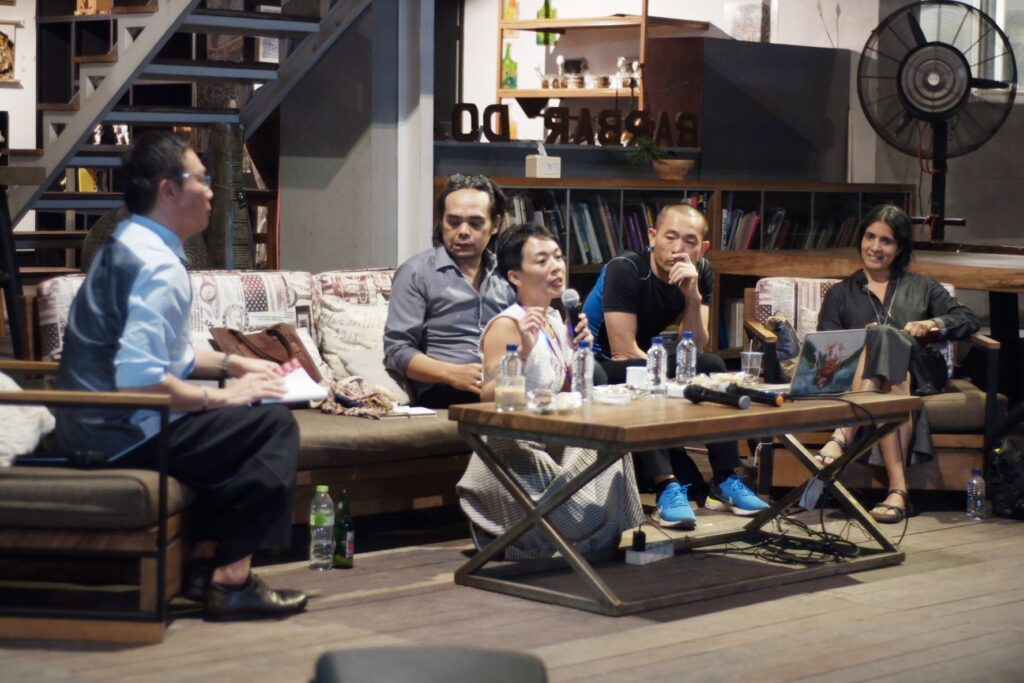
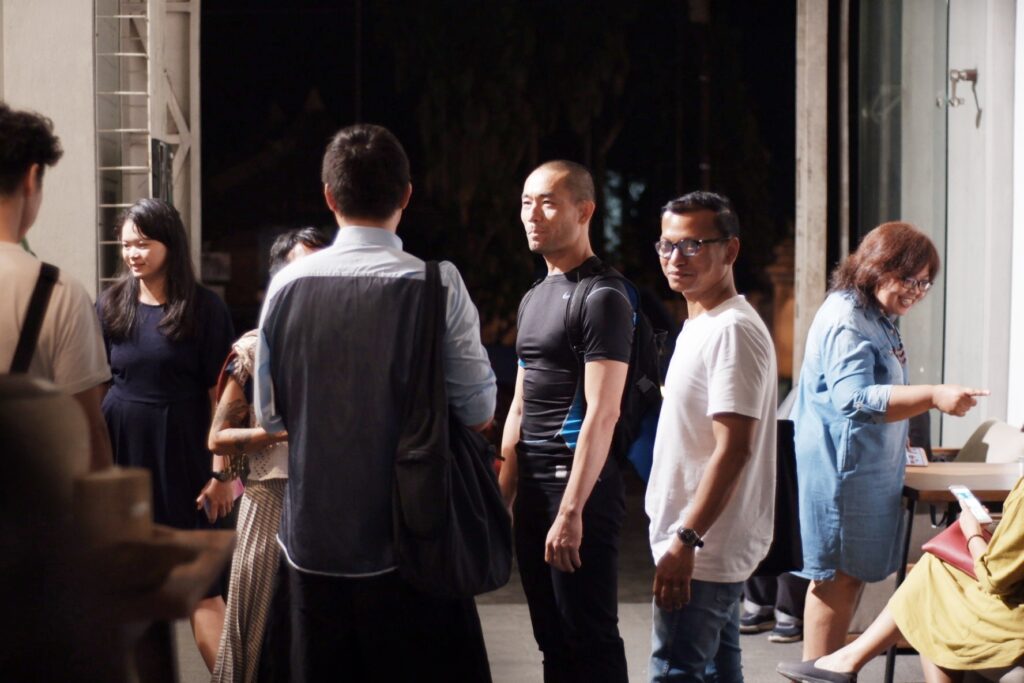
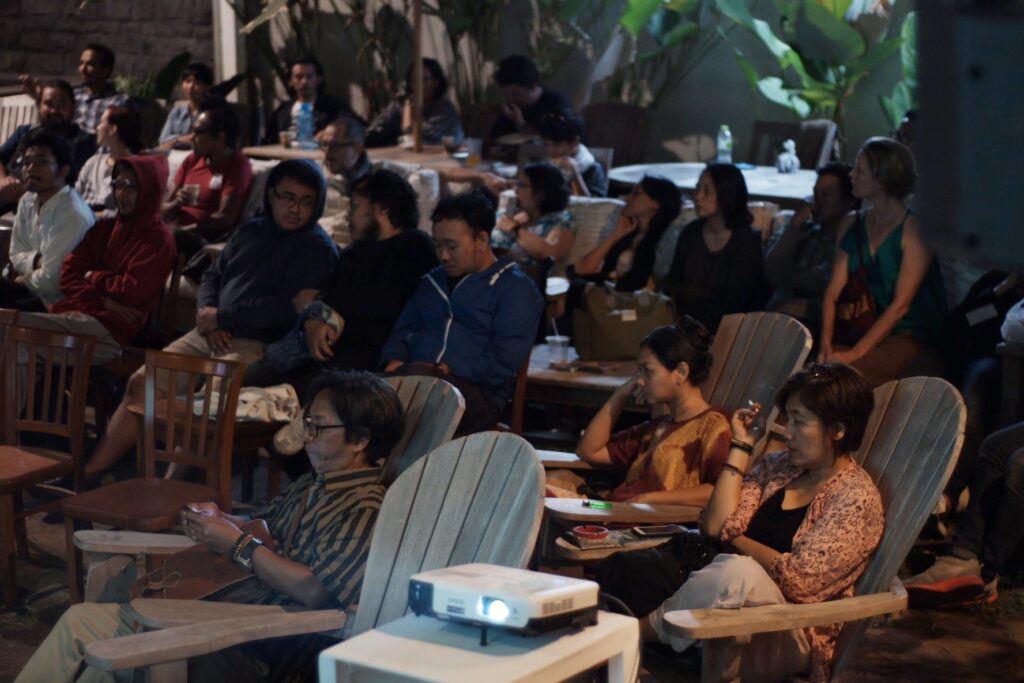
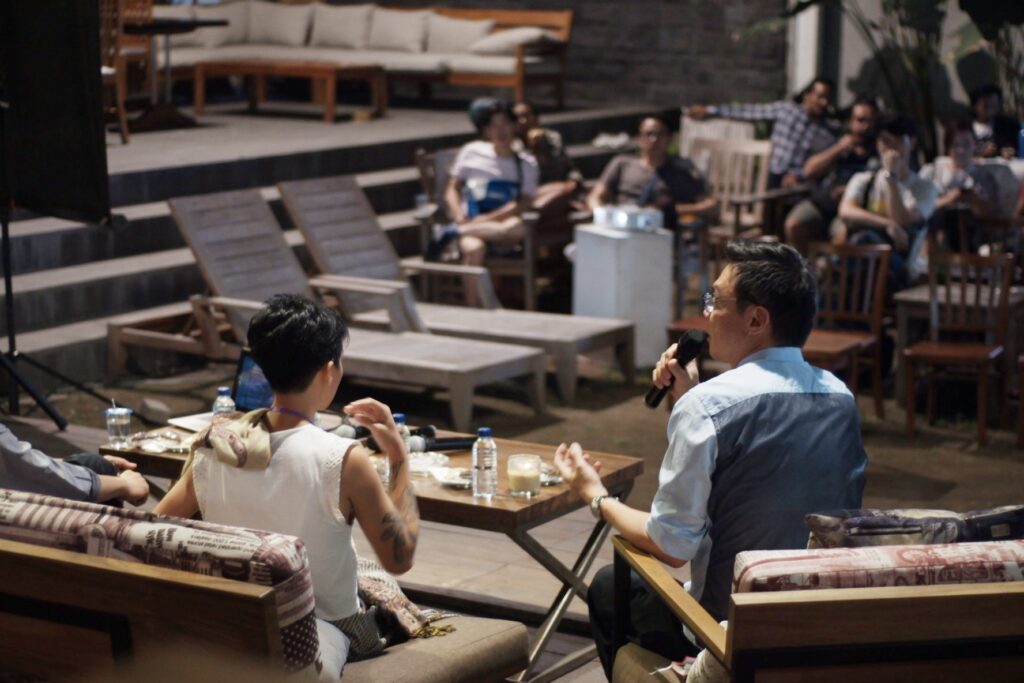
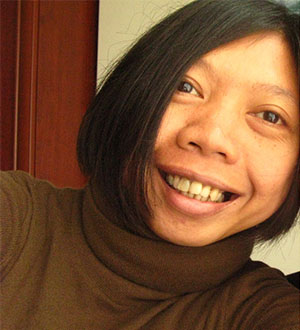
Helly Minarti is Jakarta-born and works as an independent, itinerant dance scholar/curator, rethinking radical strategies to connect theory and practice. She is interested in historiographies of choreography as discursive practice vis-a-vis the eclectic knowledges that infuse the understanding of human body/nature. She worked as Head of Arts for the British Council Indonesia (2001-03), which set her off to curating. She has been involved in various arts exchange projects, forums/conferences, and conducted research fellowships in Asia, Europe and the US. She is a recipient of the British Chevening Award, Asia Fellows Scholarship, Asian Cultural Council and most recently the US-ASEAN Fulbright Visiting Scholar Fellowship. Helly earned a Ph.D in dance studies from University of Roehampton (UK) and has just relocated to Yogyakarta where she is preparing to launch LINGKARAN | koreografi, a collaborative research platform focusing to expand the critical notions of choreography.
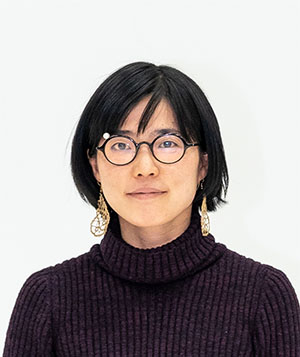
Born in Tokyo in 1979, Akane Nakamura became involved in performing arts while she was an undergraduate in the College of Art at Nihon University. She handles tasks in a wide variety of areas, such as production of the activities of contemporary theater and dance artists and companies inside and outside Japan, holding of site-specific festivals, and execution of programs for interdisciplinary human resource development. She founded precog Co., Ltd. in 2006, during her stint as program director at the NPO ST Spot Yokohama (2004 – 2008), and has been its Representative Director since 2008. precog has produced the works of artists in Japan and other countries, including Toshiki Okada’s chelfitsch and Mikuni Yanaihara’s Nibroll, and handled international tours and co-productions in 70 cities in 30 different countries. In 2009, she established the NPO Drifters International. She proposed and is one of the directors of the Open Network for Performing Arts Management (ON-PAM). Since 2011, she has served as a part-time instructor in the Nihon University College of Art. She has built up an impressive record of collaboration with other parties, such as The Japan Foundation Asia Center, British Council, Kanagawa Arts Theatre (KAAT), Tokyo Metropolitan Government, and the municipal governments of Kunisaki and Bungo-Takada in Oita Prefecture.
Since 2019, Ms. Nakamura has been broadening the activities of precog, as evidenced by its service as the secretariat of the True Colors Festival. This event is organized by The Nippon Foundation and aimed at transcending disabilities and differences in aspects including gender, generation, language, and nationality.
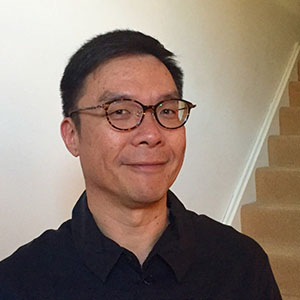
Malaysian-born How Ngean is an independent dance dramaturg, producer and performance-maker, and has been actively involved in the performing arts for more than 20 years. He was conferred his Phd from the National University of Singapore with his thesis entitled Choreographic Modernities: Movement and Mobility in Southeast Asian Contemporary Dance. He has dramaturged for critically acclaimed choreographers Daniel Kok, Joavien Ng, Kuik Swee Boon and Ming Poon from Singapore; Pichet Klunchun in Thailand and the Phnom Penh-based Amrita Performing Arts. How Ngean is founding director of the Asian Dramaturgs’ Network (ADN, 2016), a platform for critical exchange on dramaturgy among dramaturgs in the Asian region. It has so far has three successful symposiums in Singapore (2016), TPAM Yokohama (2017) and, OzAsia, Adelaide (2017). His recent publication is a chapter contribution ‘Rhythmic Operations, Material Description, and Analysis in Dance’ in Choreography and Corporeality: Relay in Motion (Palgrave 2016).
Cemeti – Institute for Art and Society (formerly ‘Cemeti Gallery’, then ‘Cemeti Art House’), is the oldest platform for contemporary art in Indonesia, located in Yogyakarta. Cemeti was founded in 1988 as a site for exchange, providing space for artists to develop and exhibit their work. In 1995, the then newly founded Cemeti Foundation (since 2007 operating independently as the Indonesian Visual Art Archive, IVAA) was the first organization to start documenting contemporary visual art in Indonesia. In January 2017, Cemeti’s artist founders Nindityo Adipurnomo and Mella Jaarsma, stepped aside from the day-to-day running of the organization and a new team took over the helm, changing the name from Cemeti Art House to Cemeti – Institute for Art and Society. The new subtitle takes as a starting point the idea of “instituting” as a collective social process in which we find forms for shared urgencies and ideologies.
Damansara Performing Arts Centre (DPAC) is an organisation dedicated to promoting arts in Malaysia, through learning, practising, and appreciating arts. DPAC aims to further enhance public awareness on the importance of art-forms that enrich our lives while shaping today’s world. DPAC has a proscenium theatre, a black box, an experimental theatre, an indoor theatre-foyer and several dance studios. They are all equipped with state-of-the-art facilities. These facilities cater to the professional practices of different performing arts practitioners in various forms.
AKADEMI SENI KEBANGSAAN (ASK) was established in 1994 under the Ministry of Culture, Arts and Tourism Malaysia. Now known as AKADEMI SENI BUDAYA DAN WARISAN KEBANGSAAN (ASWARA) established on August 1, 2006 through ACT Academy of Arts, Culture and Heritage, 2006 (Act 653). ASWARA is the only institution of higher learning in the field of performancing arts that is supported entirely by the Government of Malaysia under the Ministry of Culture and Tourism Malaysia. It is an institution of higher learning to provide a space for learning, research and academic publications and professional advisory services in the field of arts, culture and heritage aimed at producing skilled artists and practitioners who are competent in their fields besides strengthening the sustainability of the national arts heritage. In principle, ASWARA focuses on arts education for performers knowledgeable and professional for the local industry.
Linda Mayasari (b.1985) is Director at Cemeti – Institute for Art and Society, where she has worked since 2010, as well as a member of the associate curatorial assistant for the Indonesia Dance Festival.
She is currently pursuing her studies in Religious & Cultural Studies Department at Sanata Dharma University, whilst working toward her personal research and writing exploring the intersections of art, politics and post colonialism within the cultural and historical context of Indonesia.
Occasionally she works collaboratively with artists from various fields (particularly dance and visual art) to produce independent research based projects.
Previously, Linda worked as a program manager at Bagong Kussudiardja Foundation (2008 – 2010), a performing art space in Yogyakarta, and was a member of Gandrik Theatre (2009 – 2015).
She has attended numerous international forums on the visual and performing arts including Asia Arts Space Network, Korea in 2015, Setouchi Asian Forum, Japan in 2016, Monsoon Platform, Belgium in 2017.





